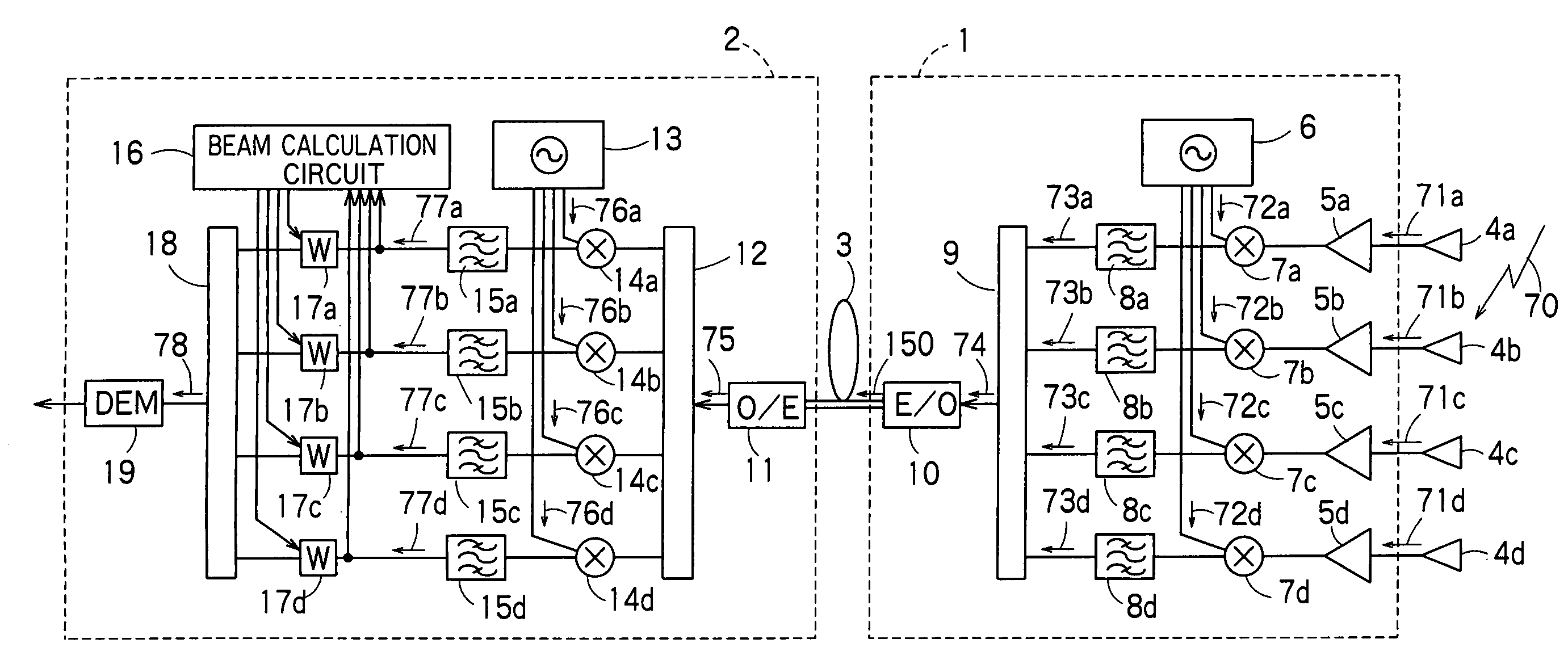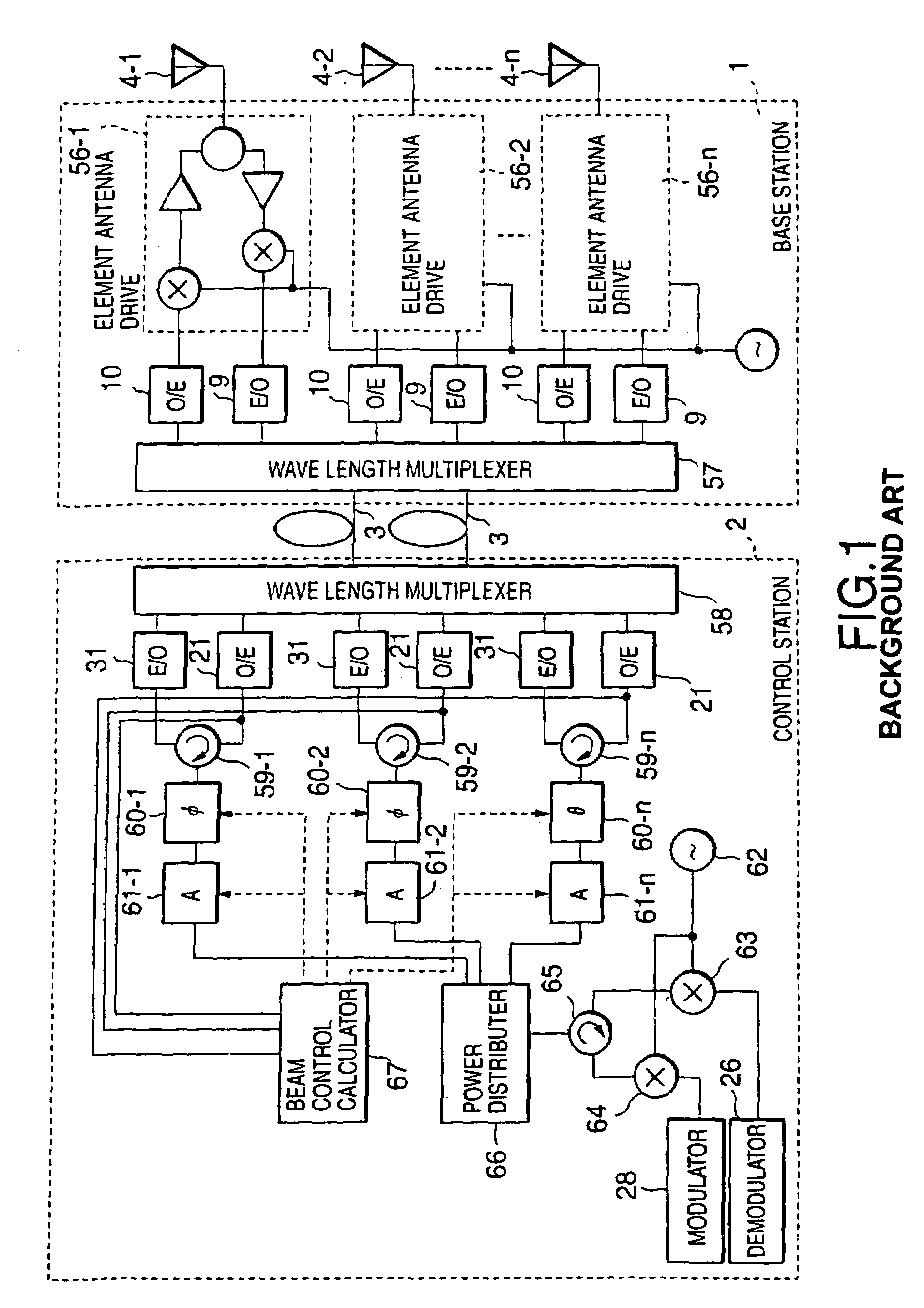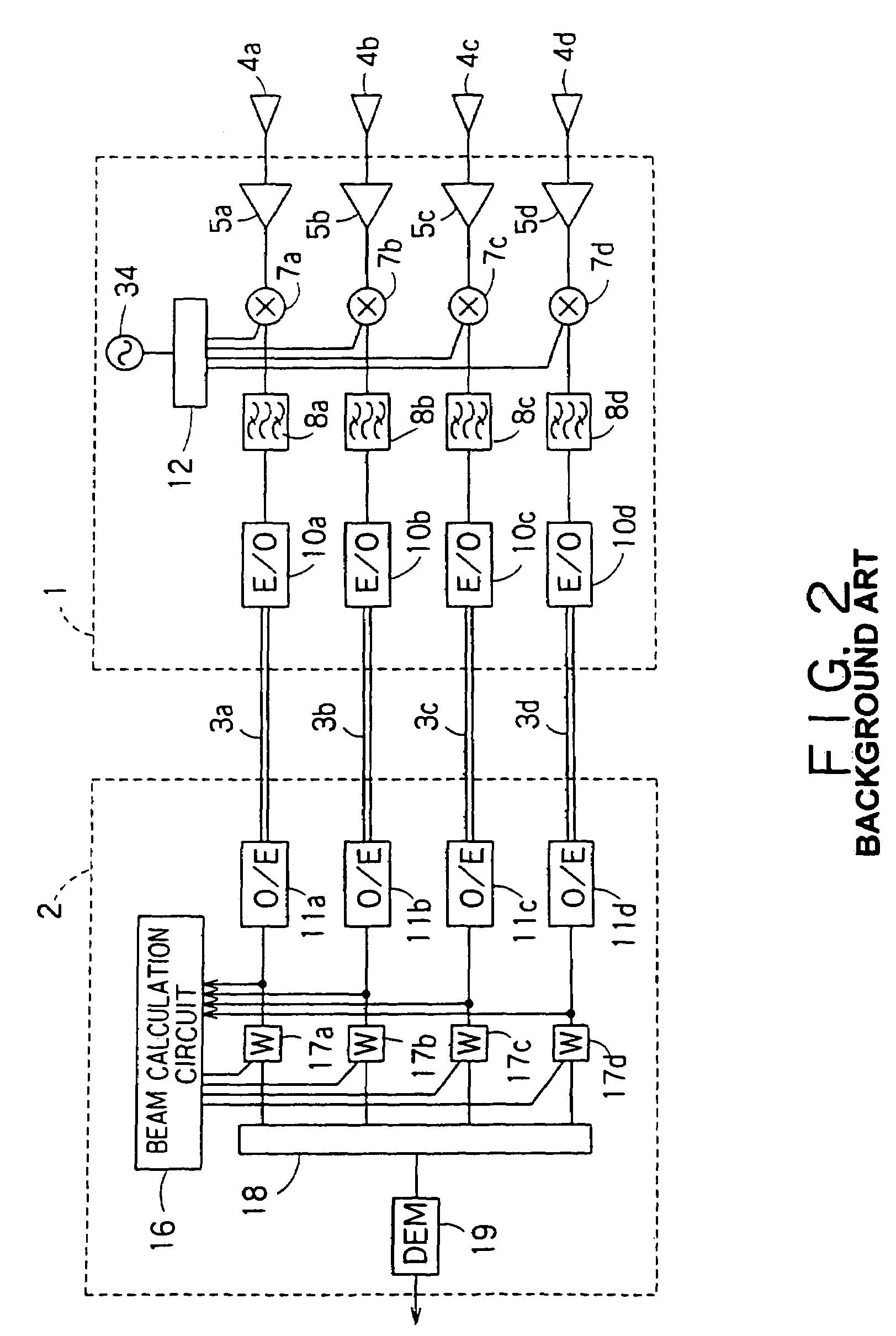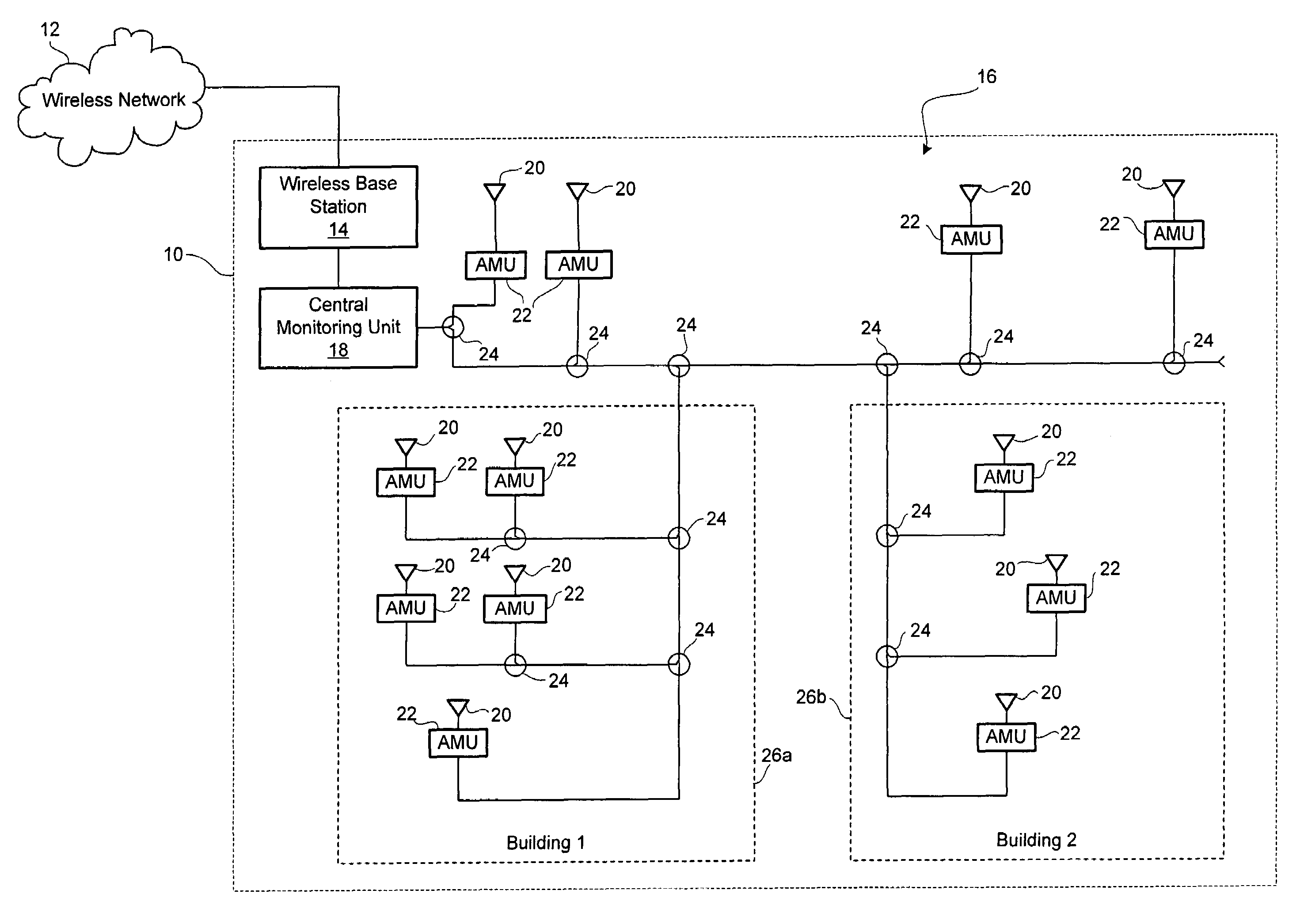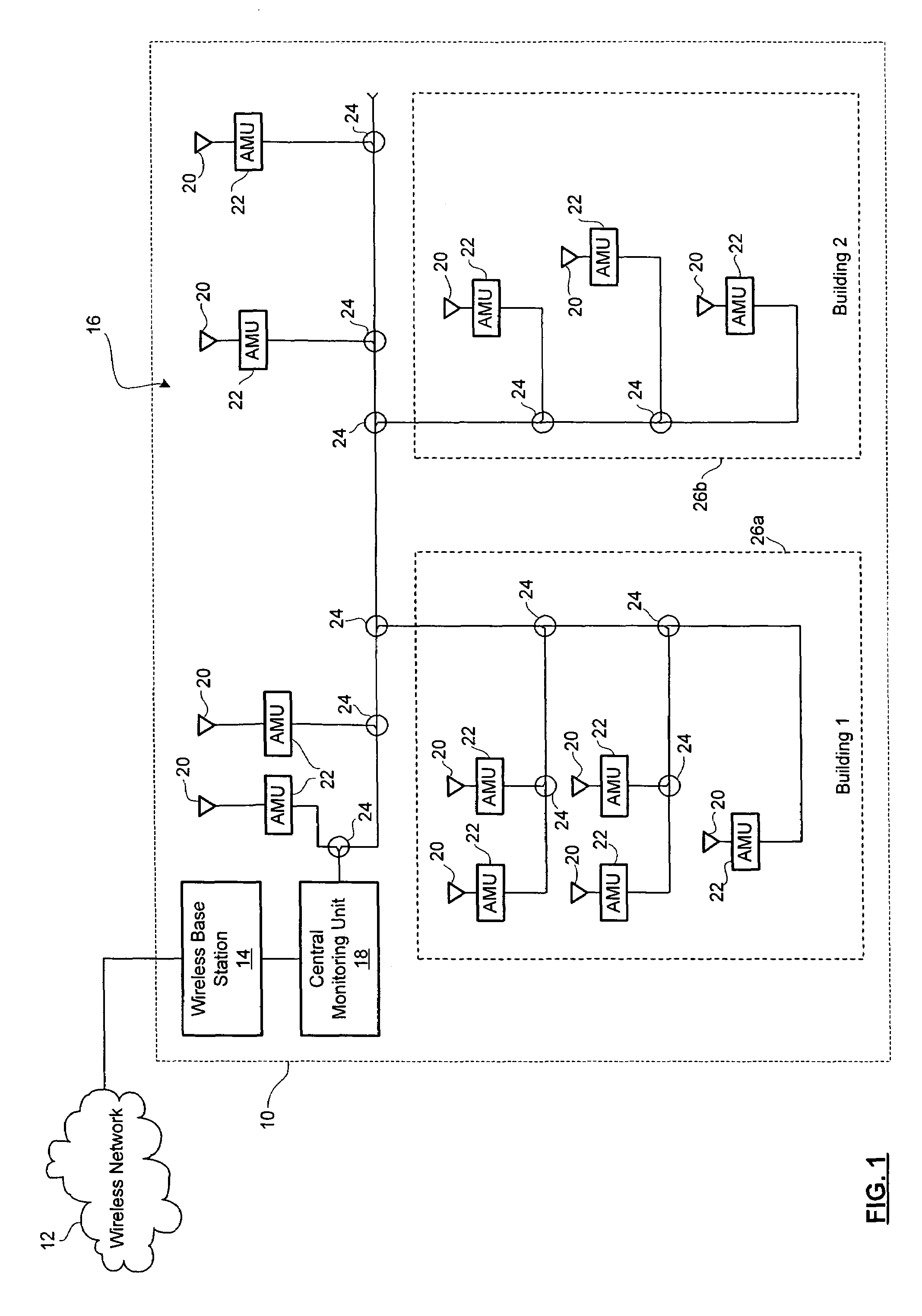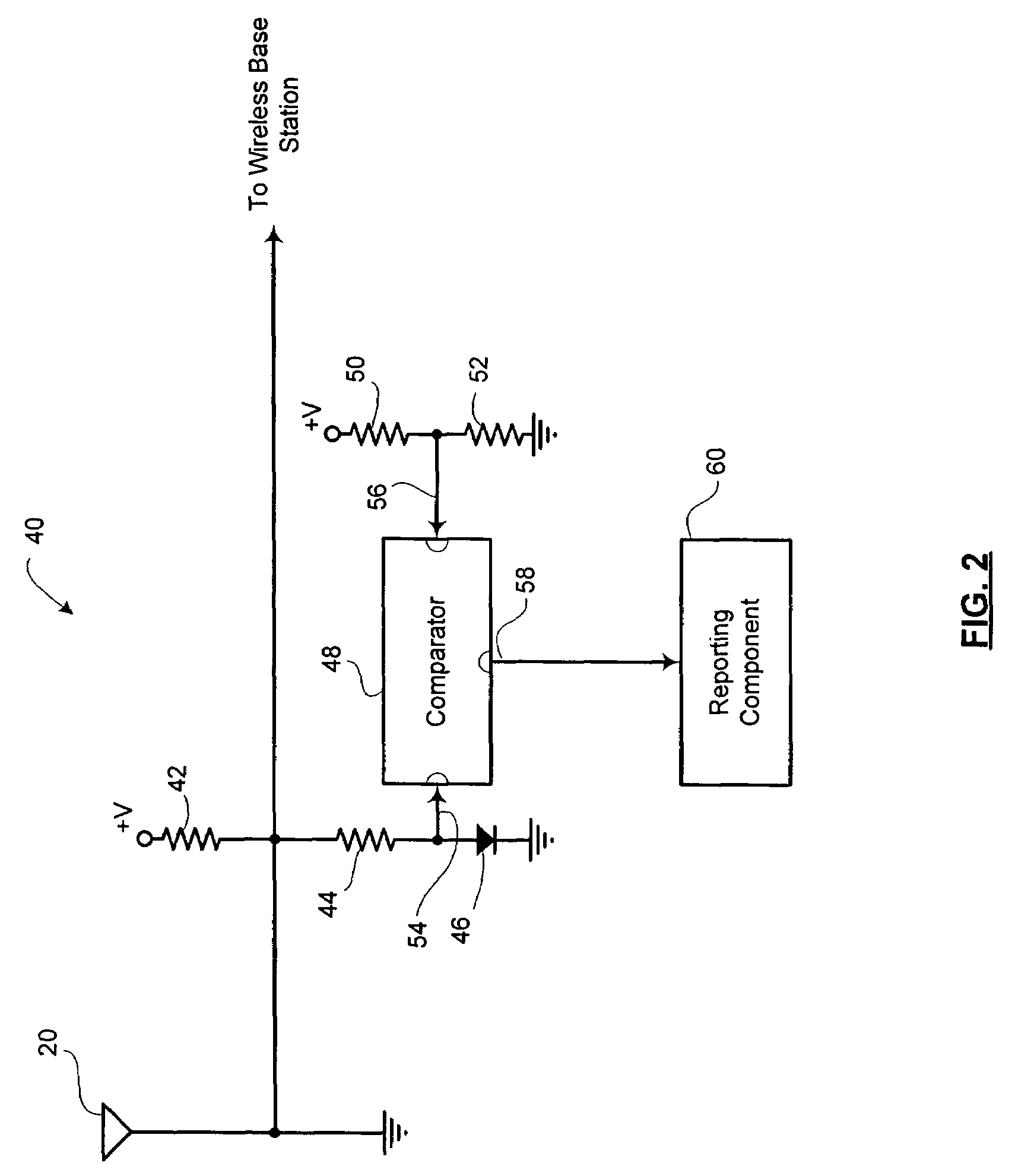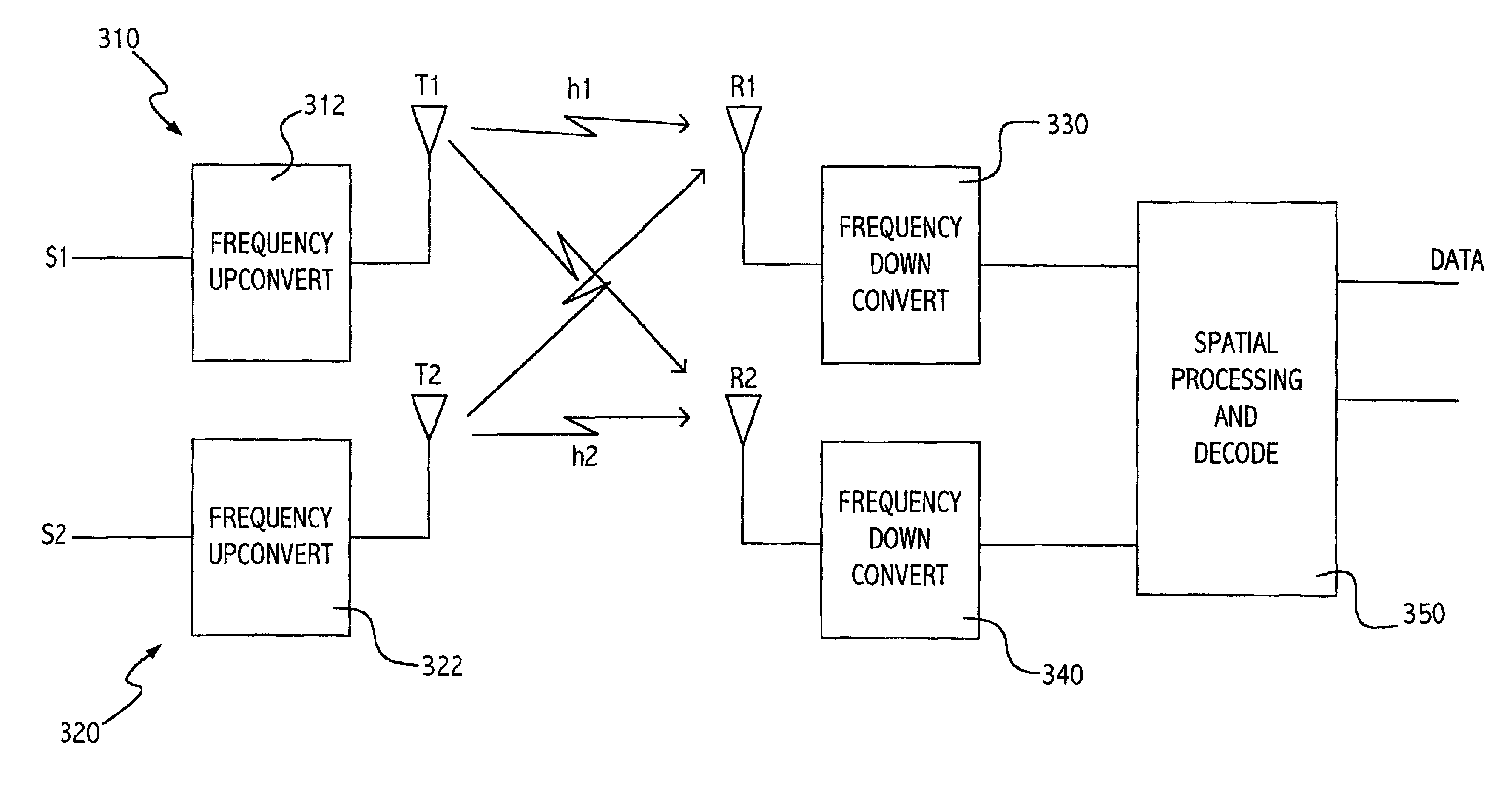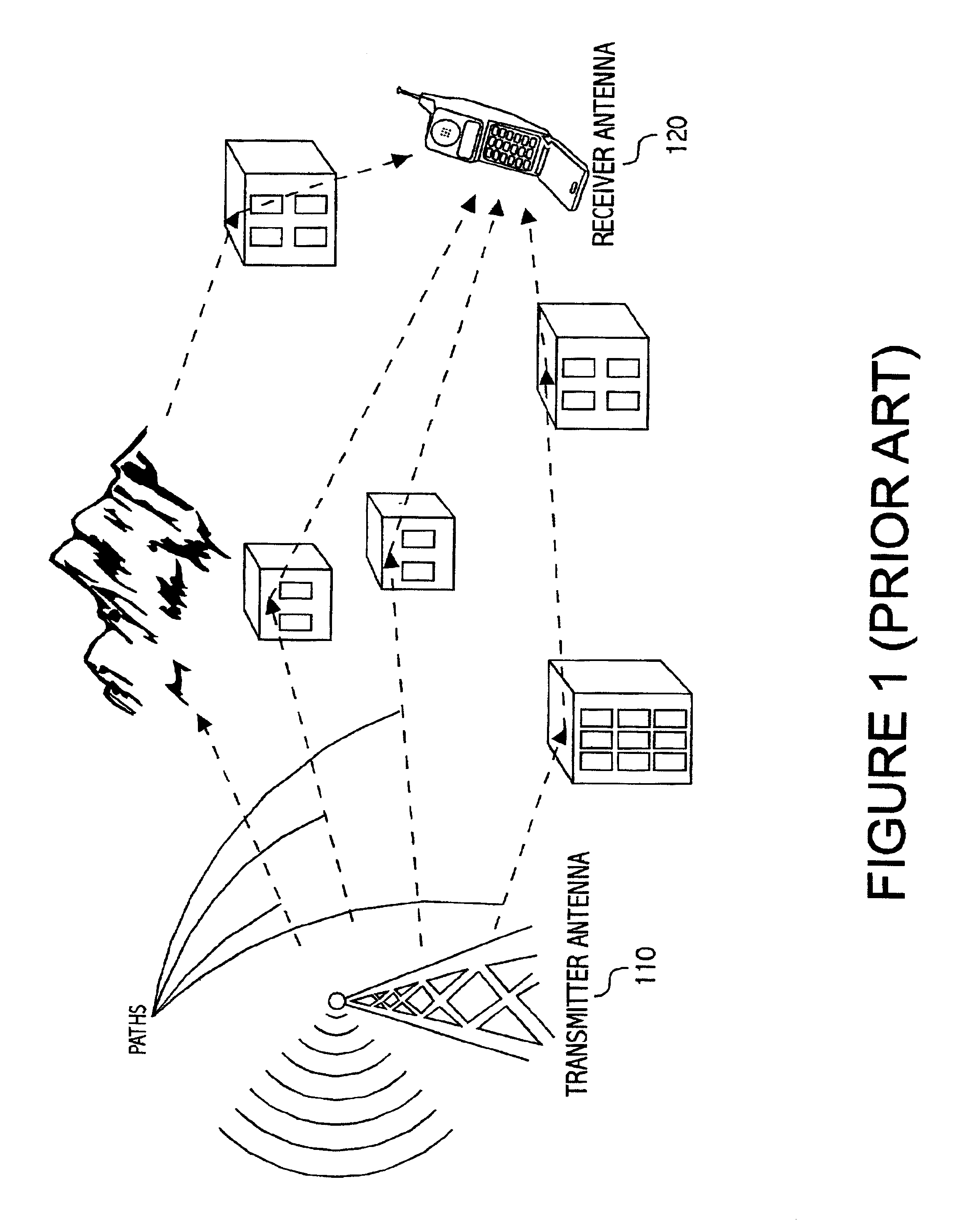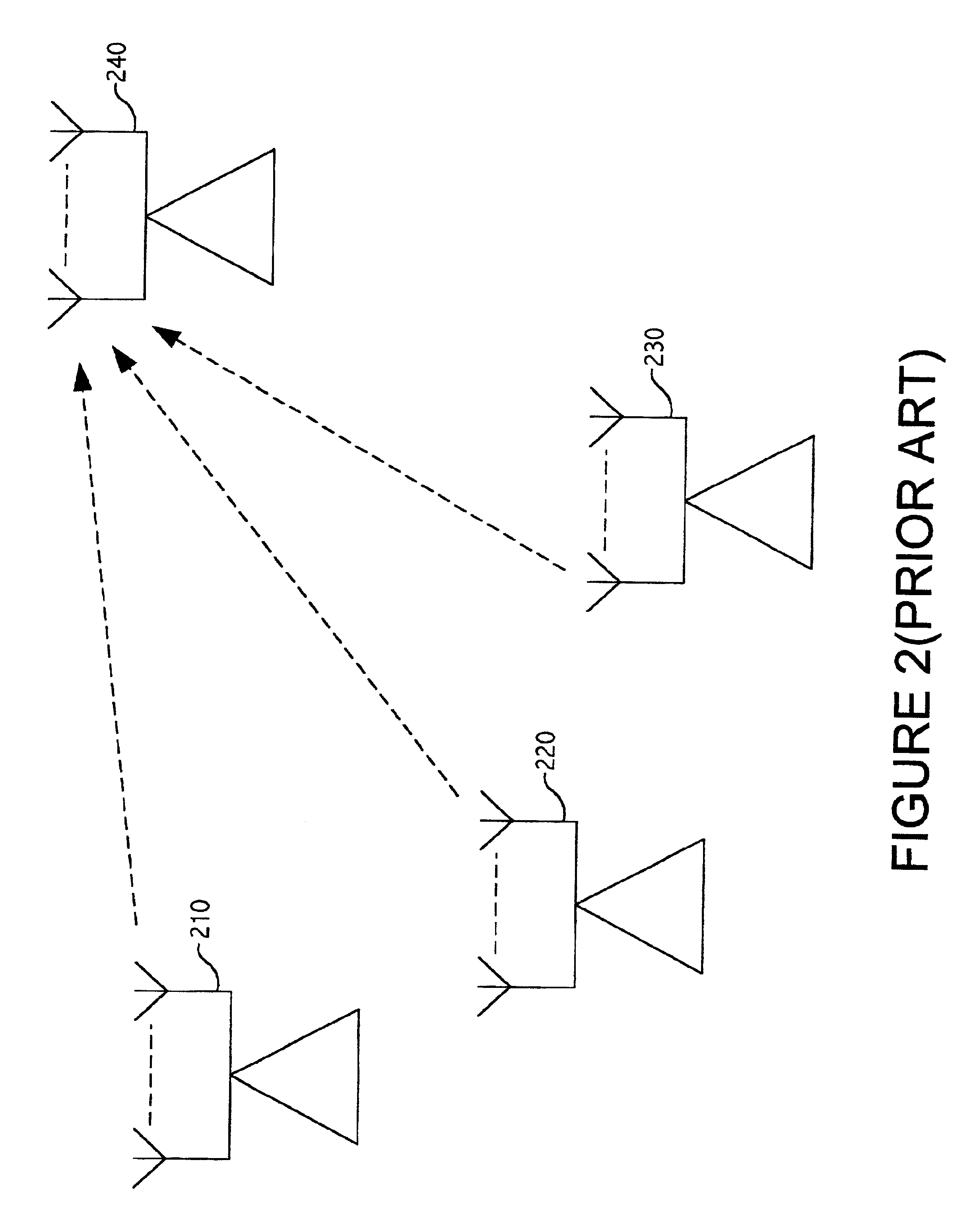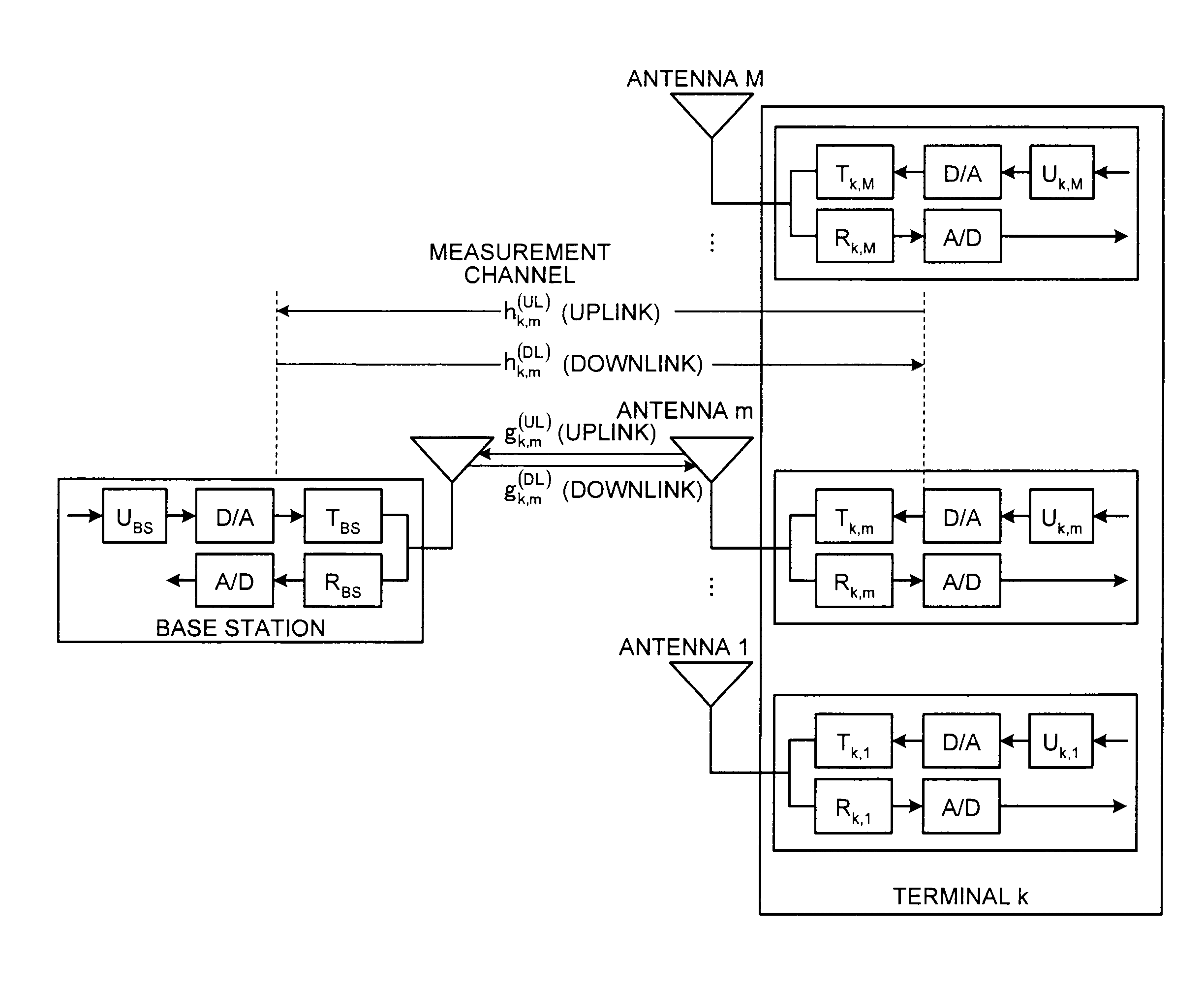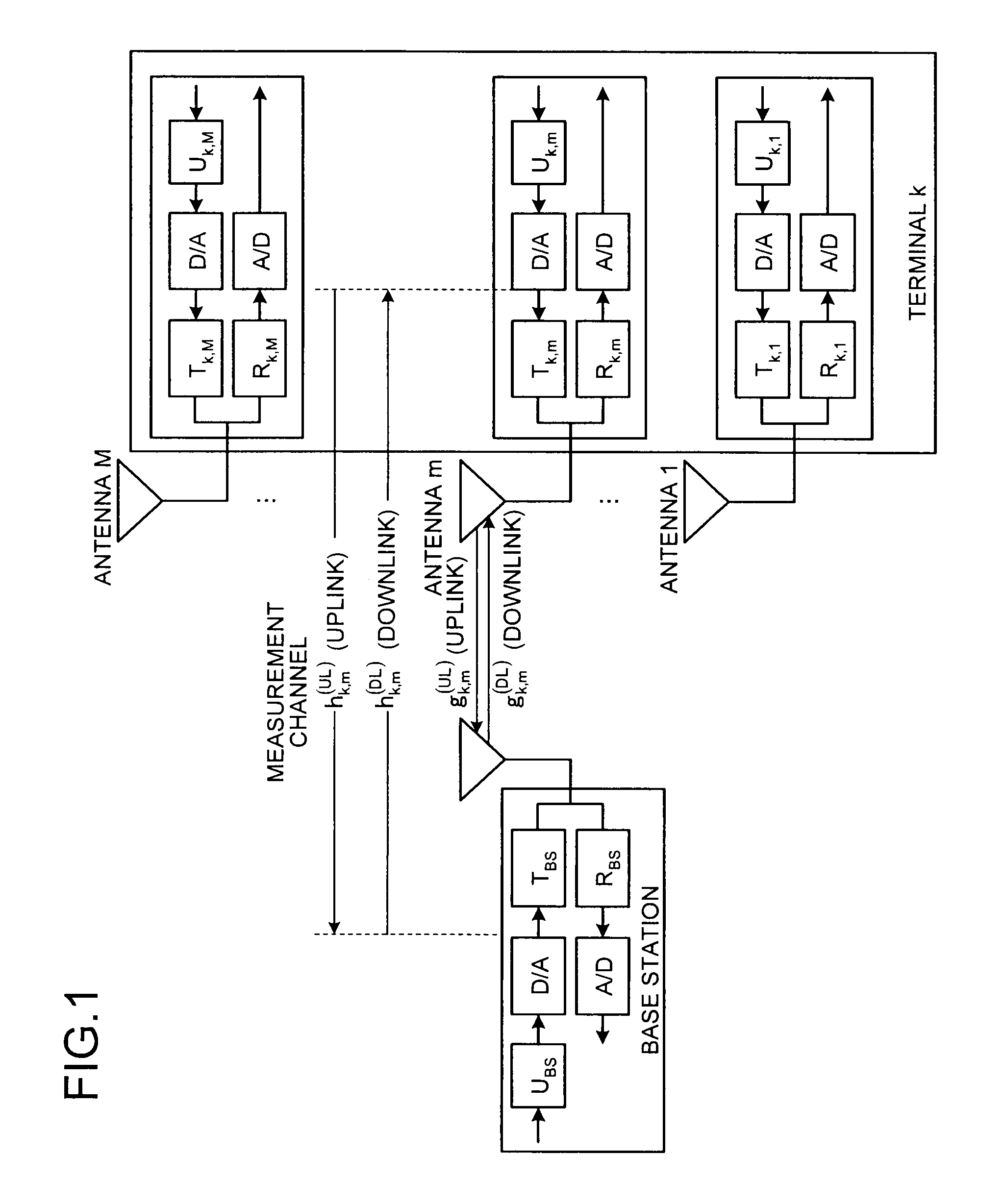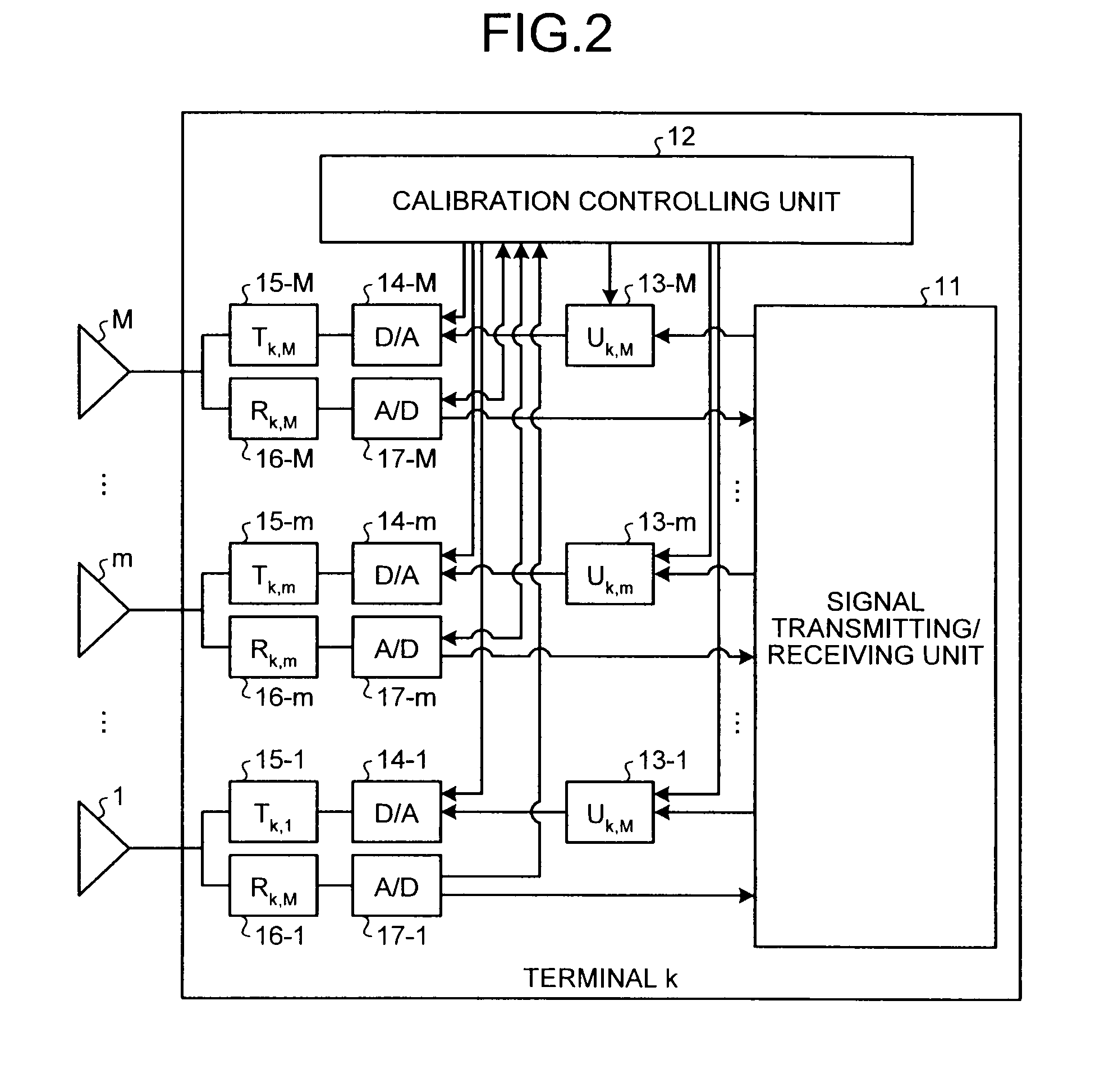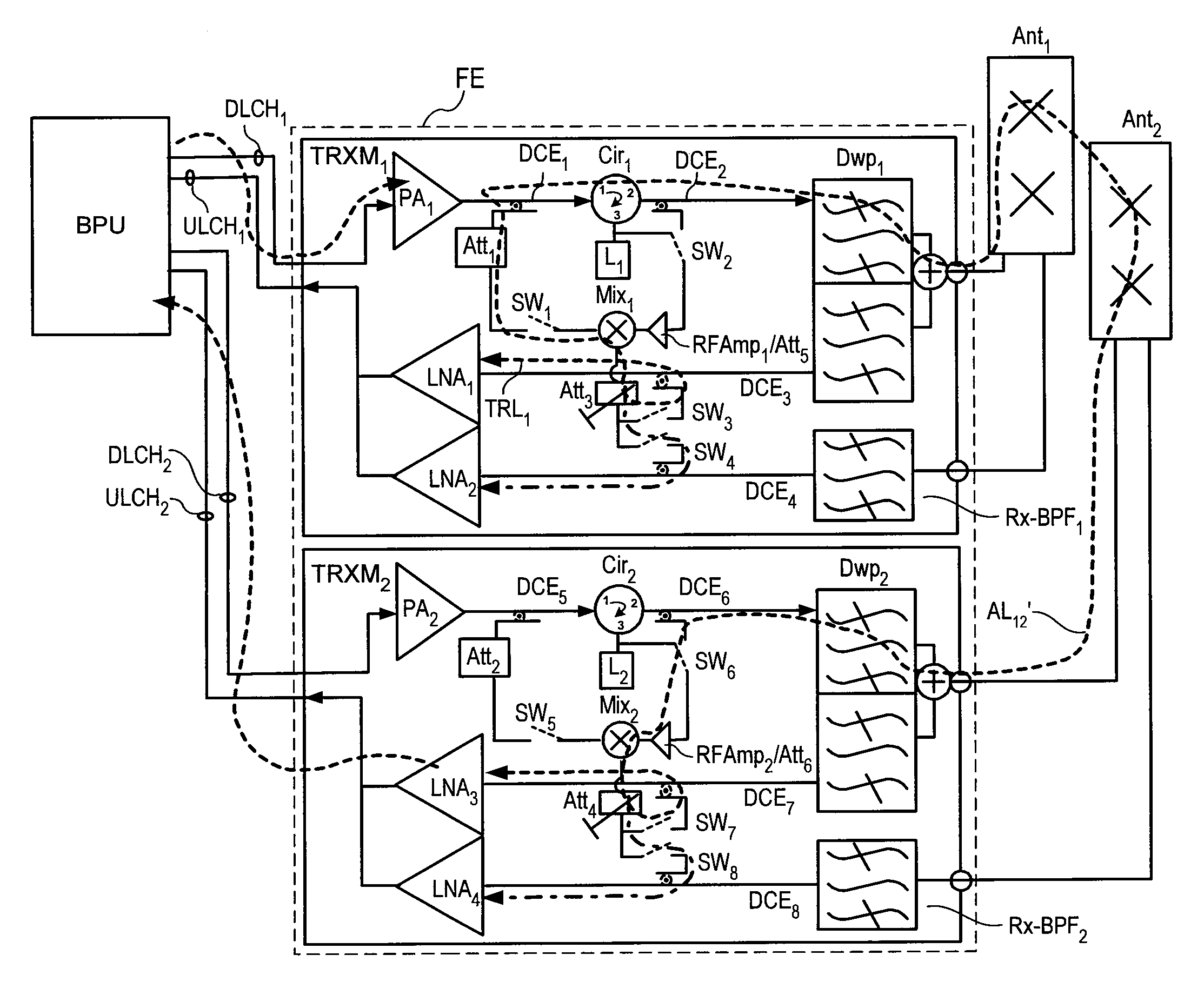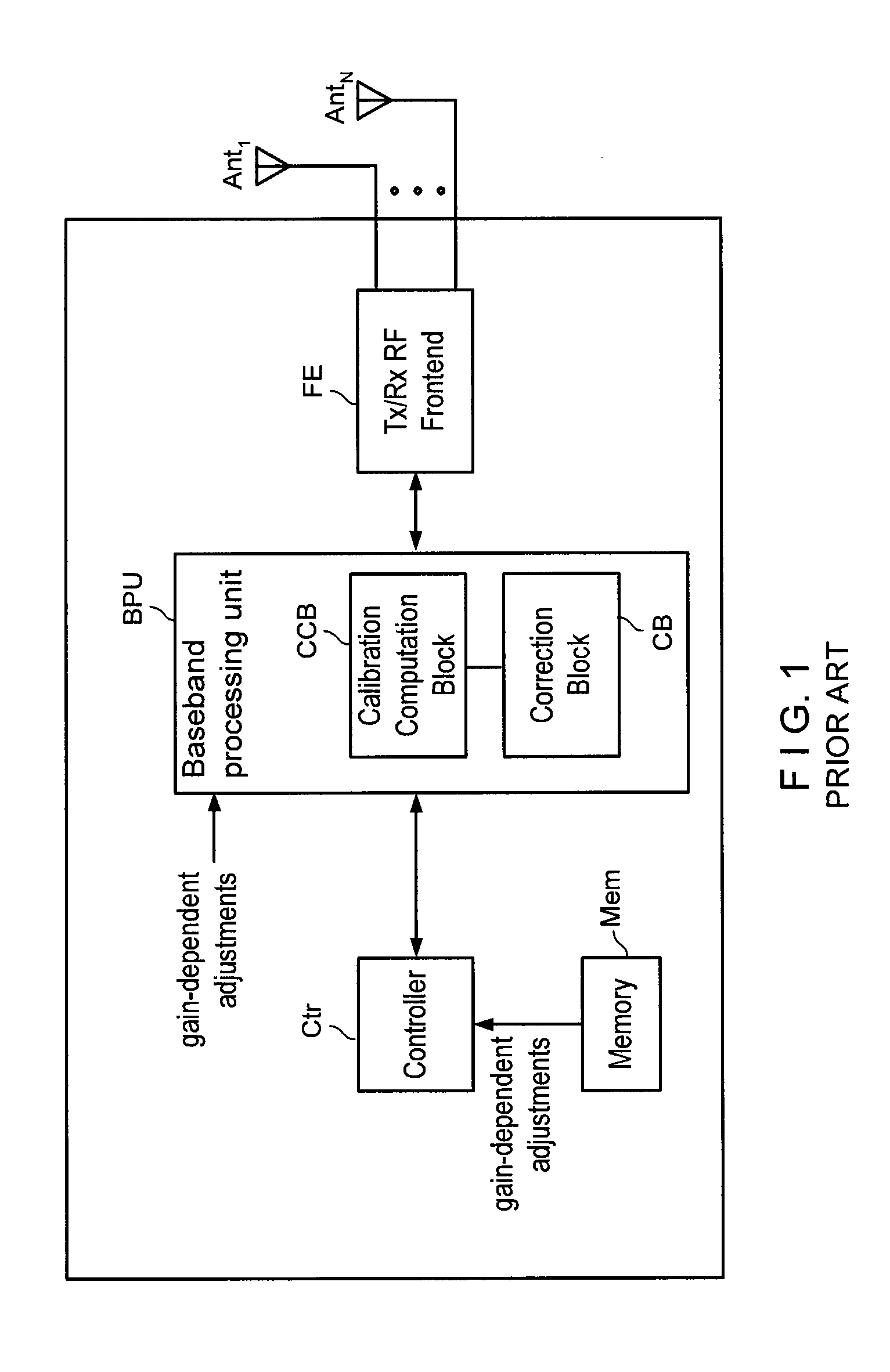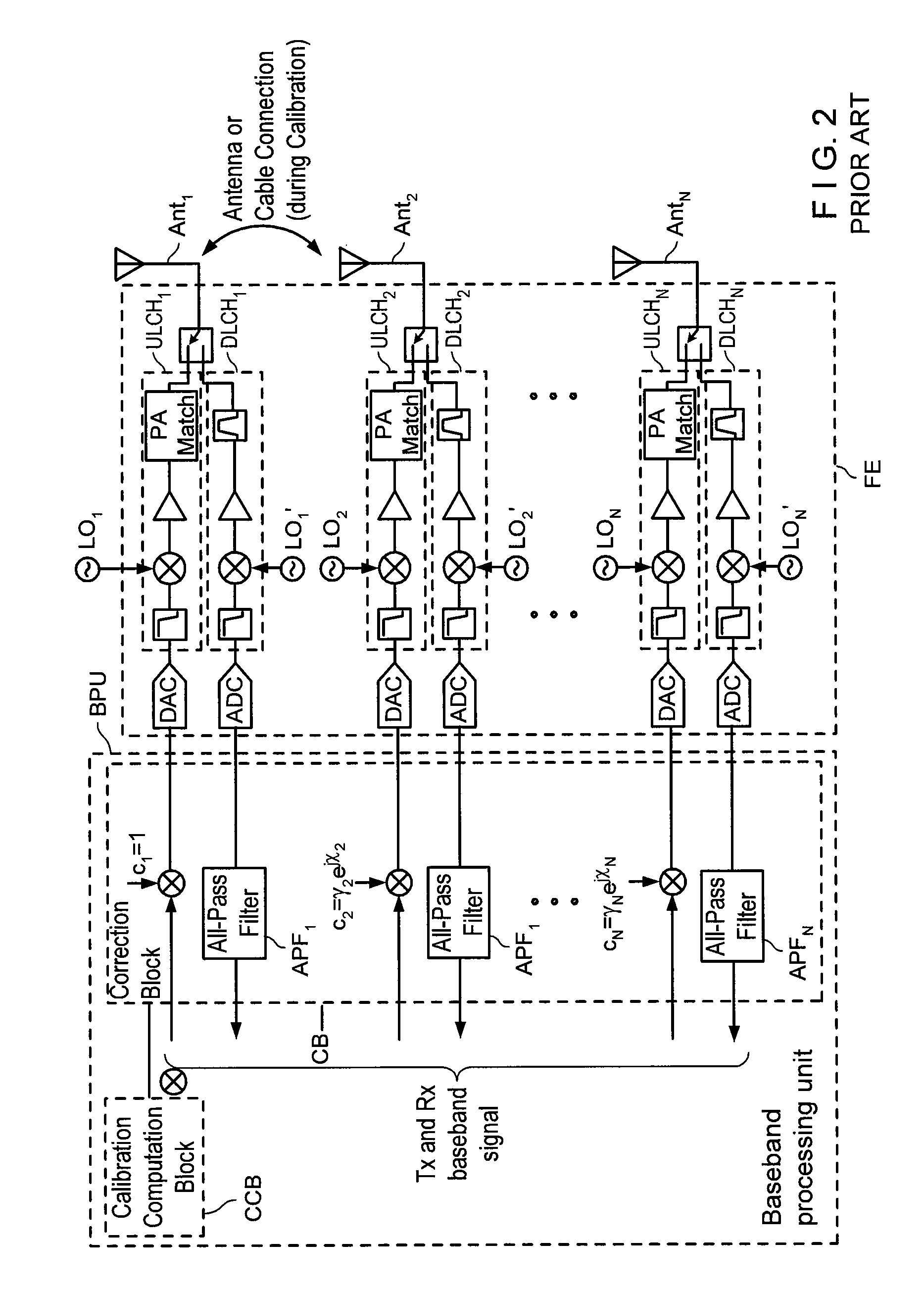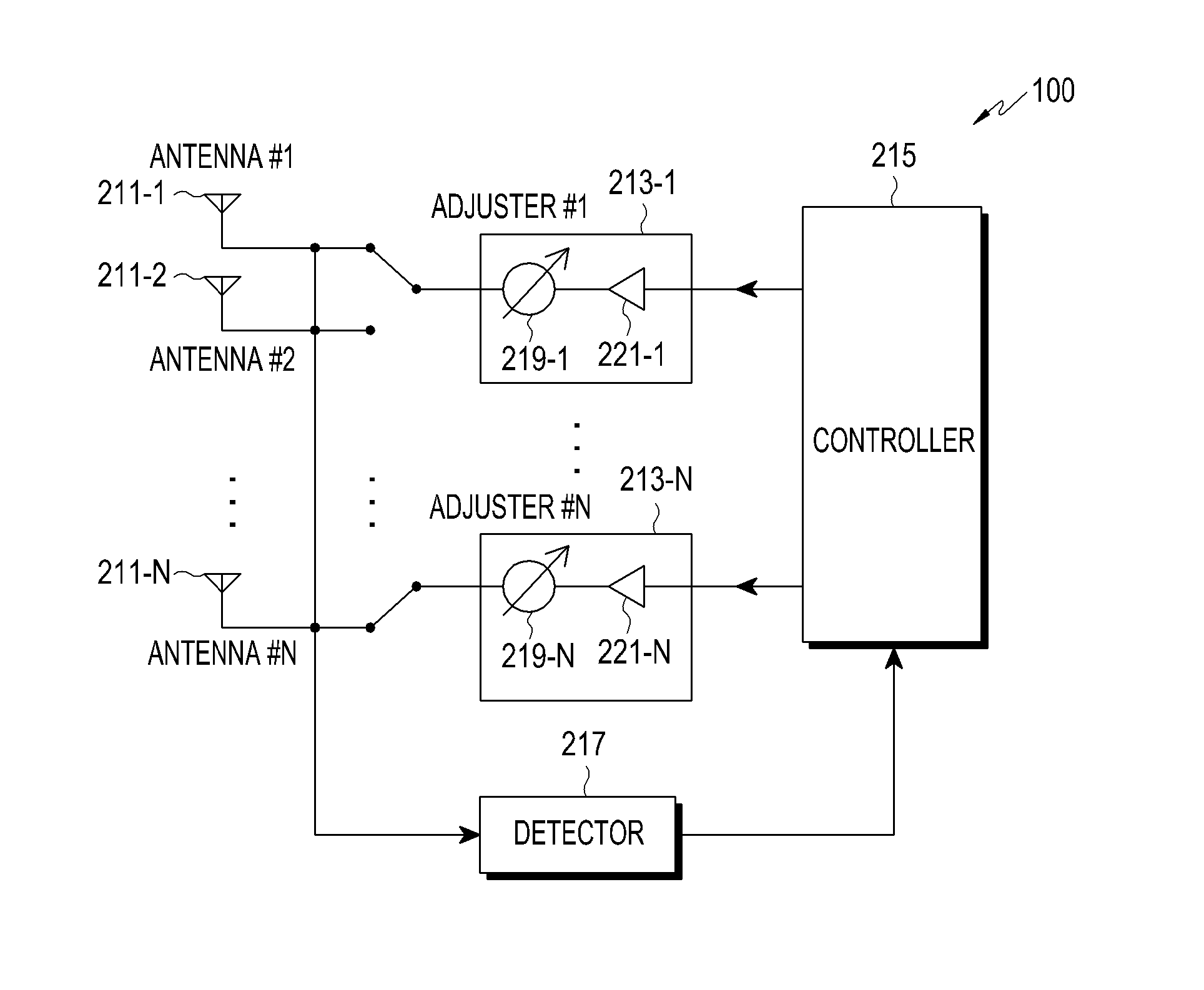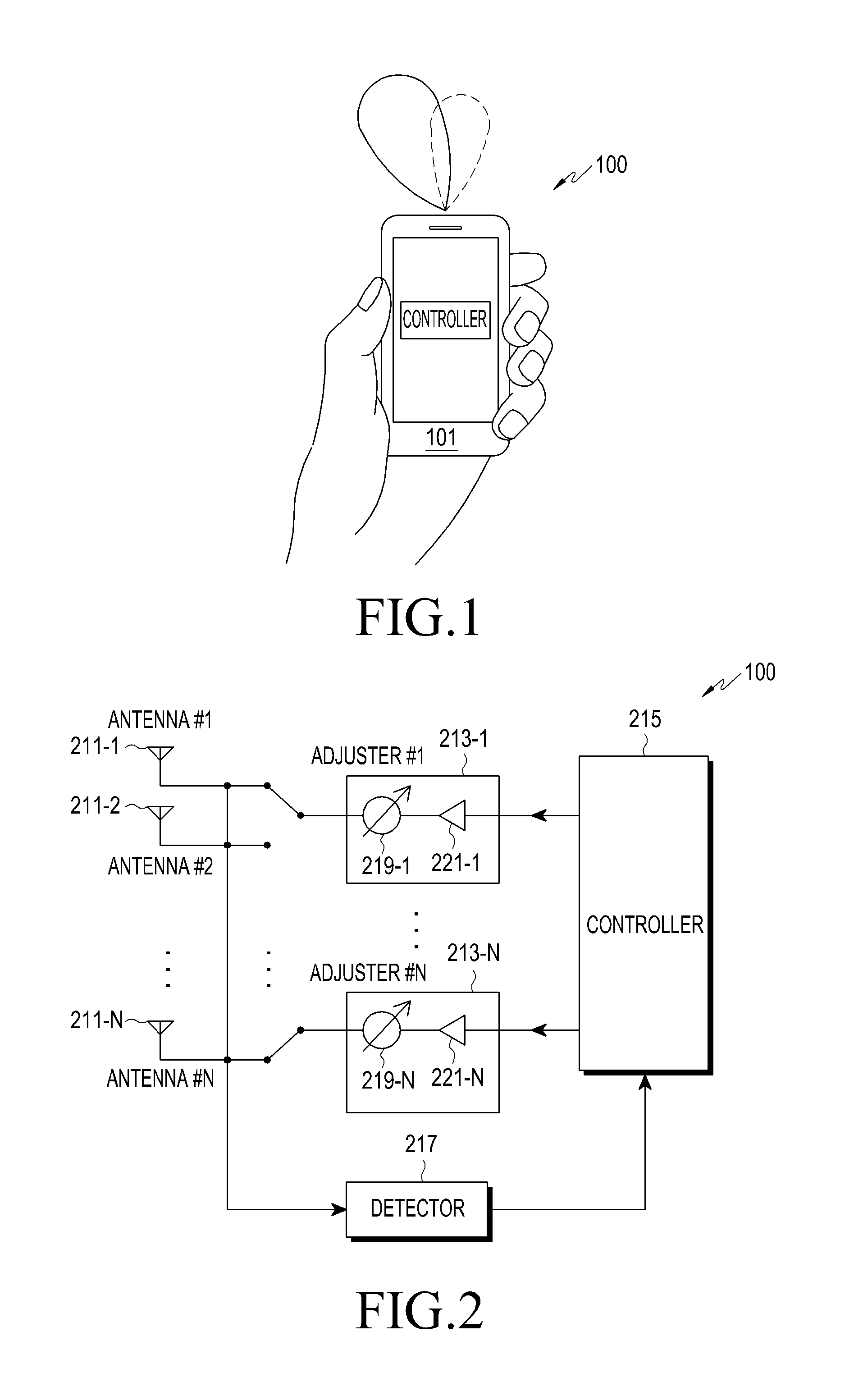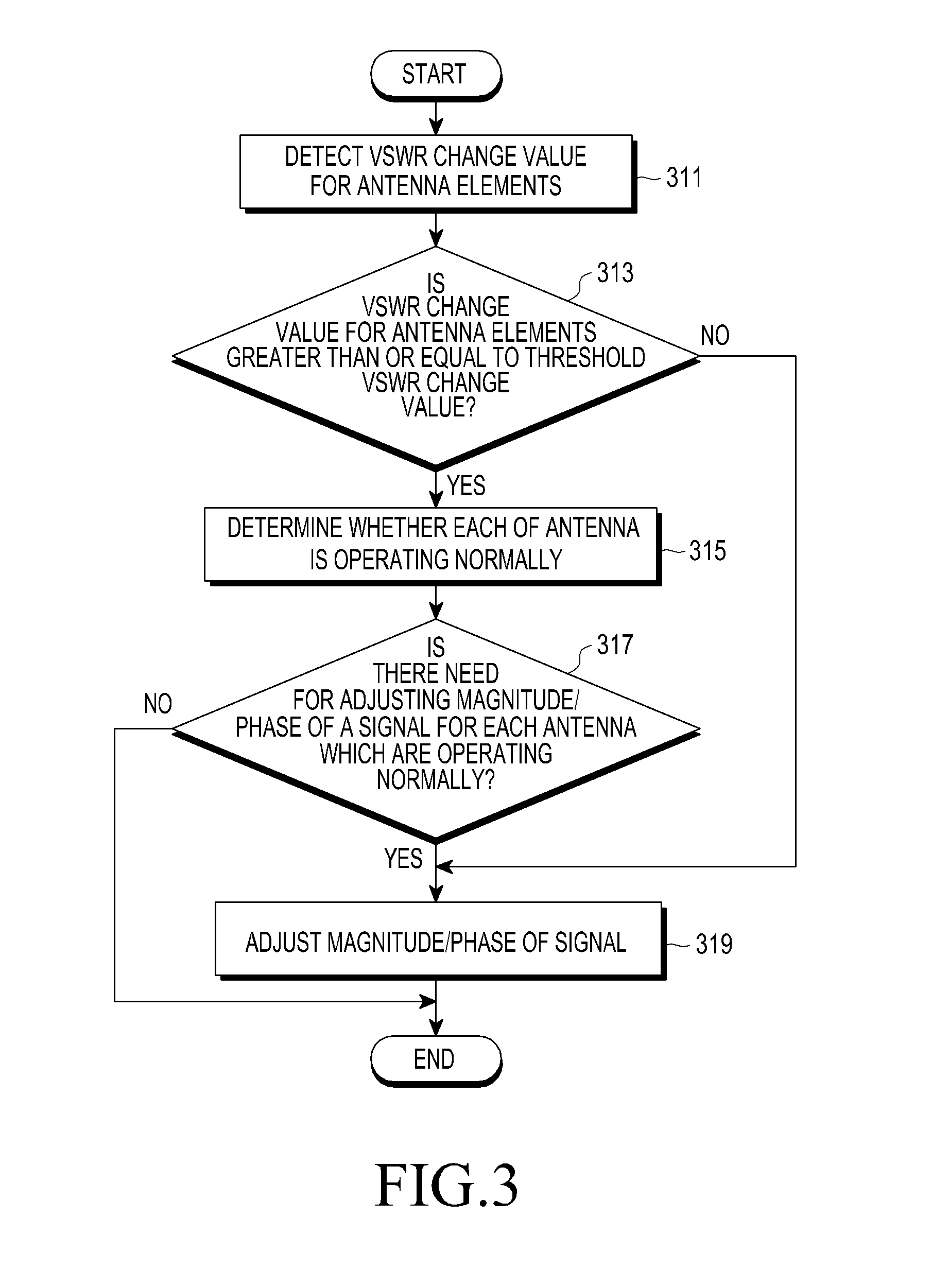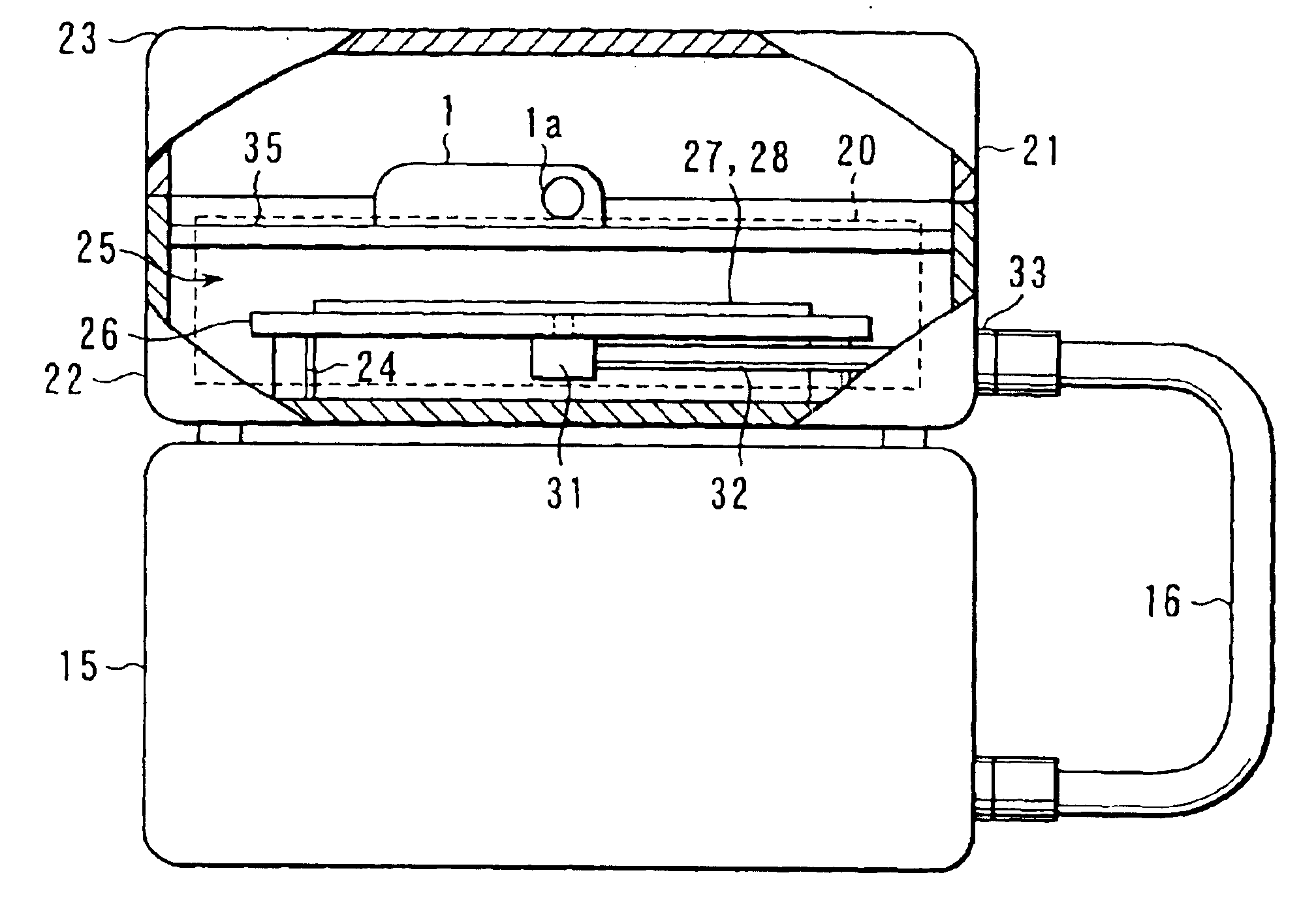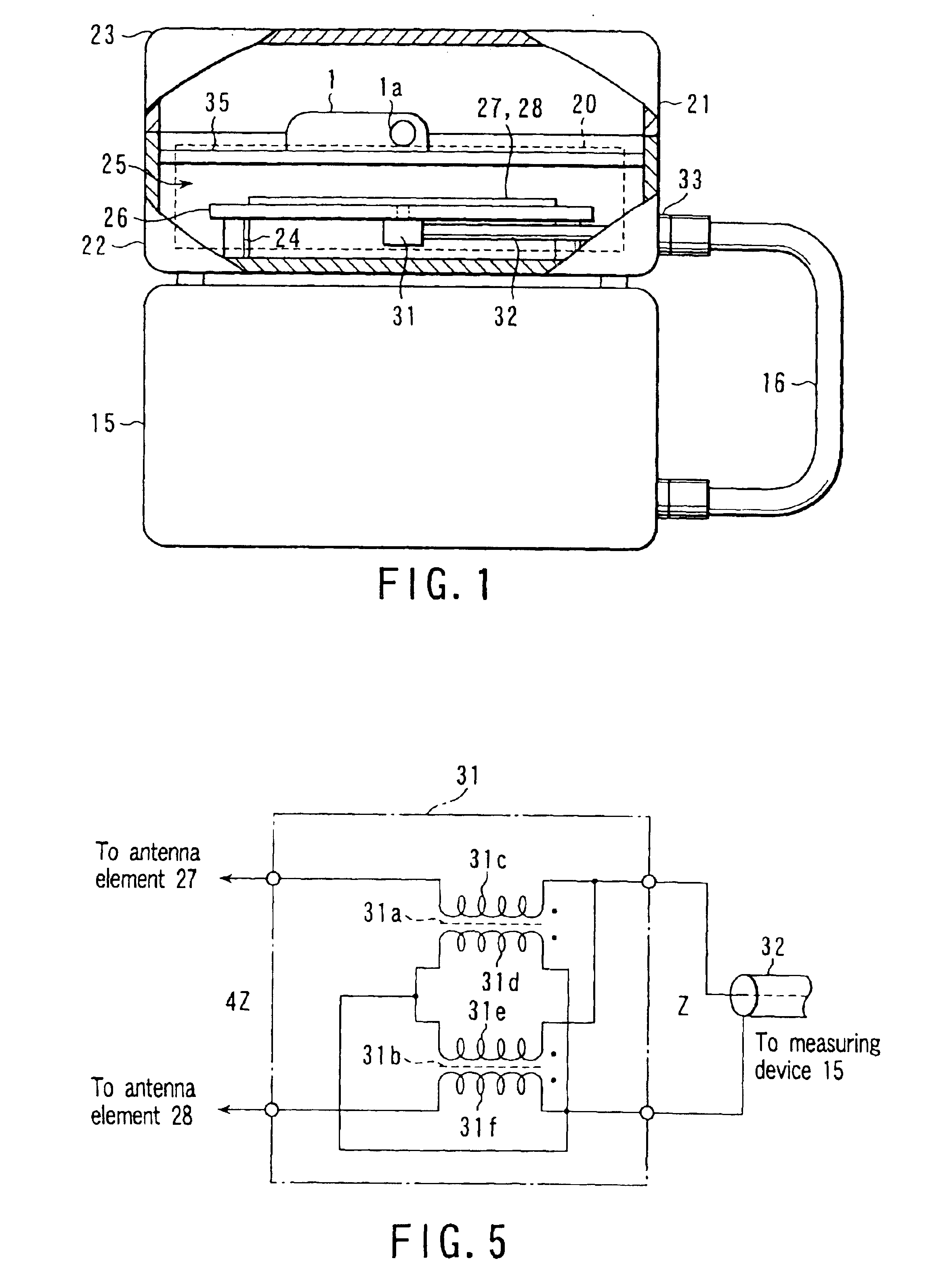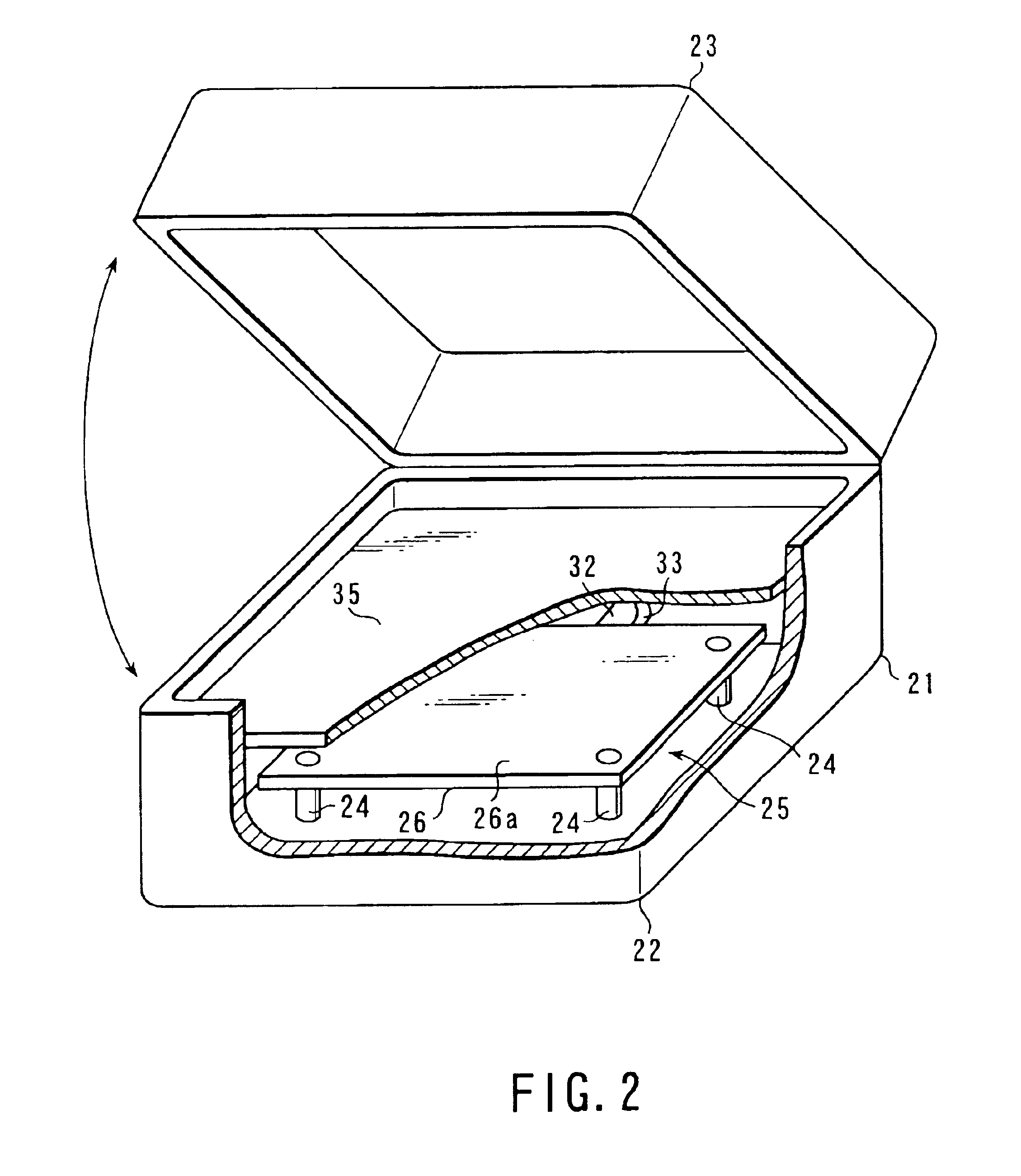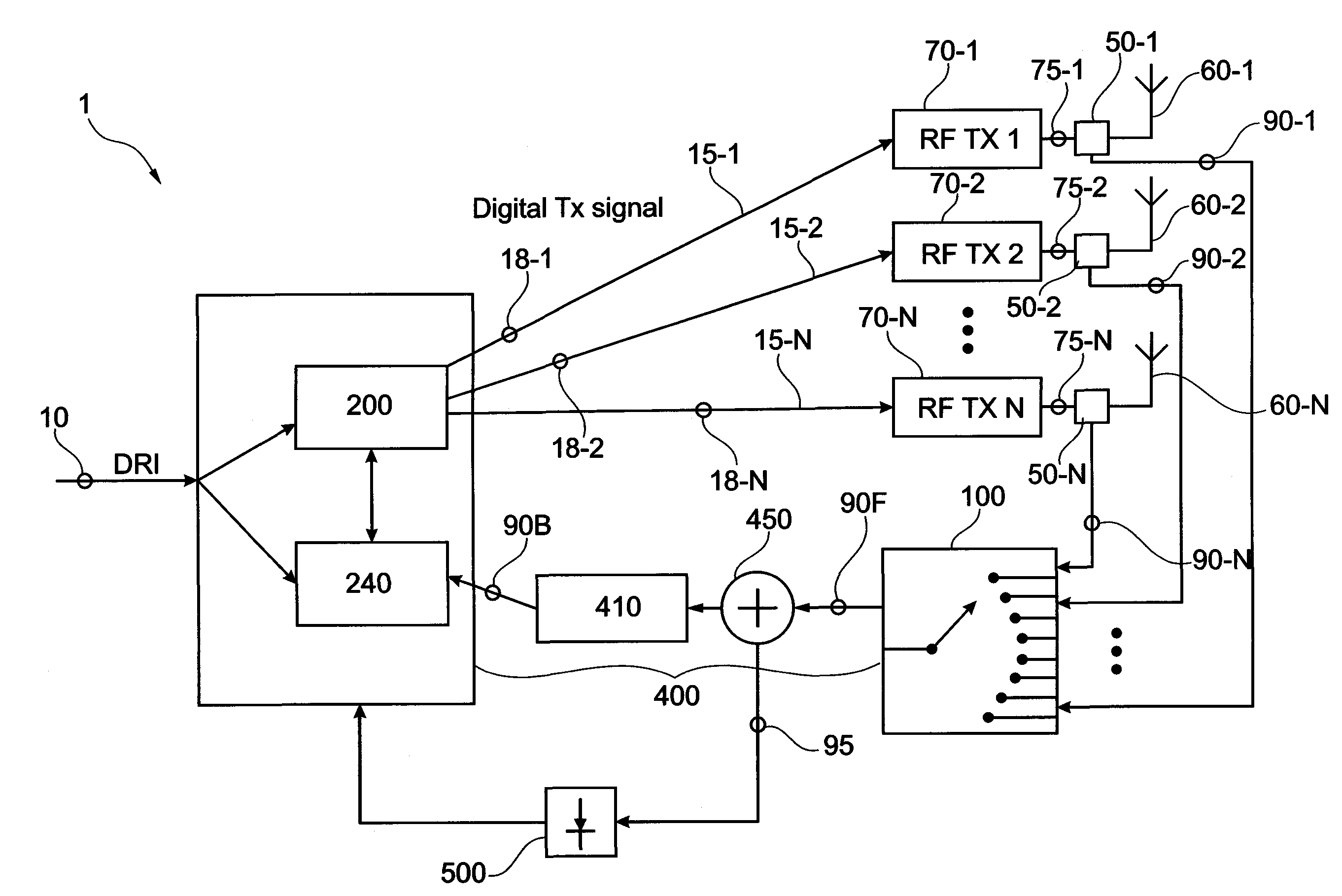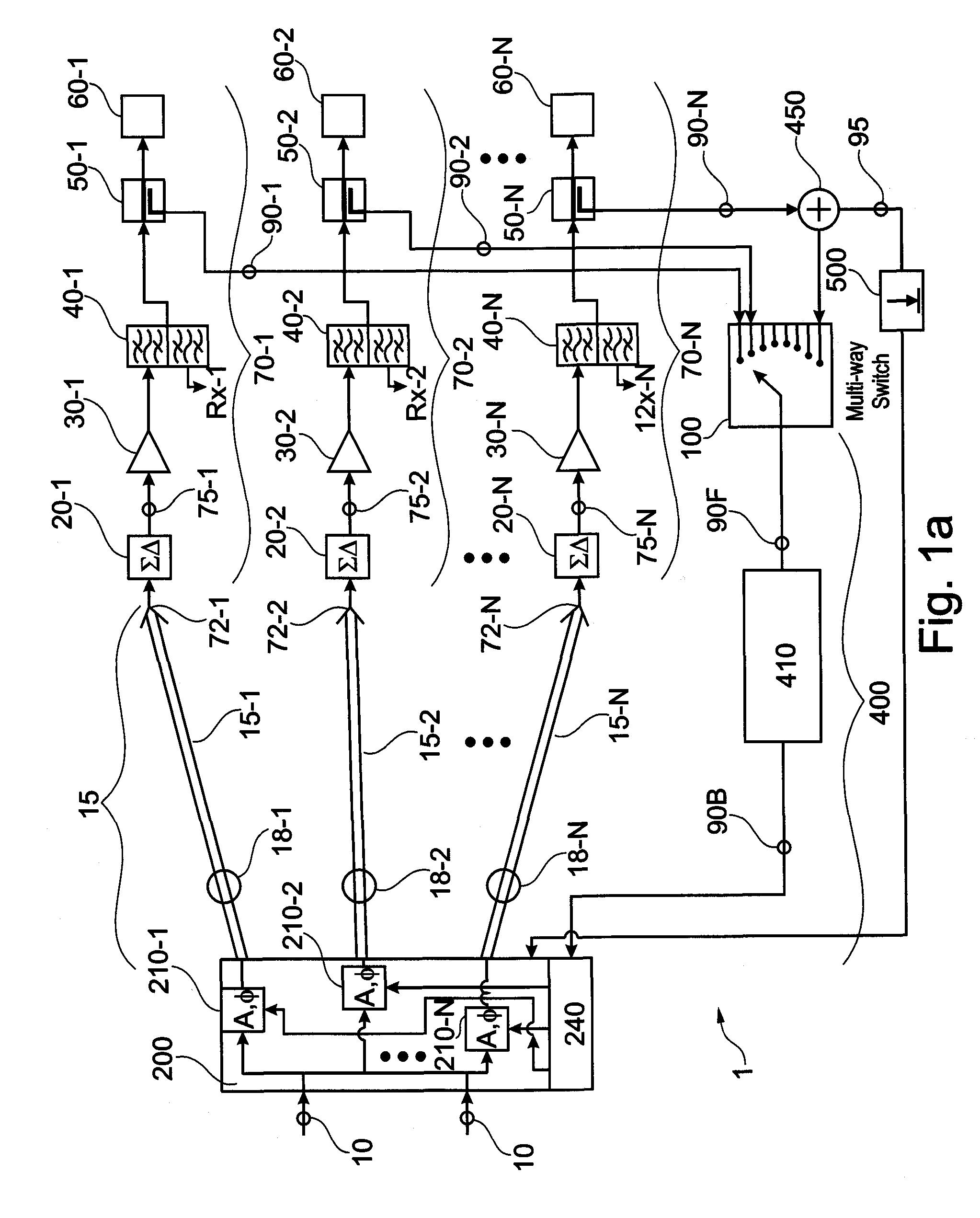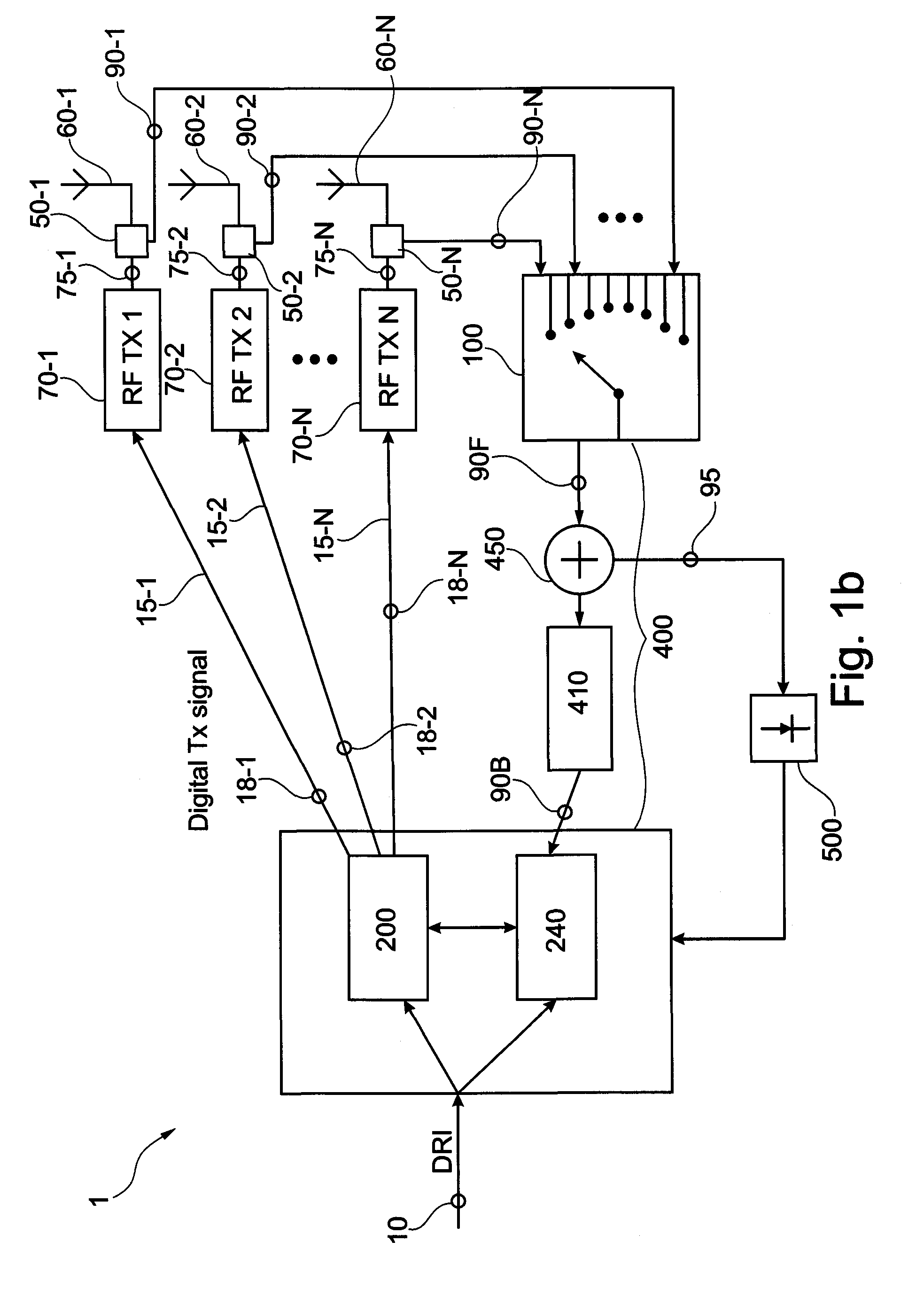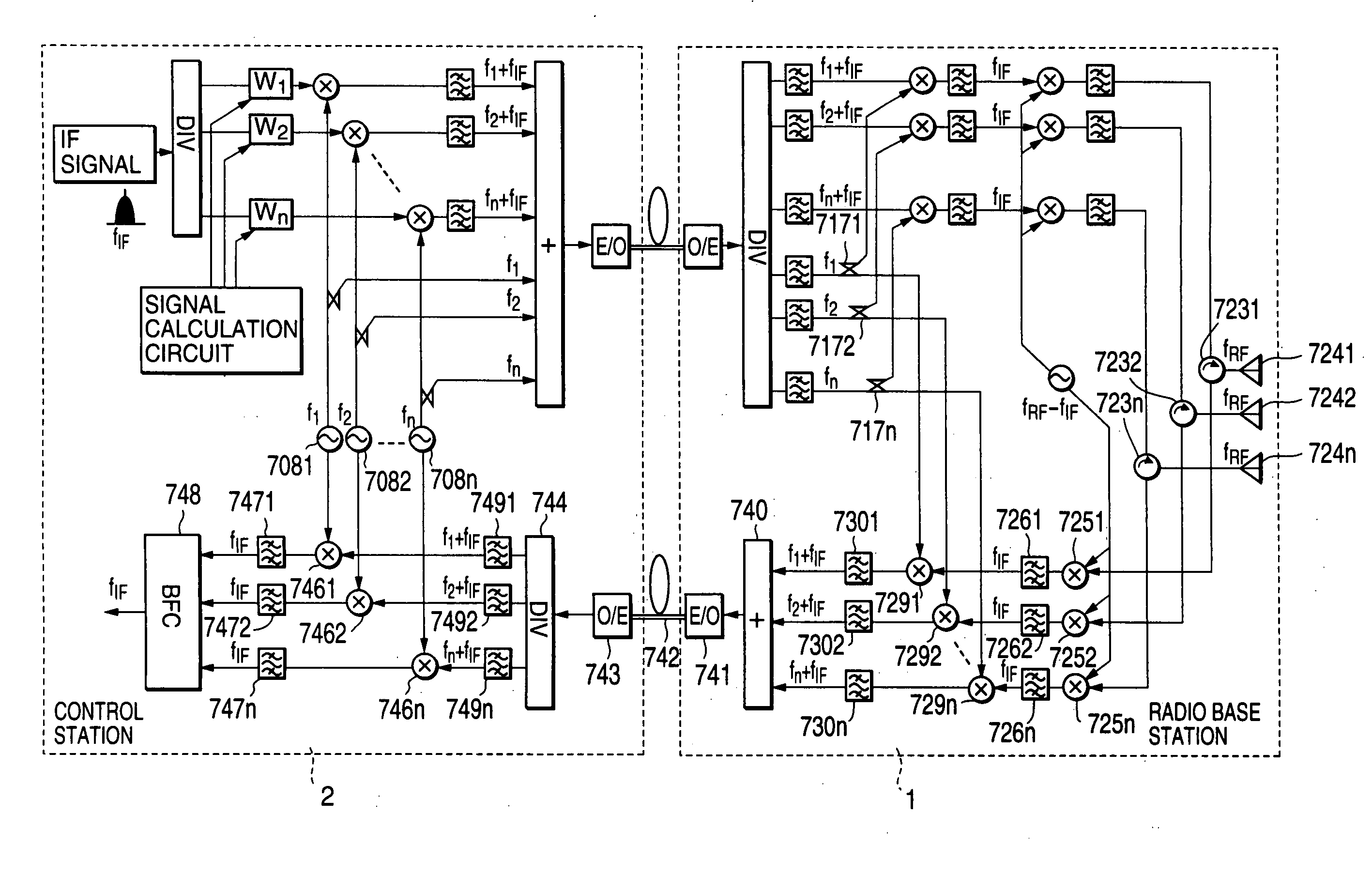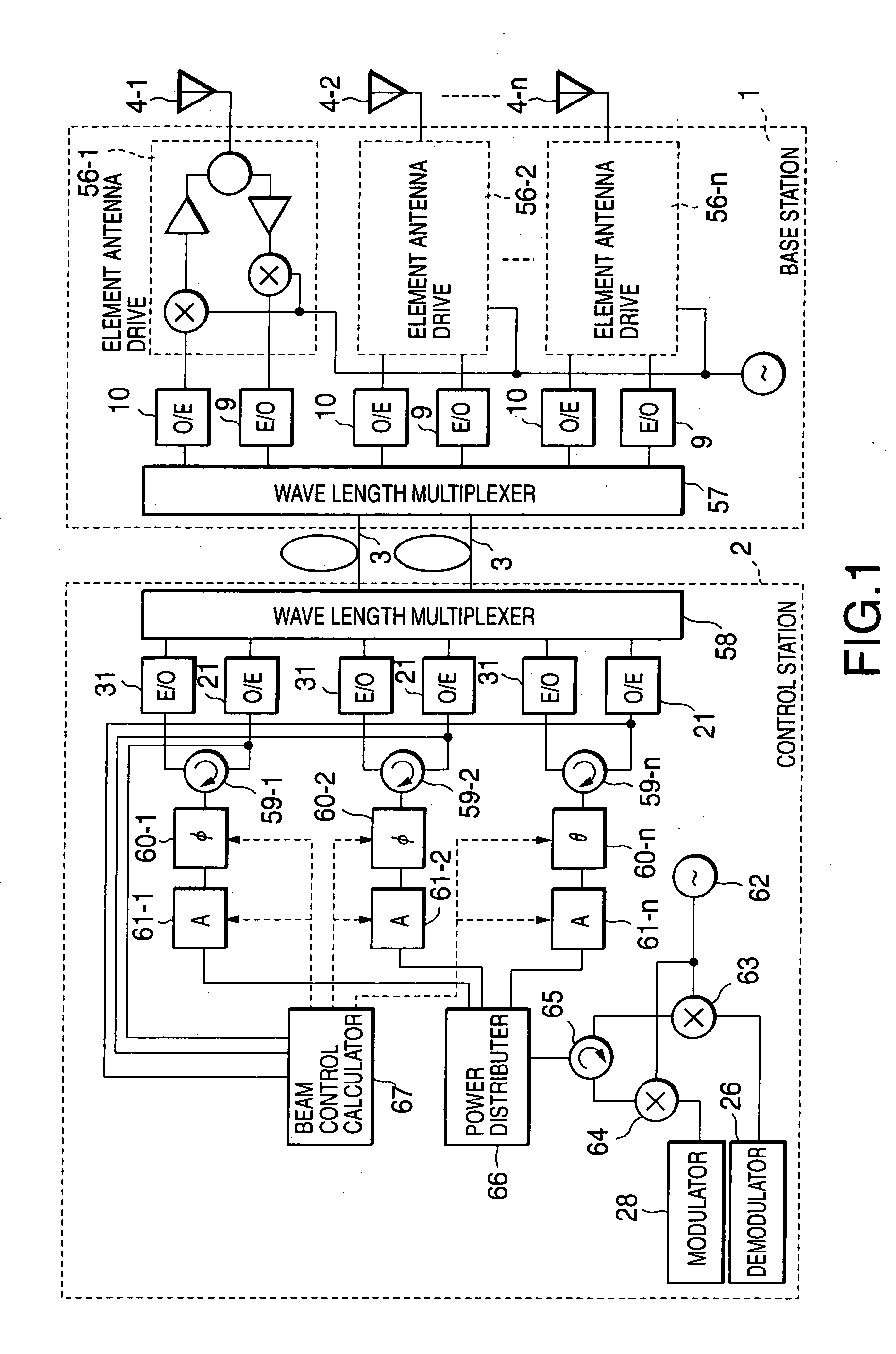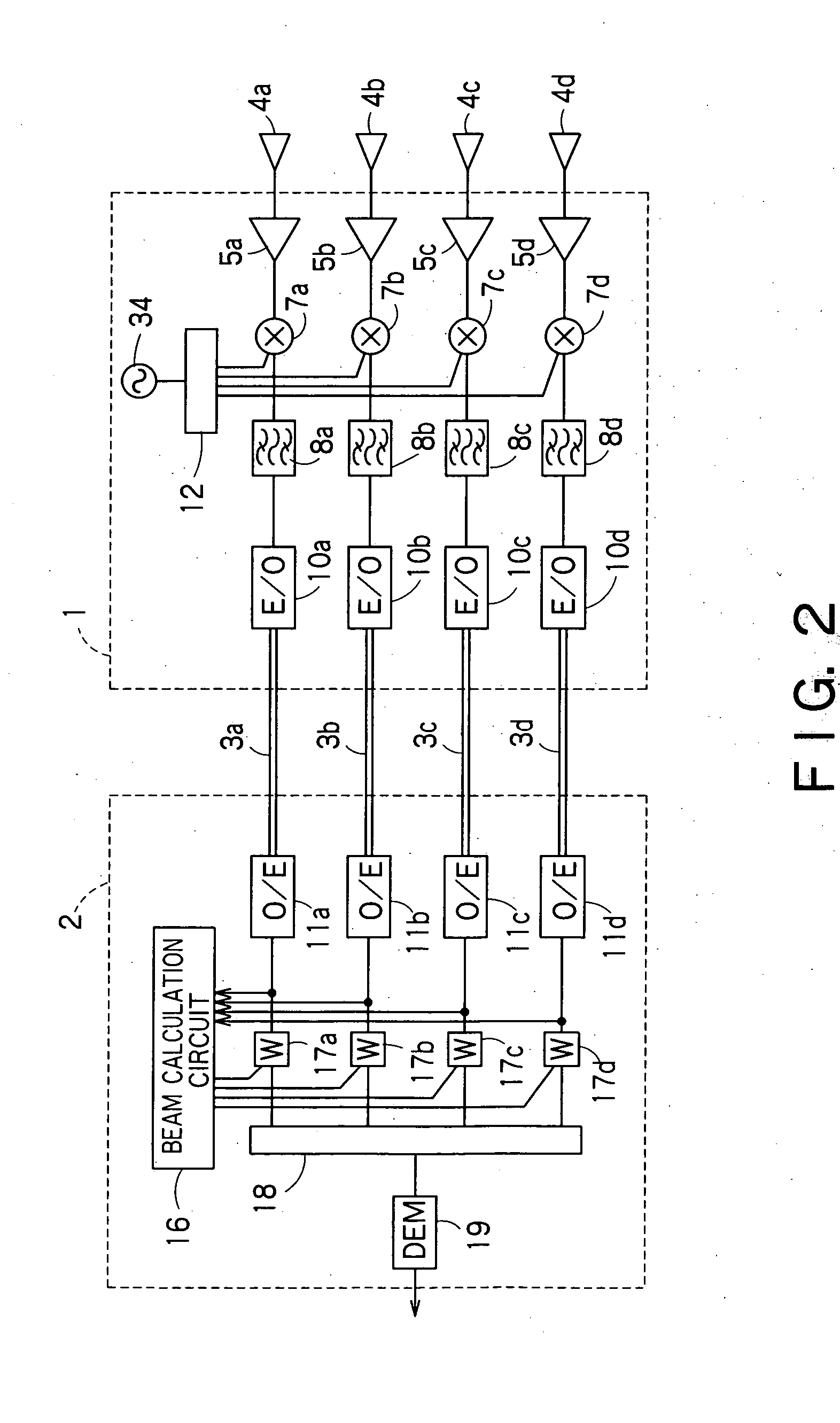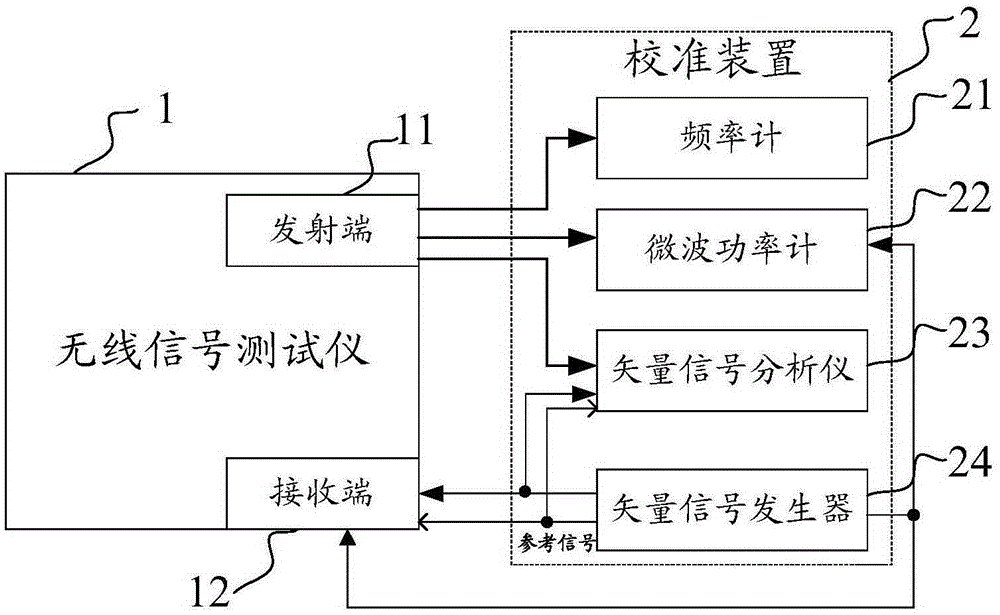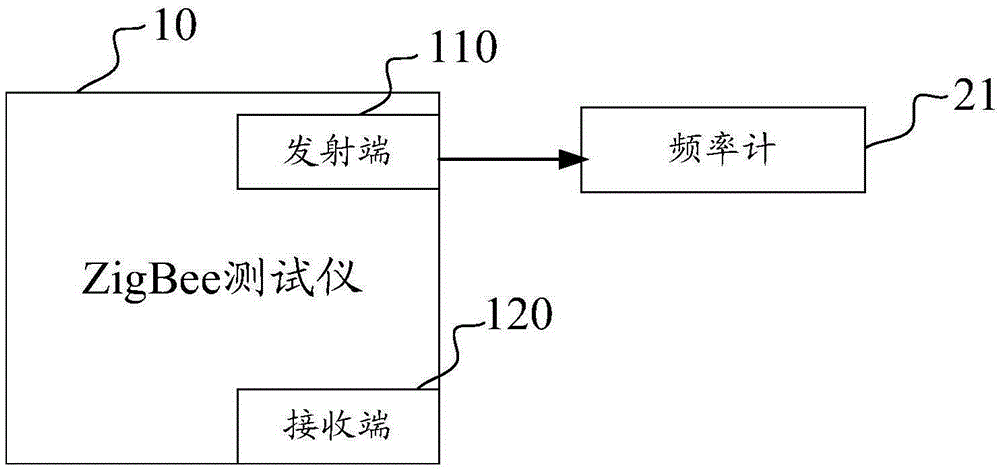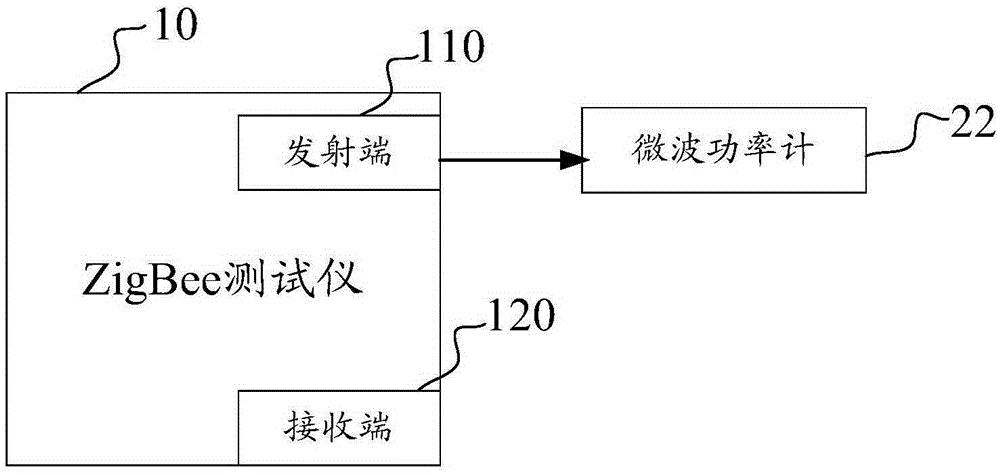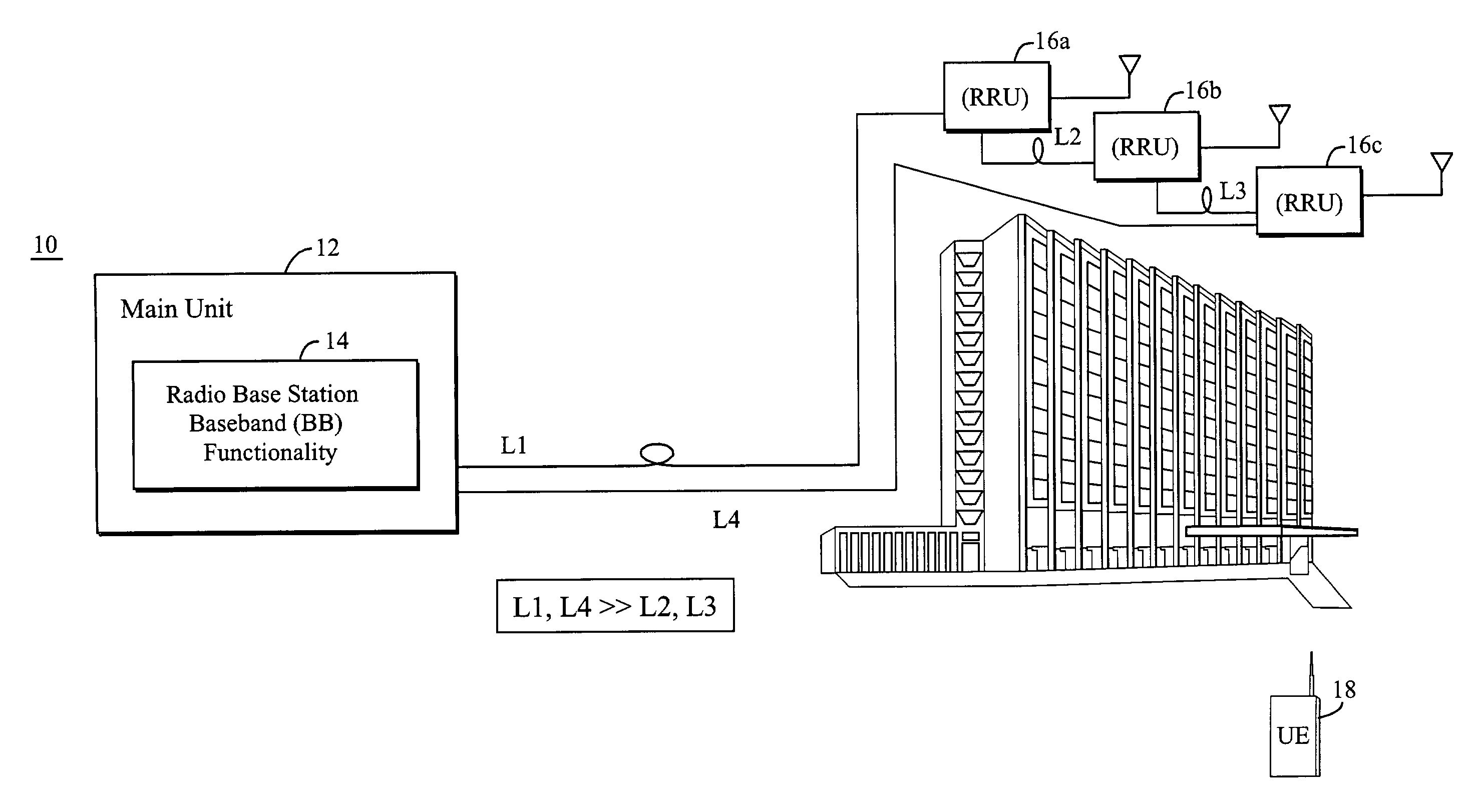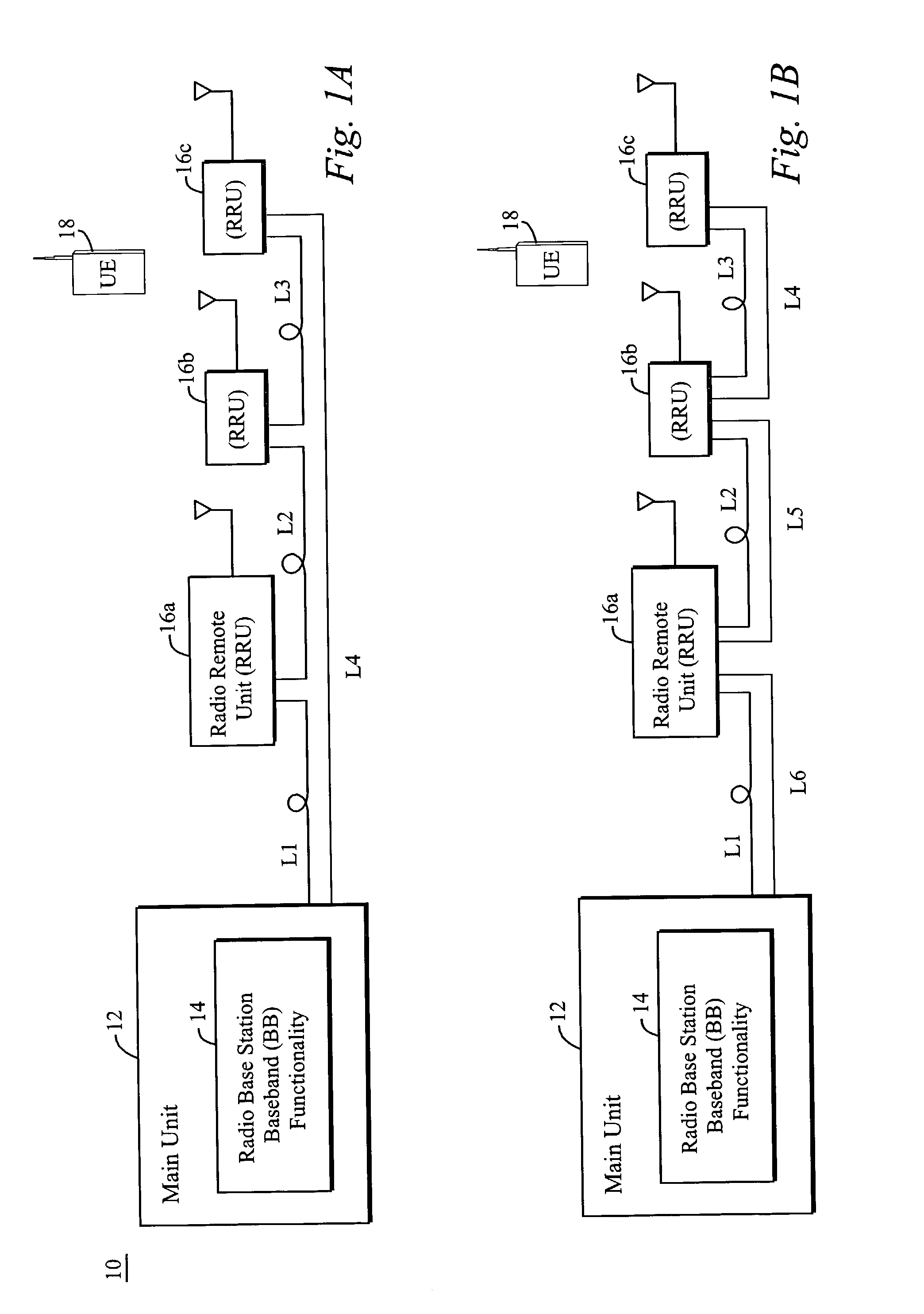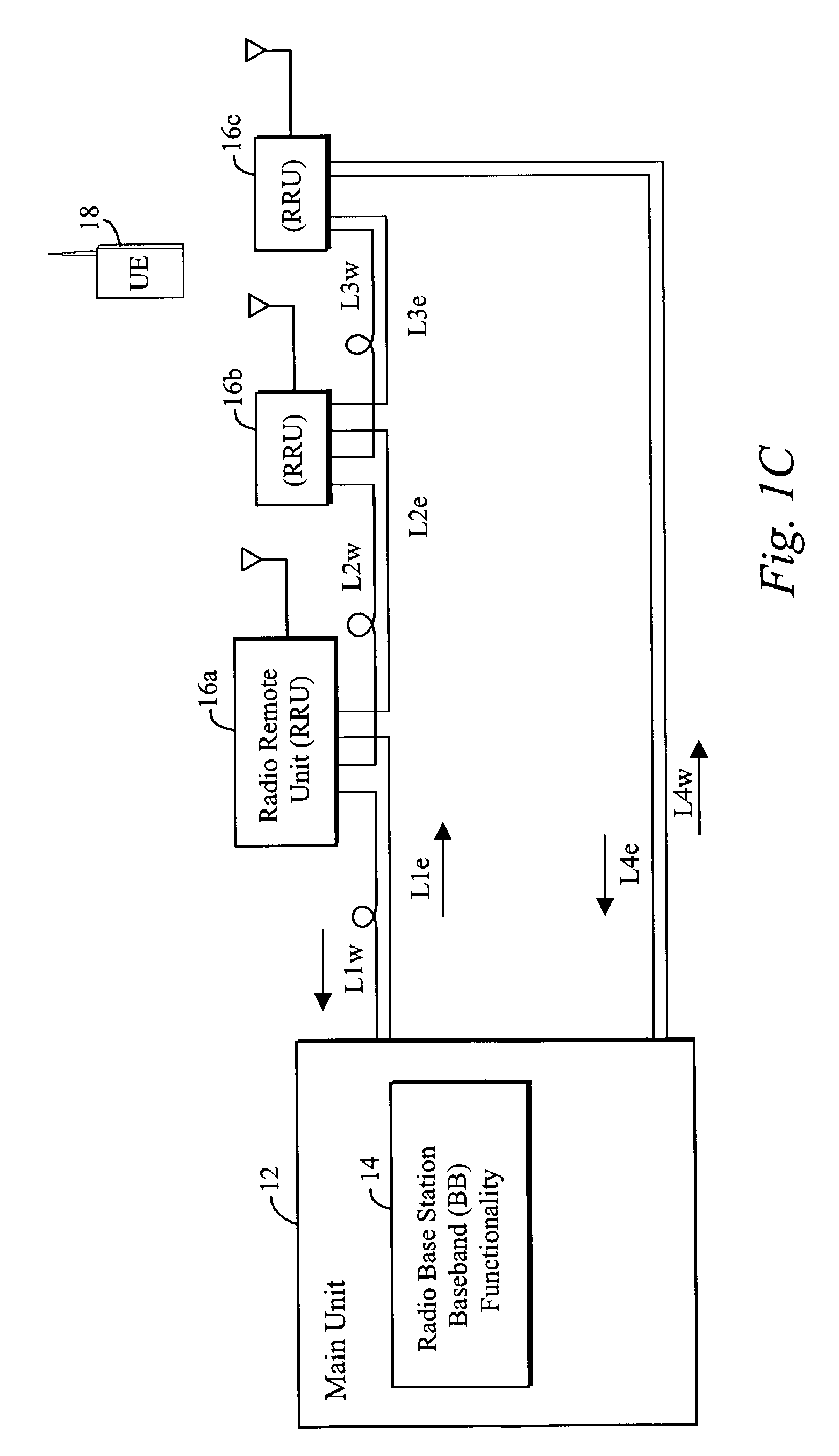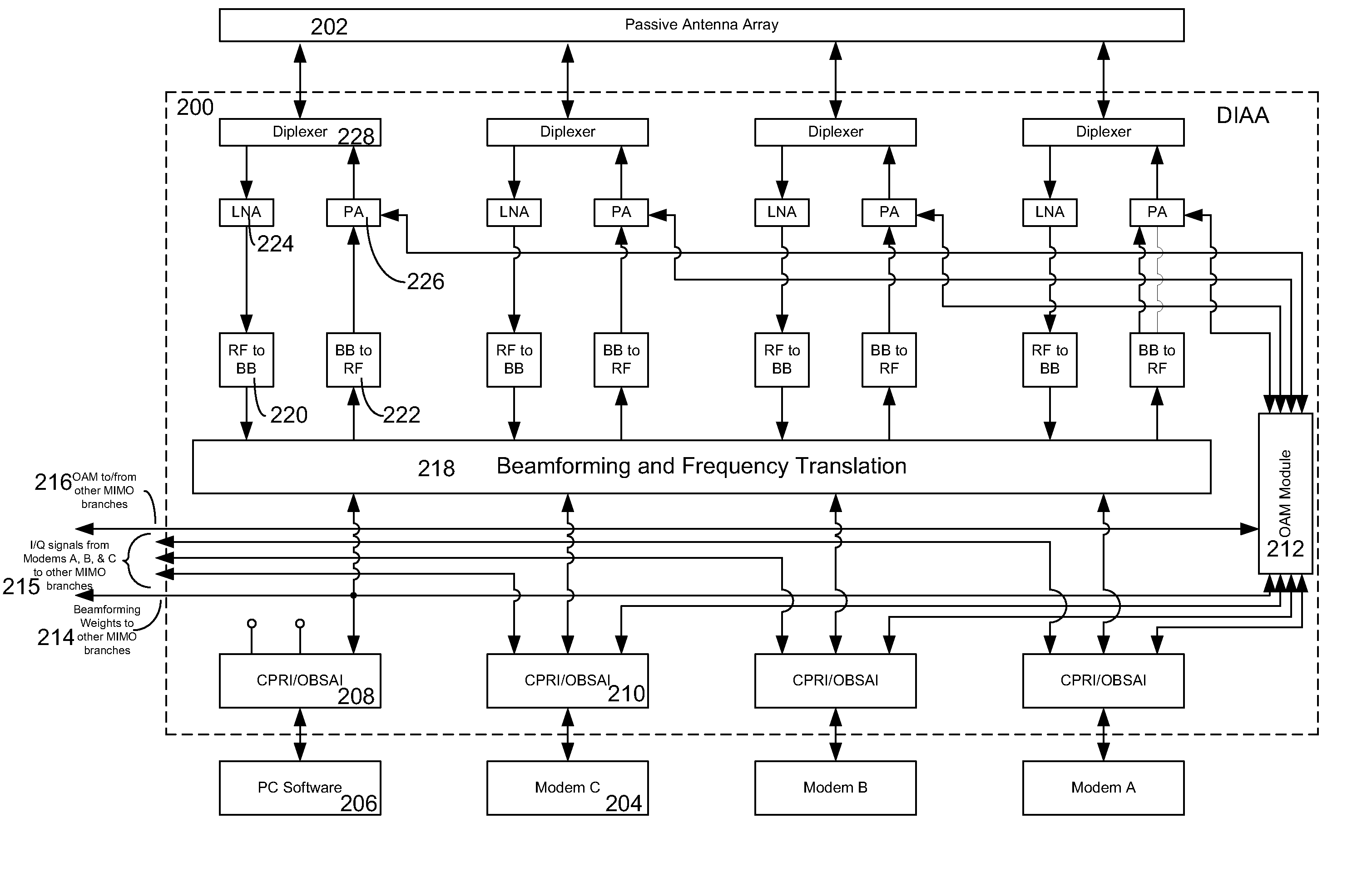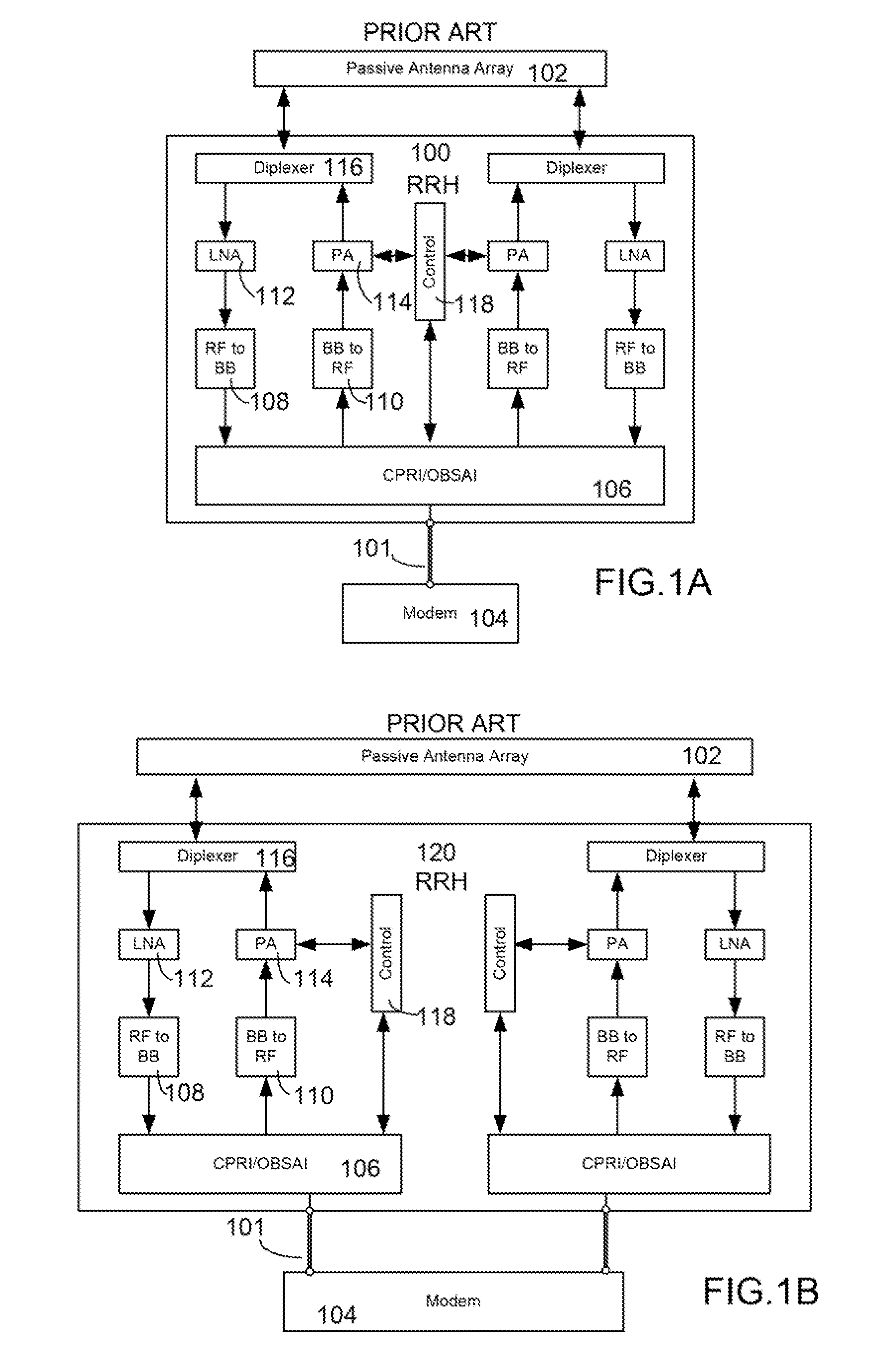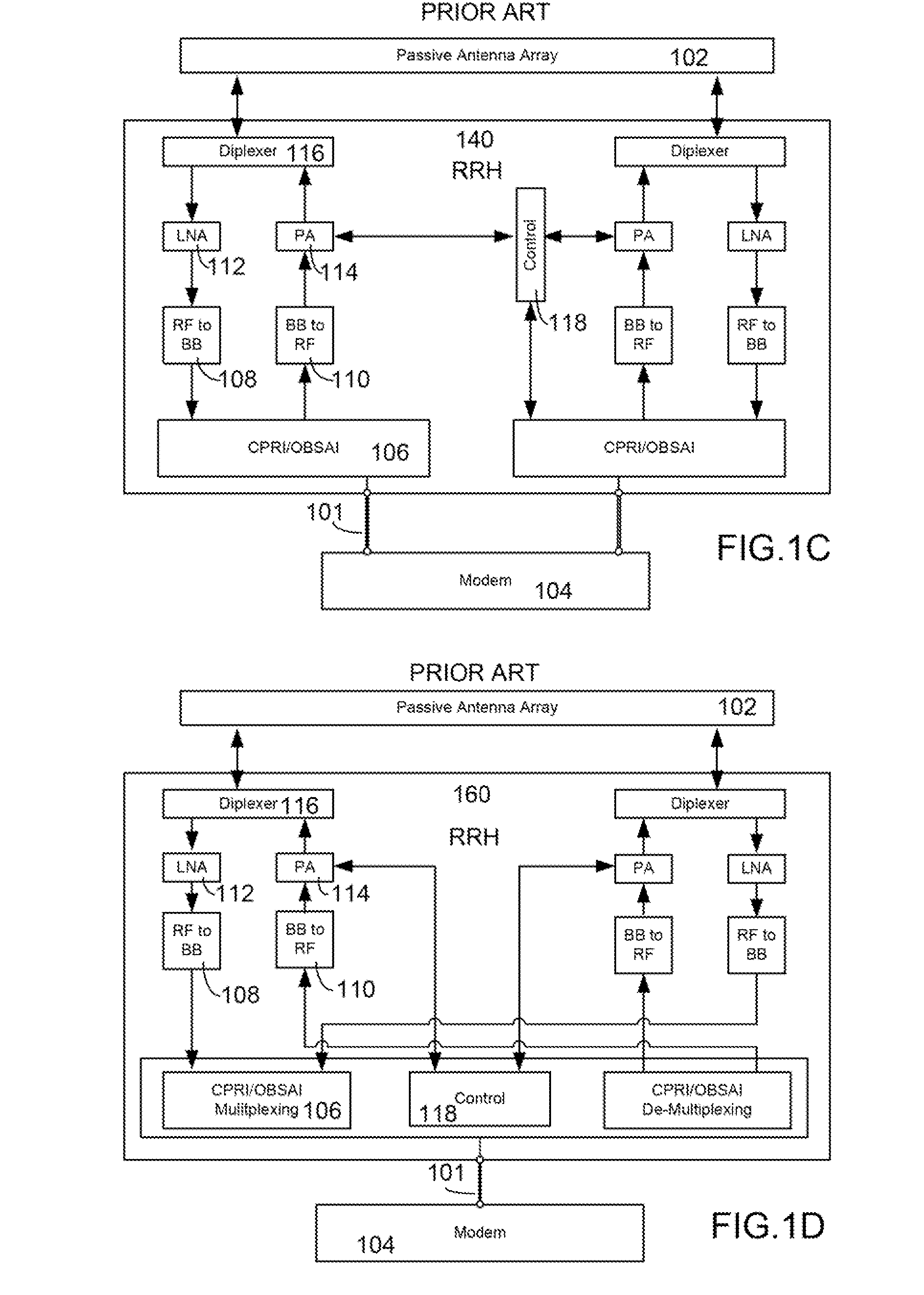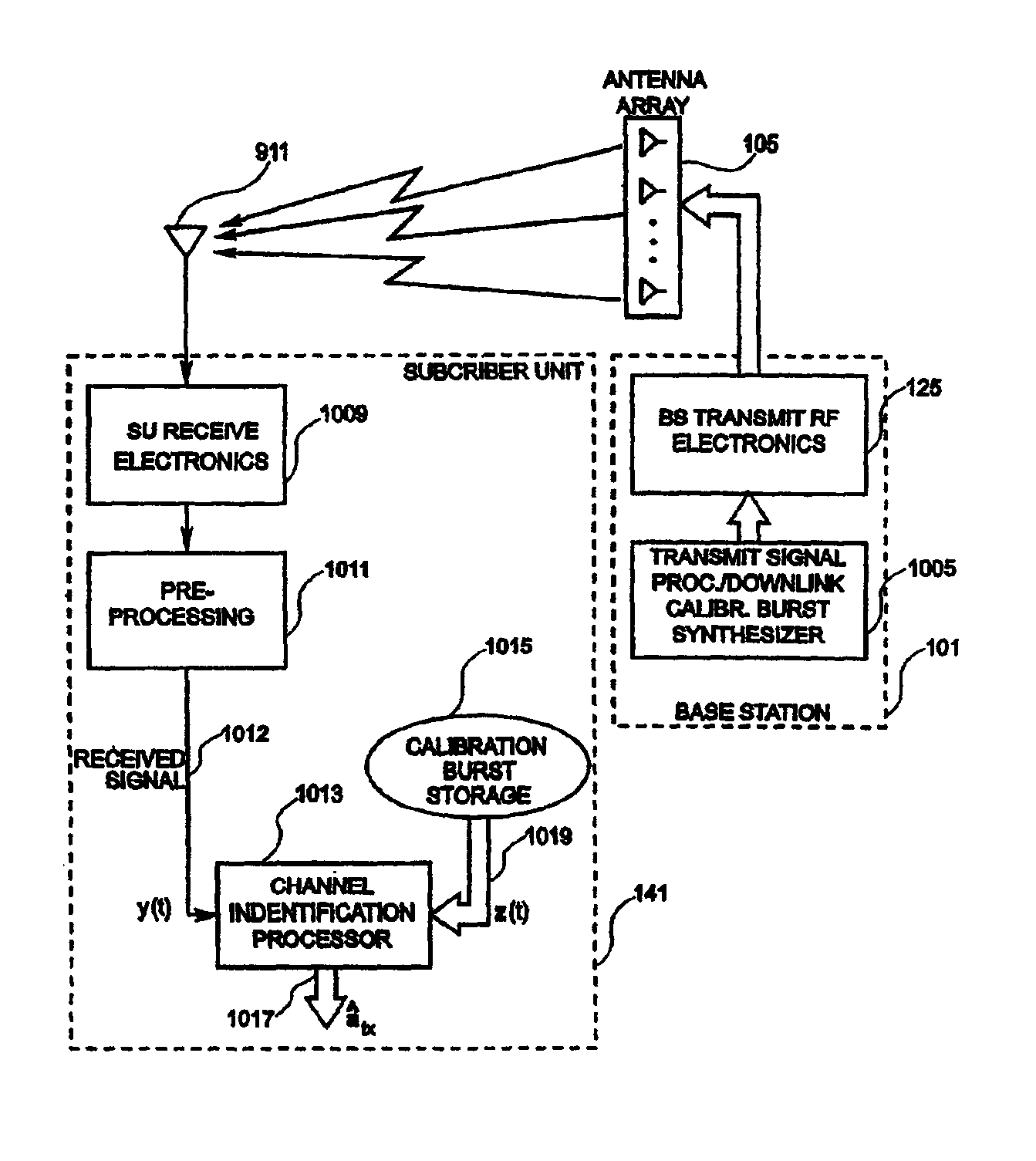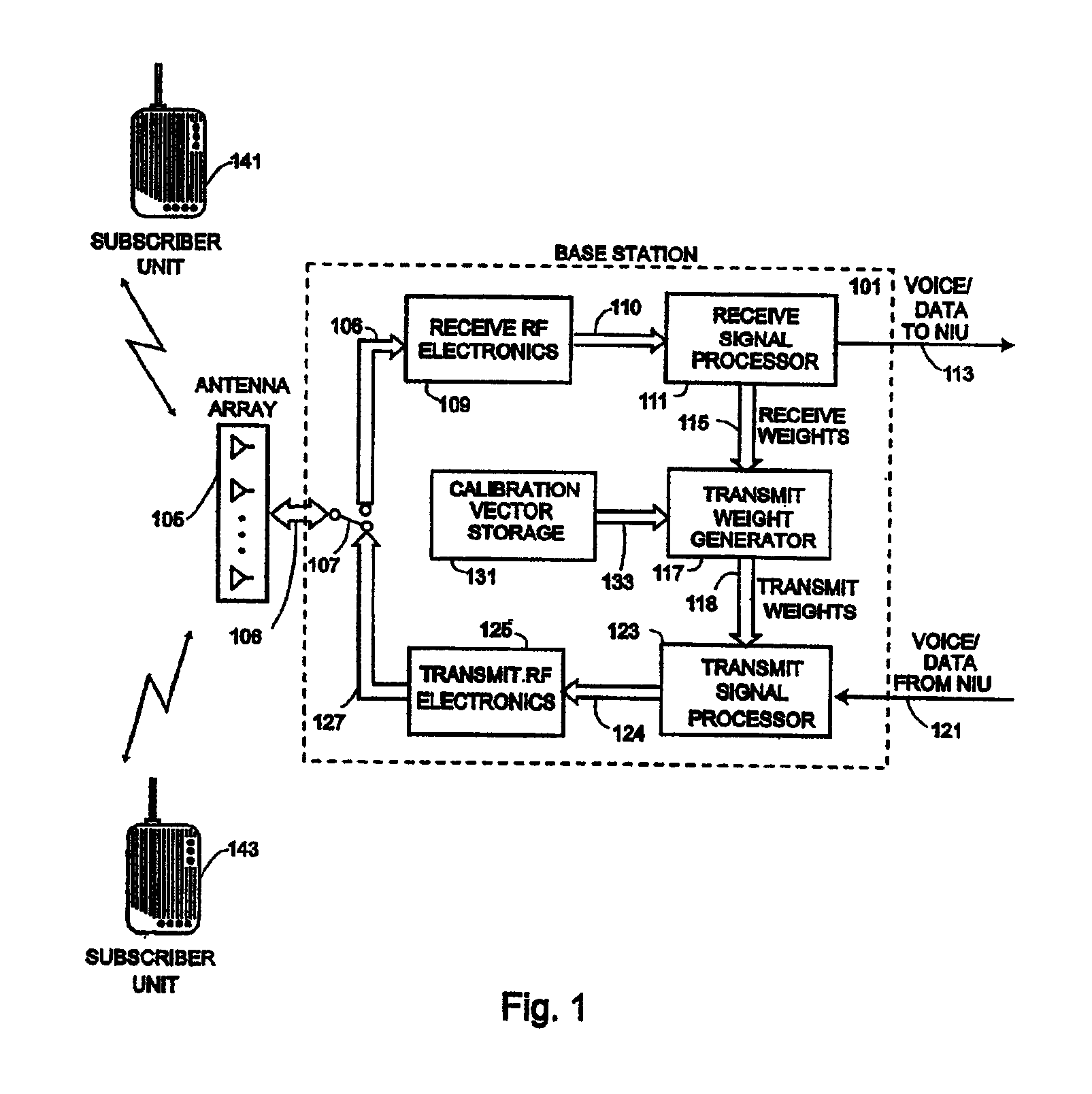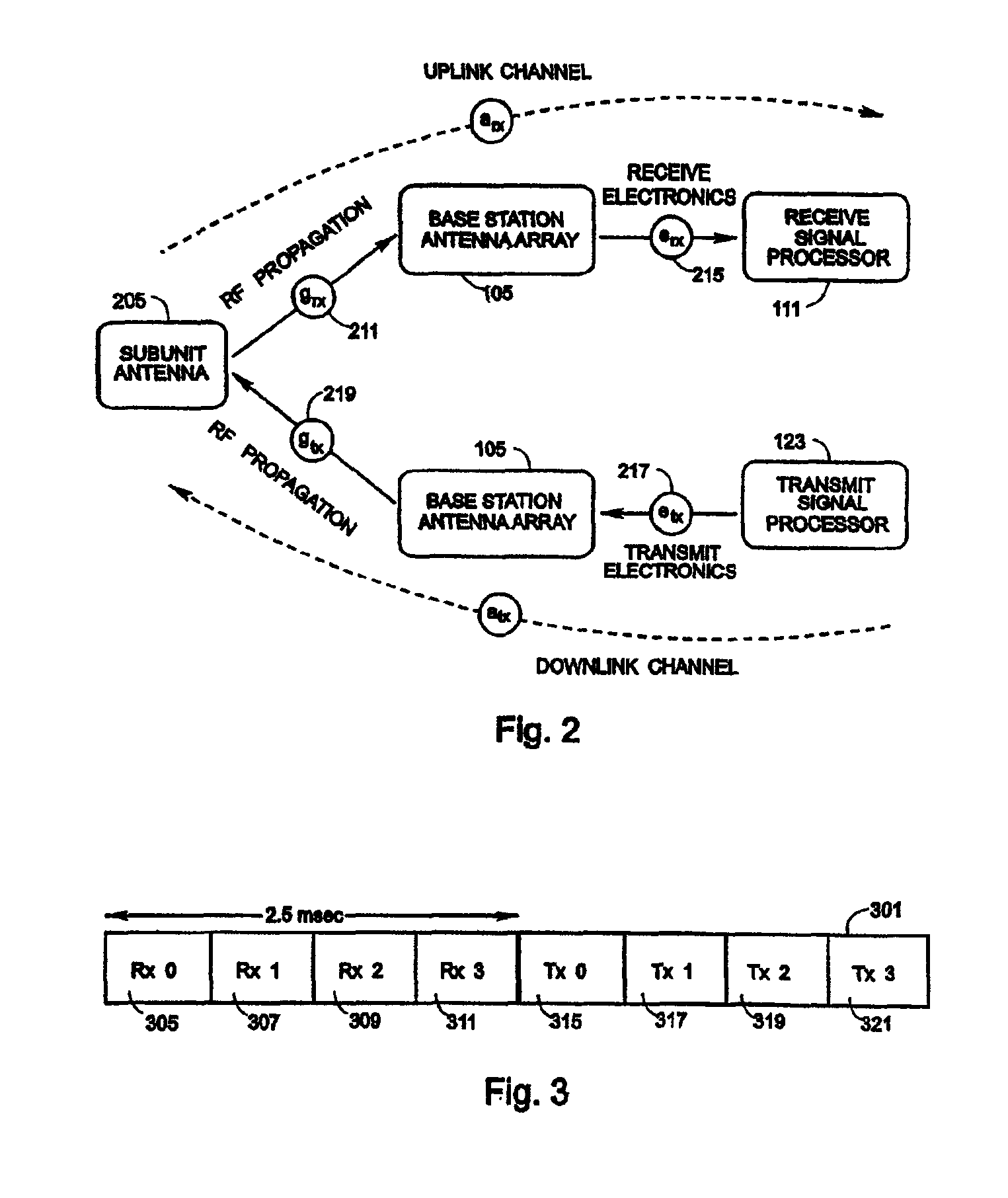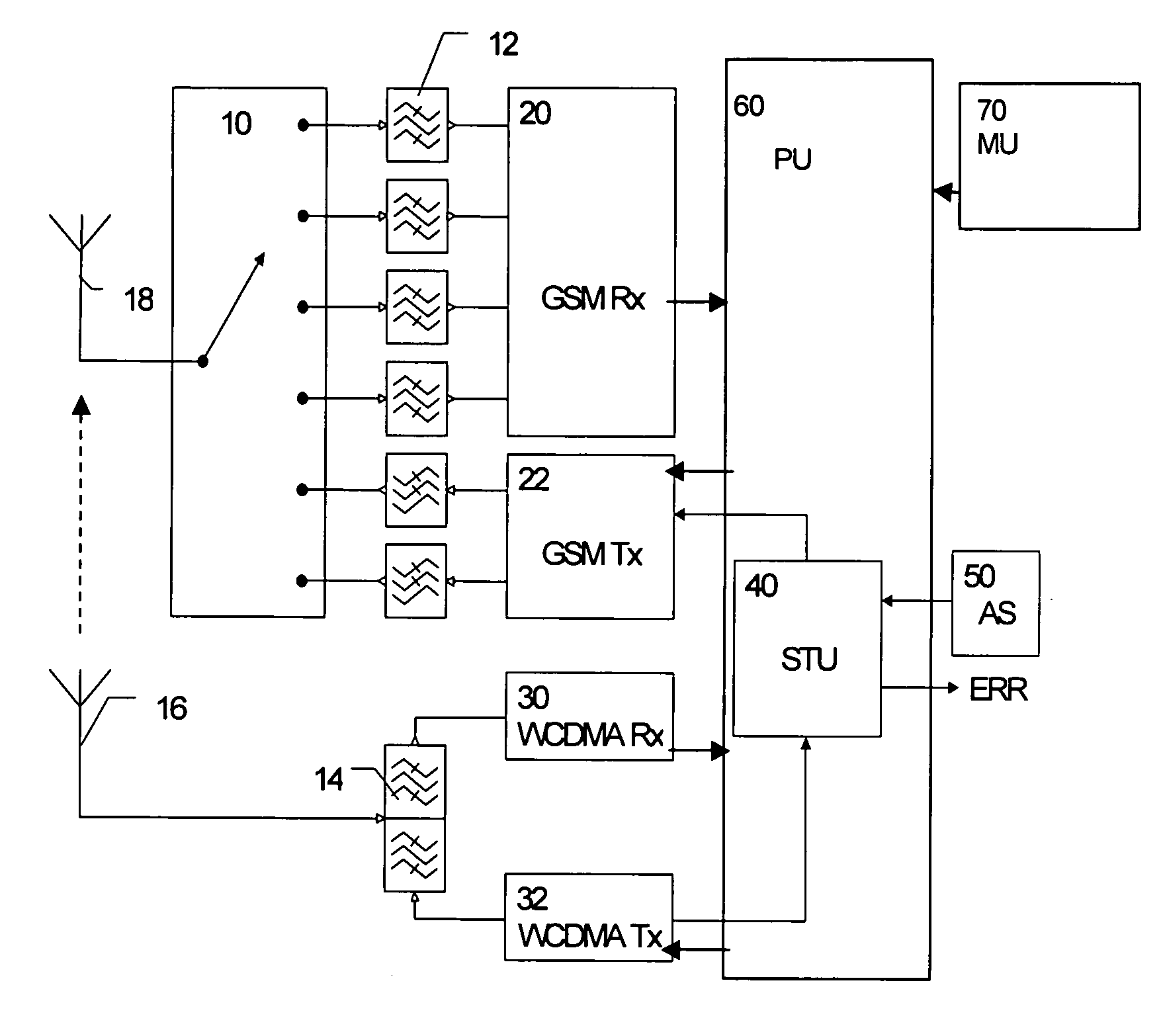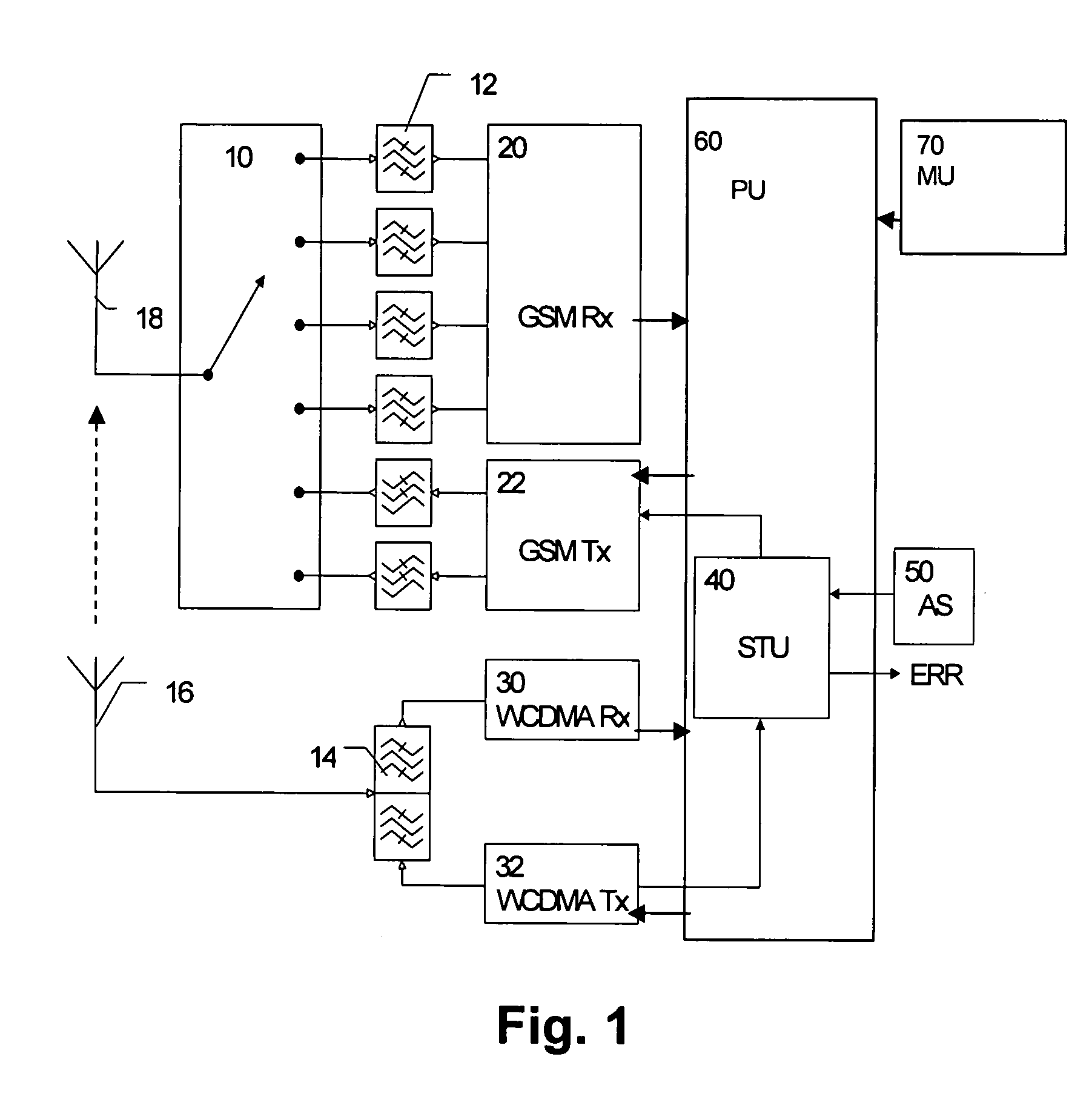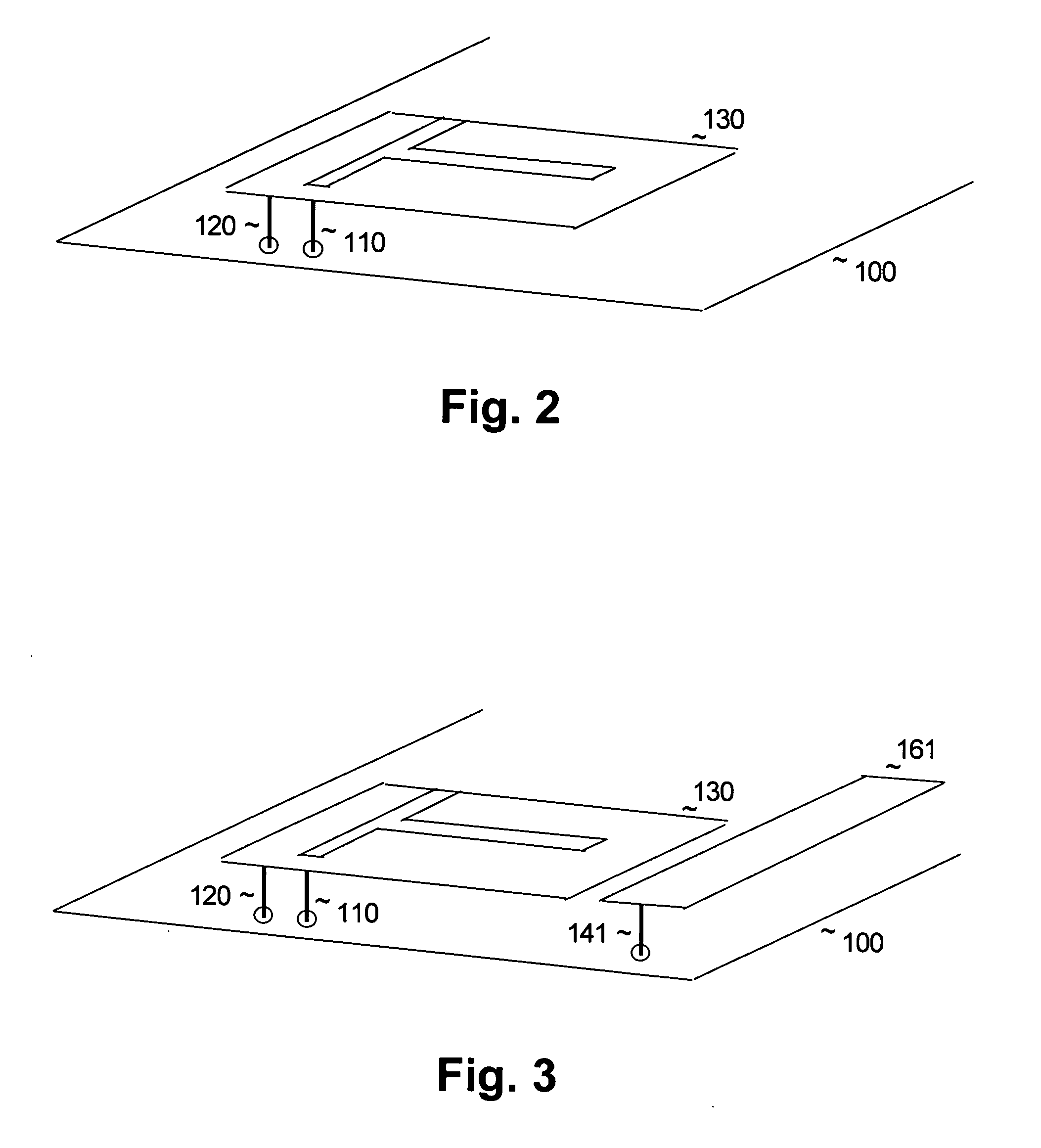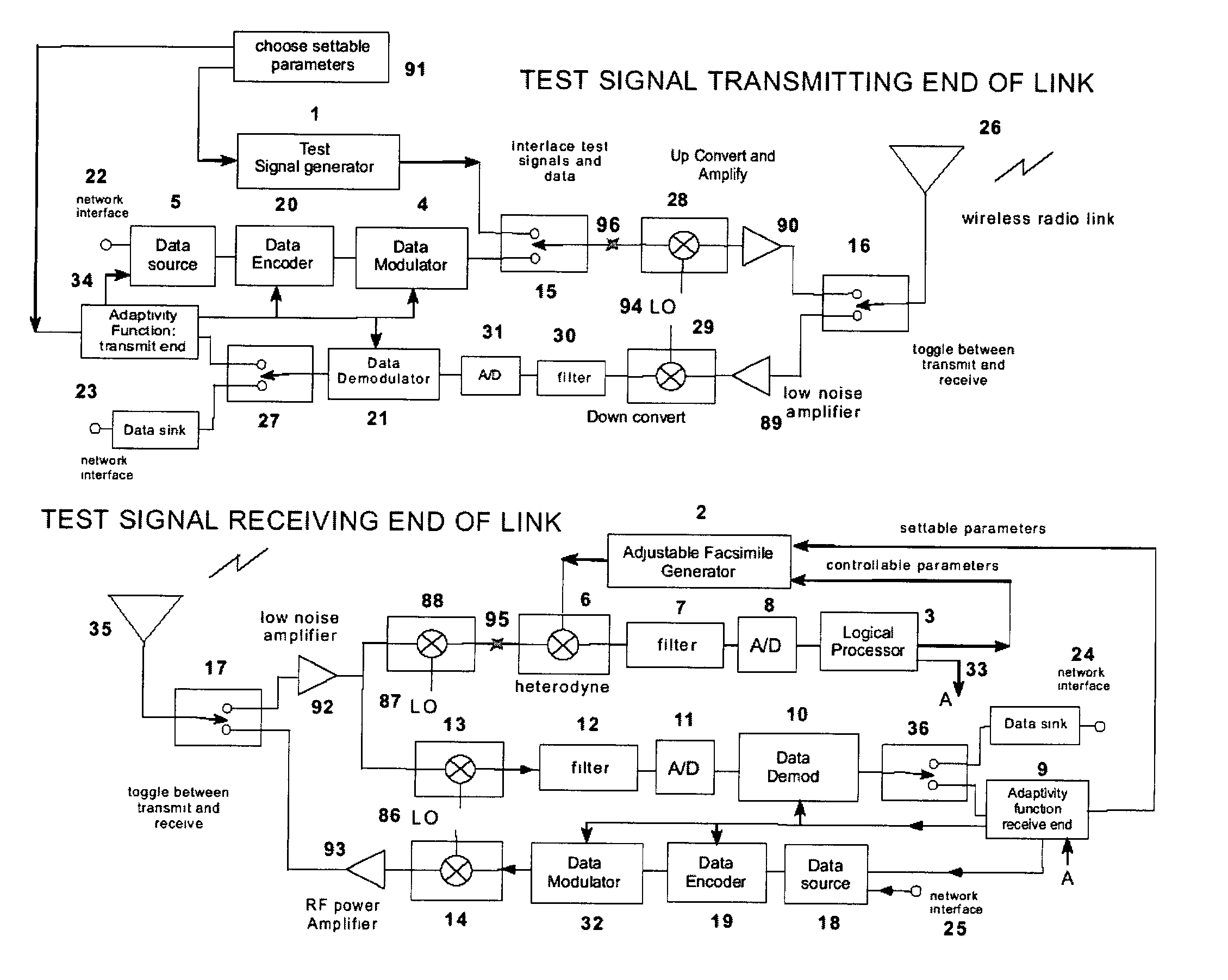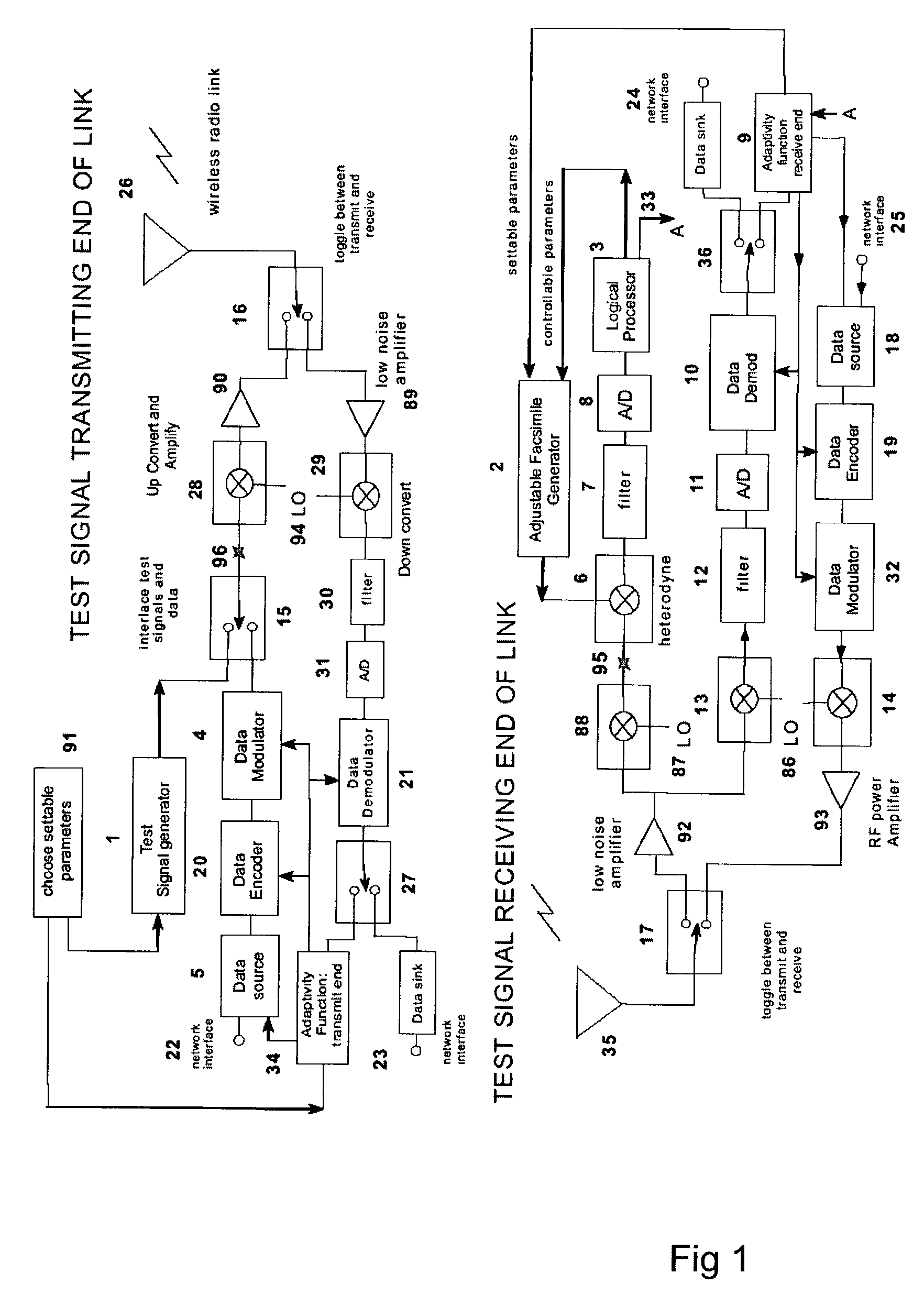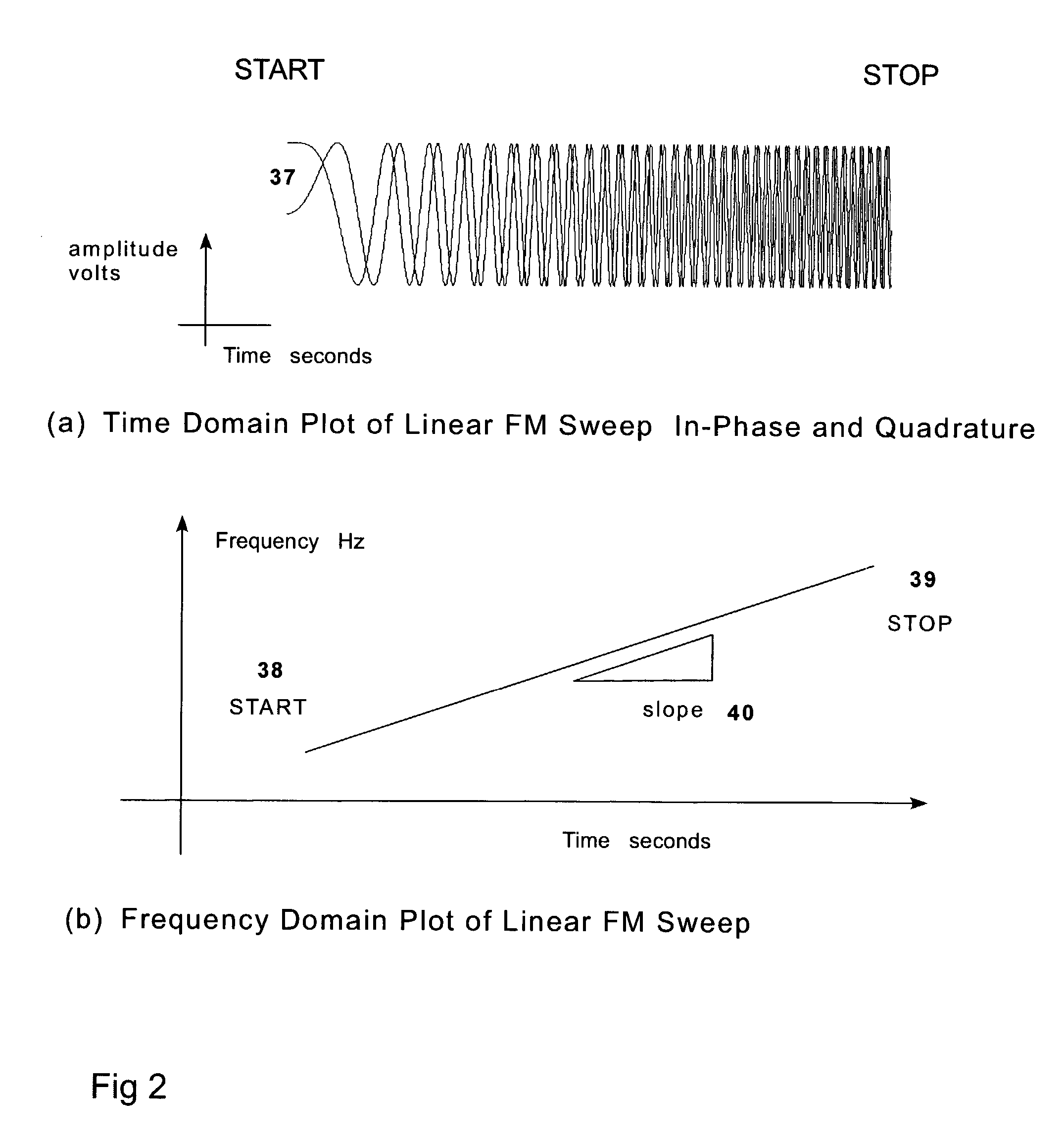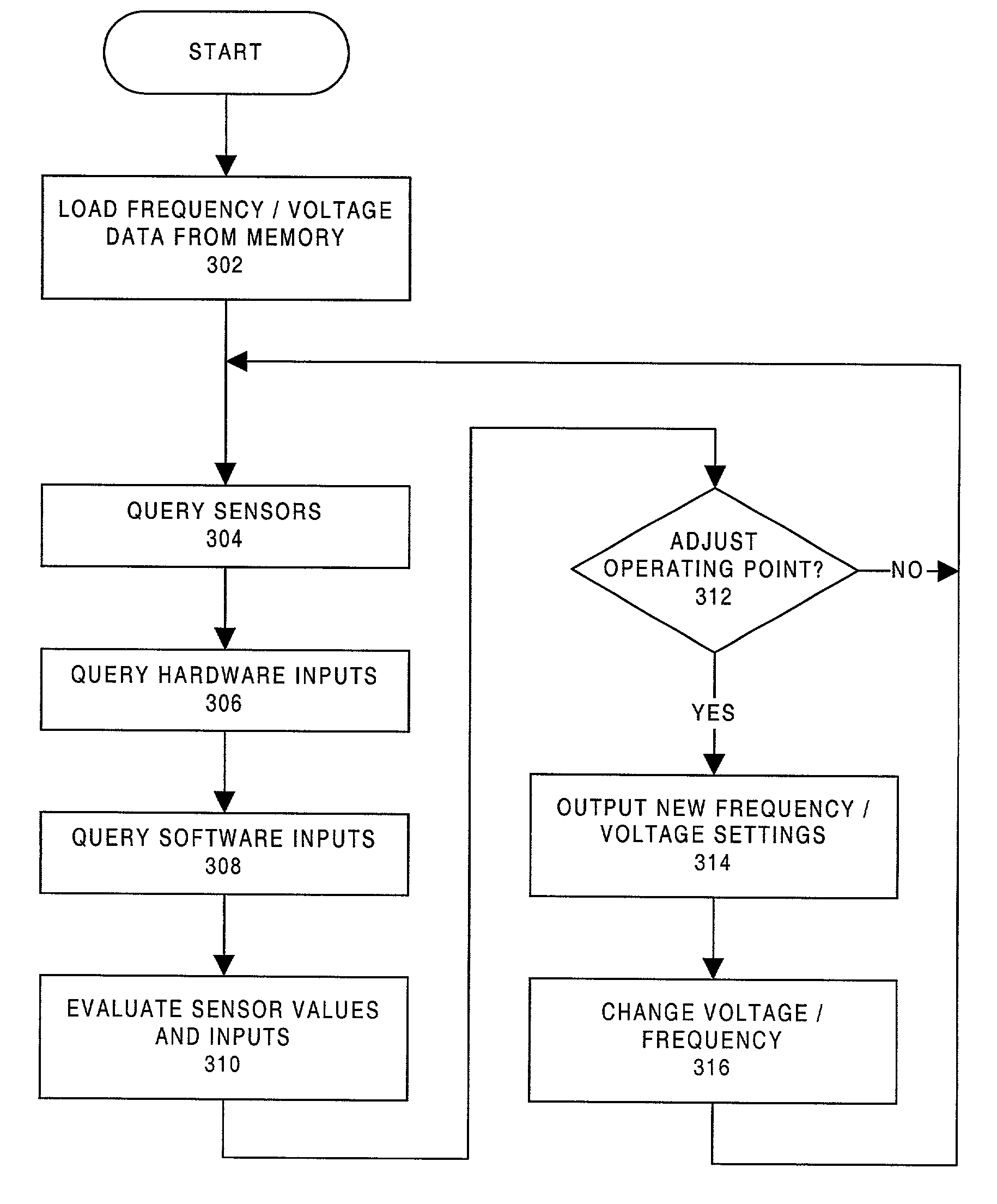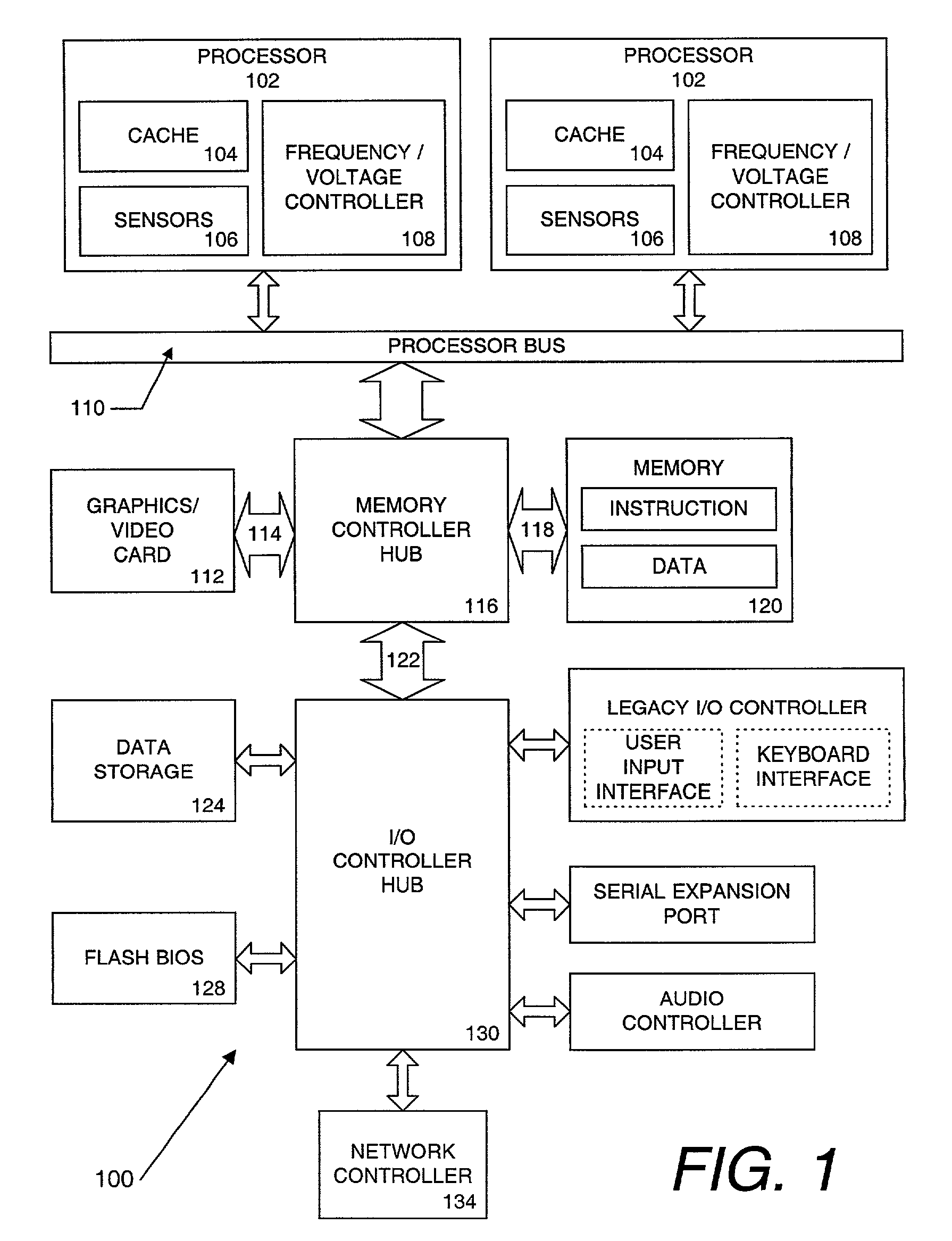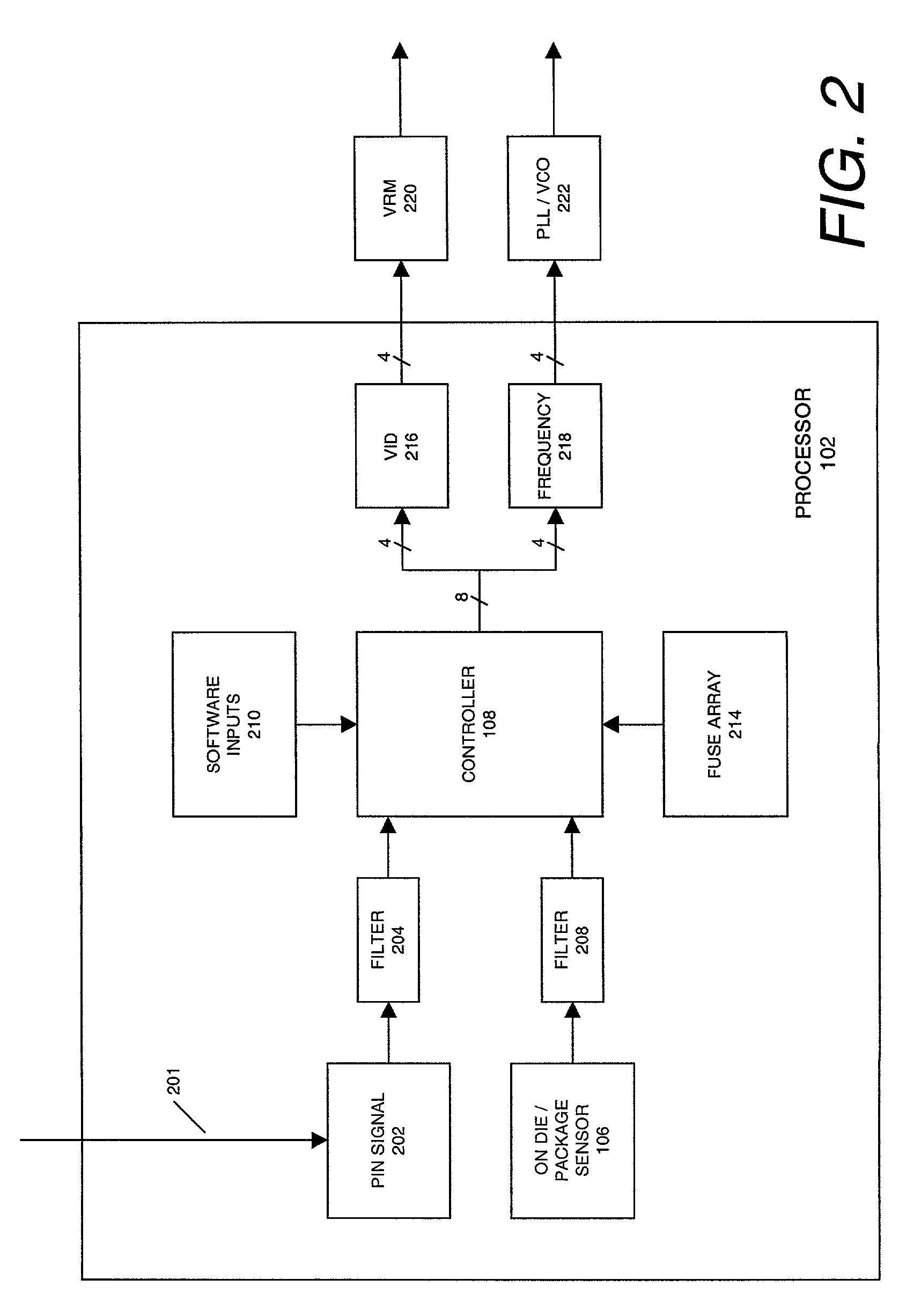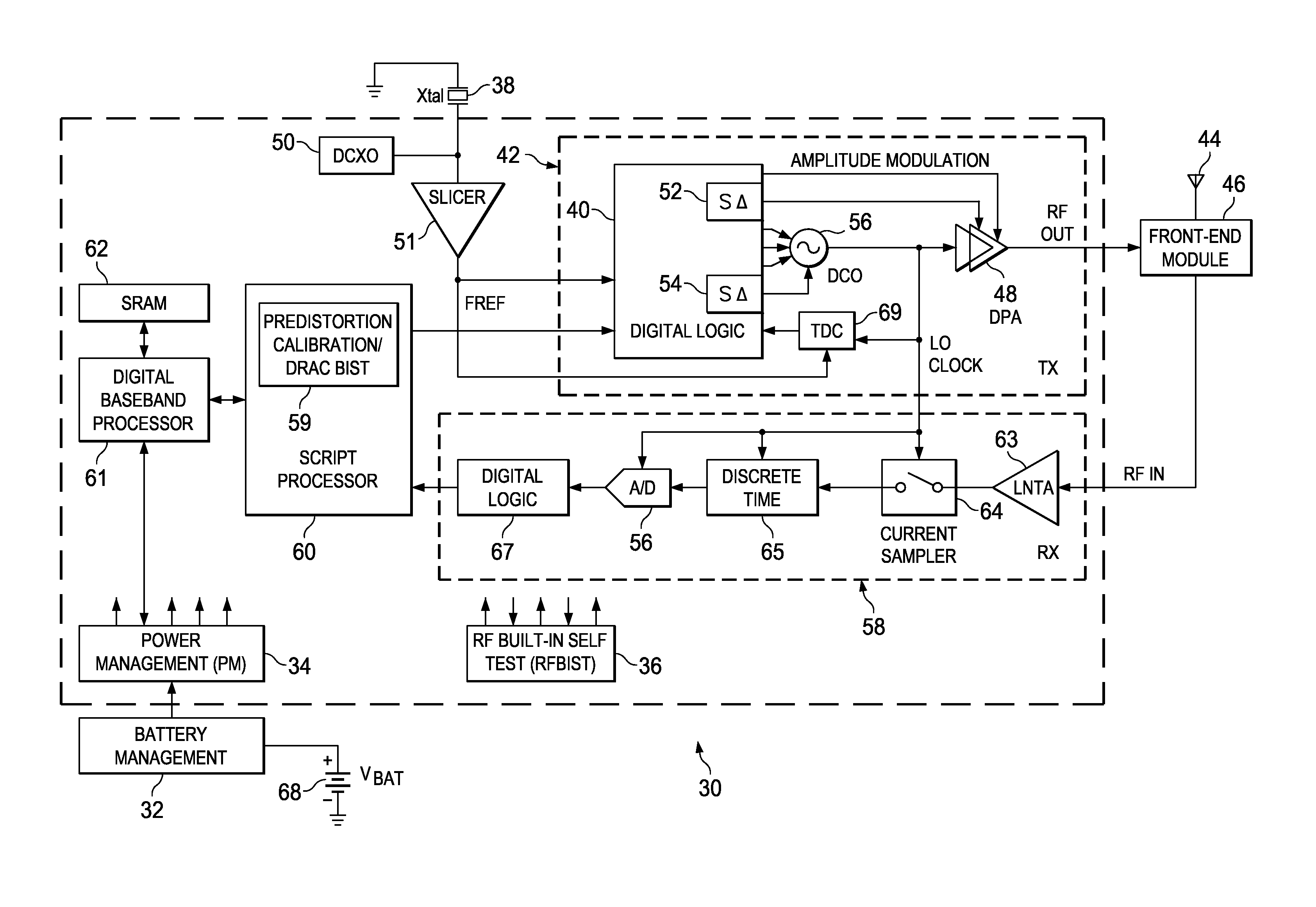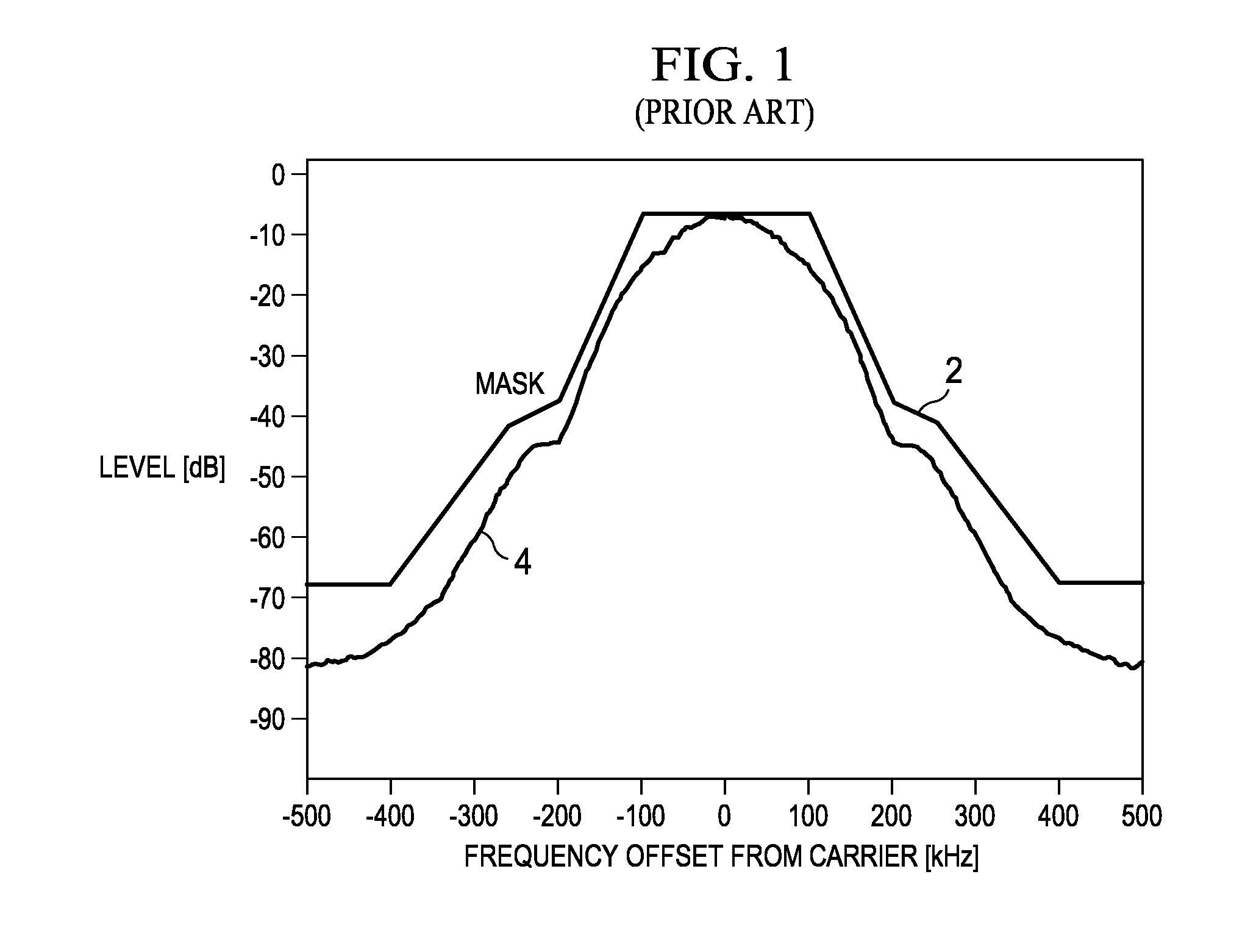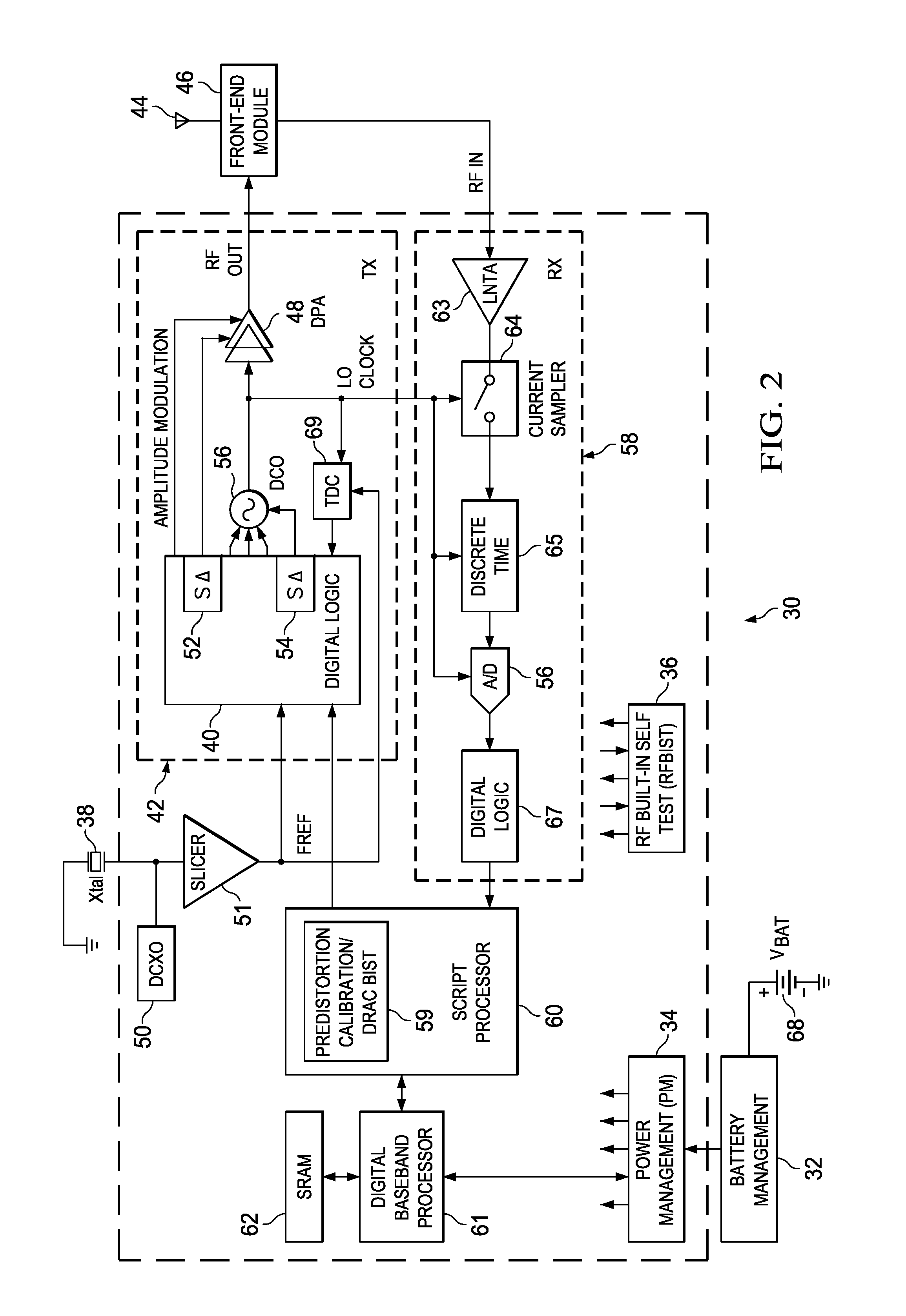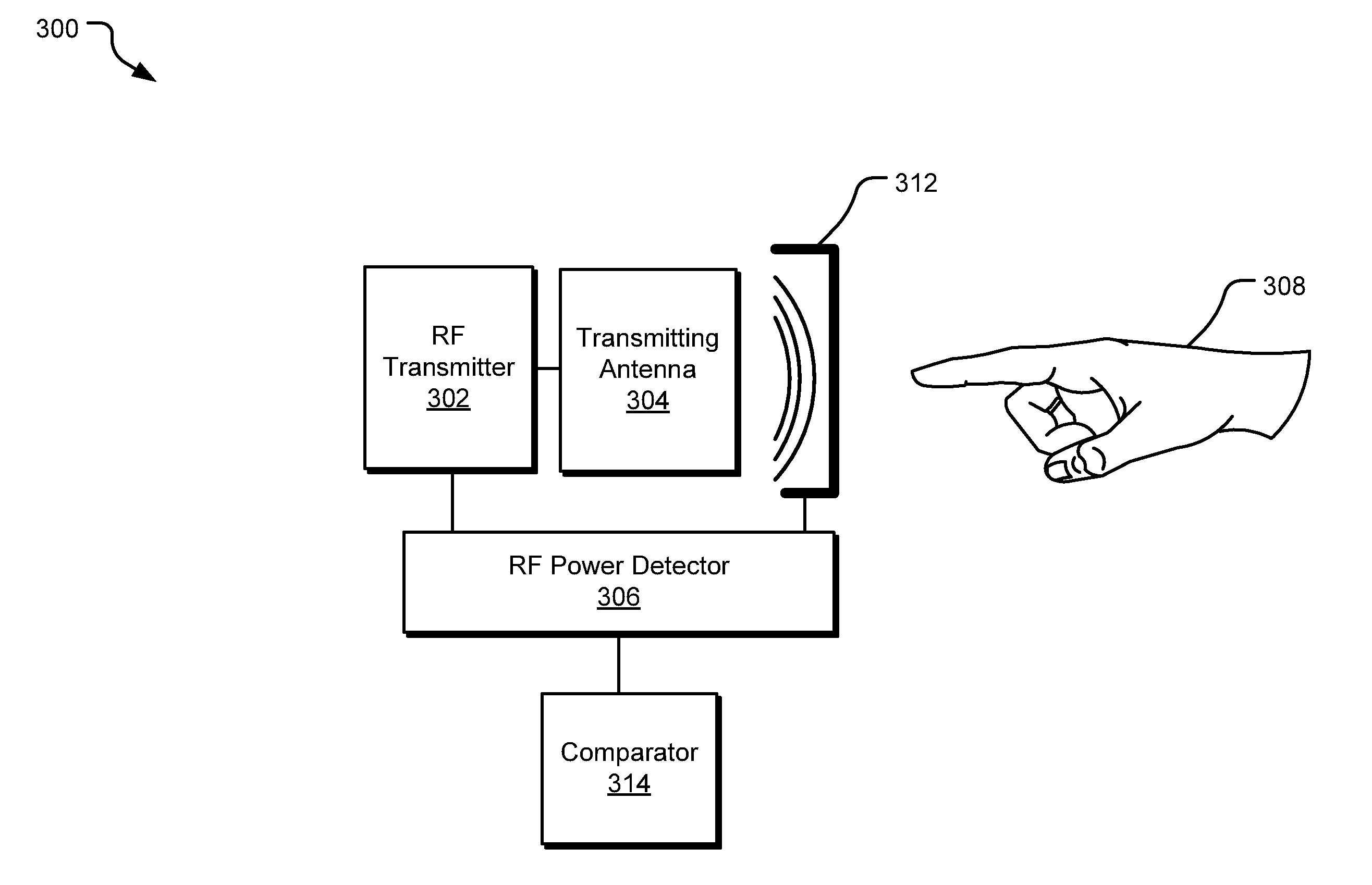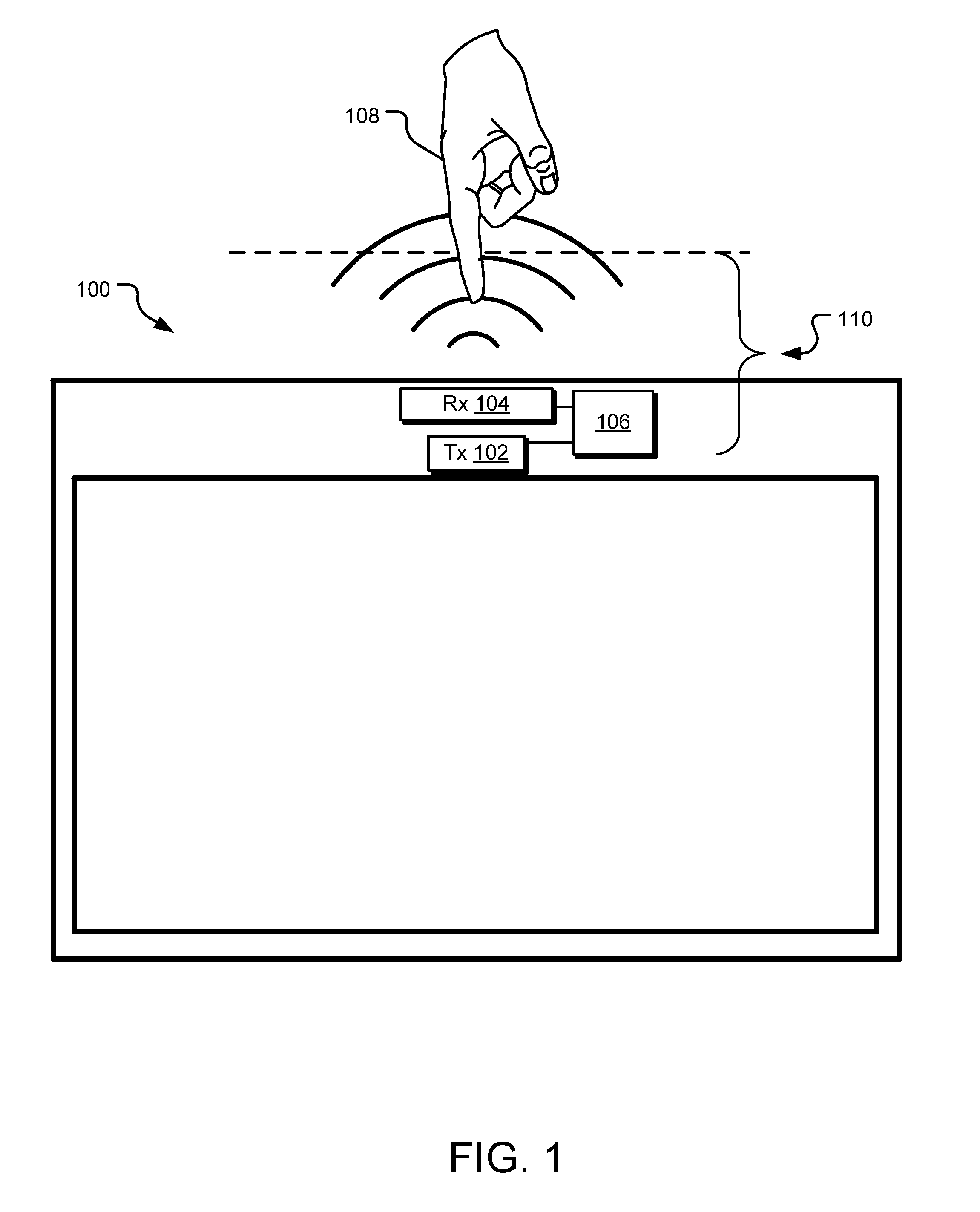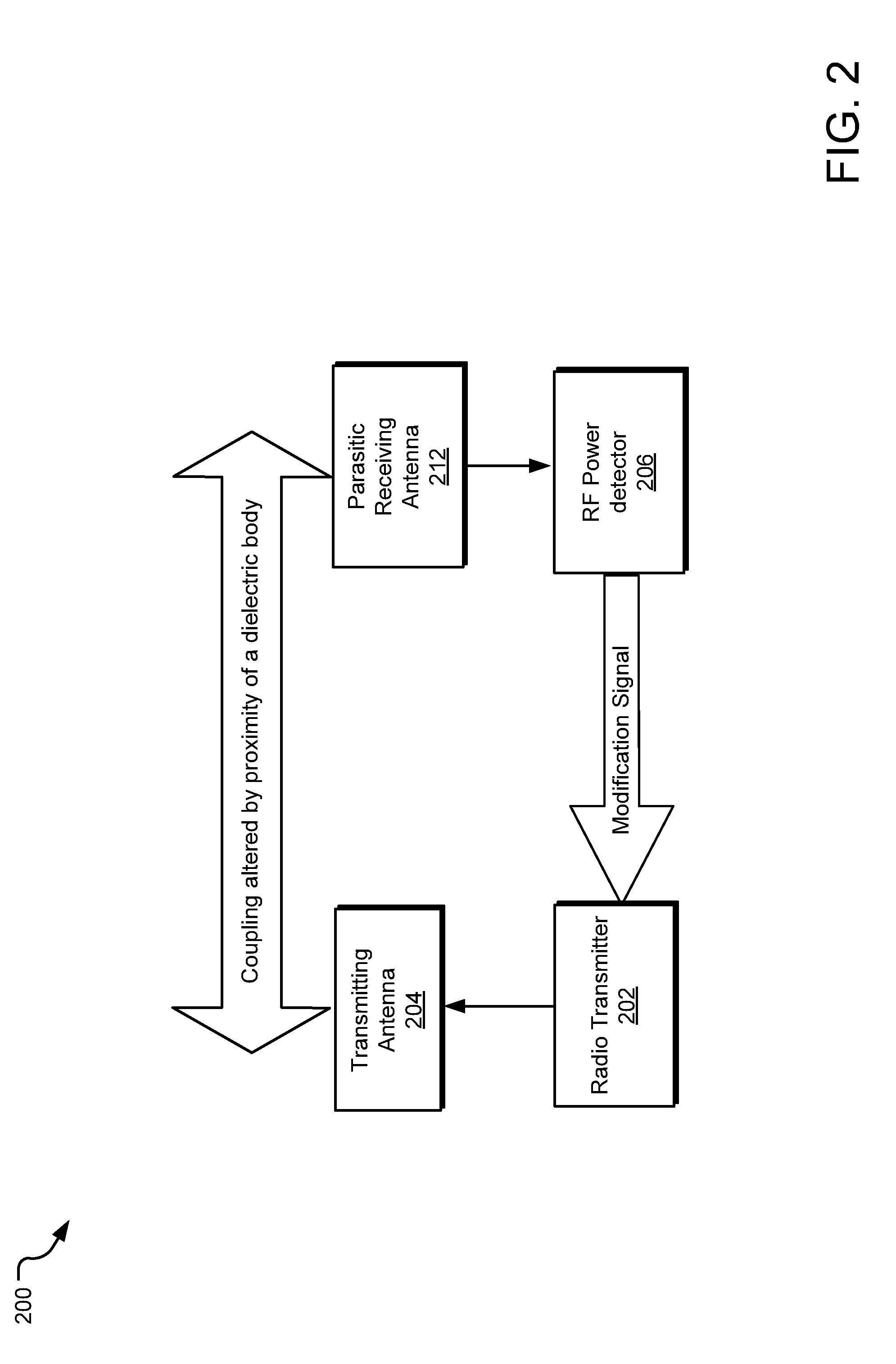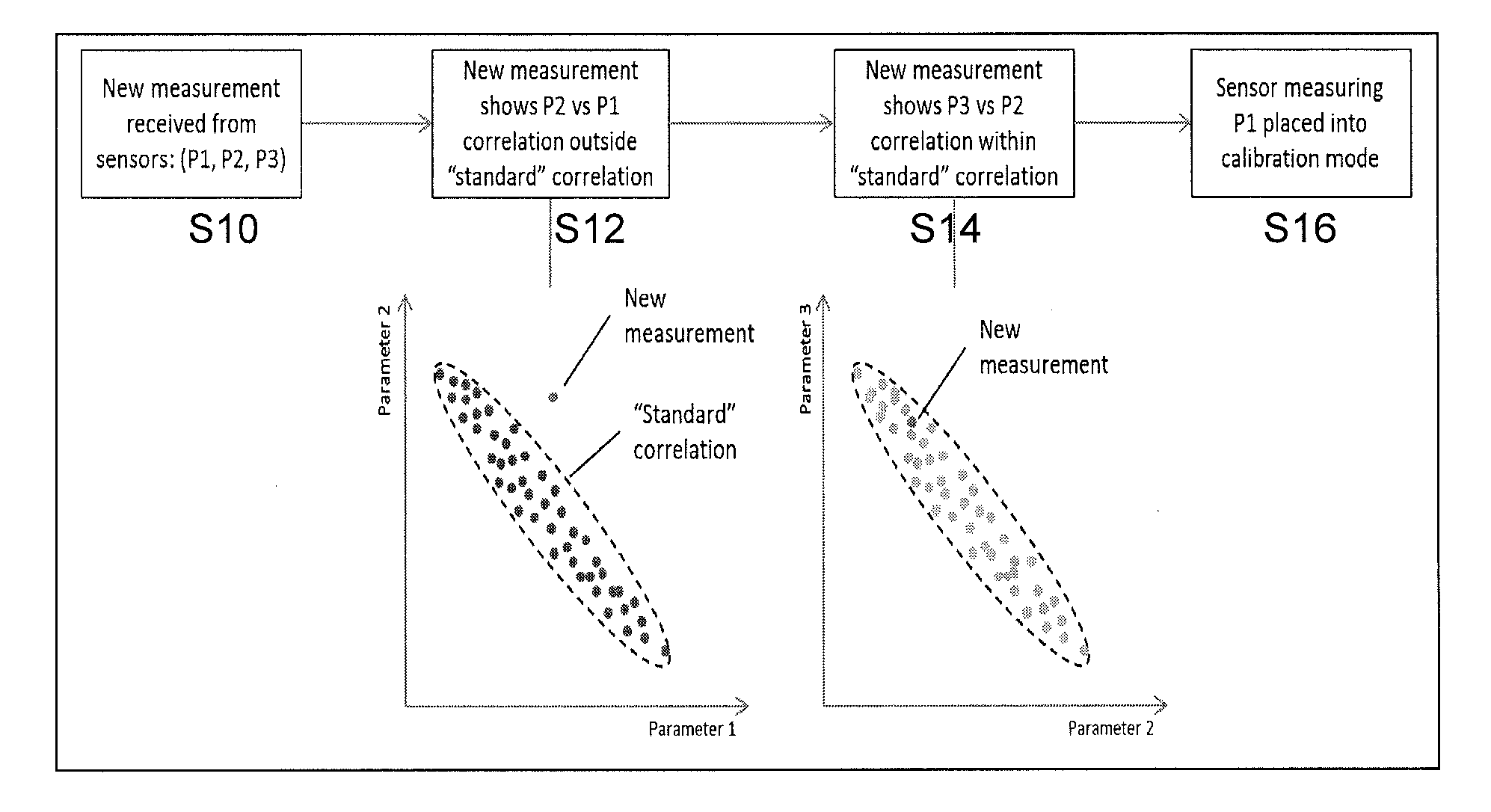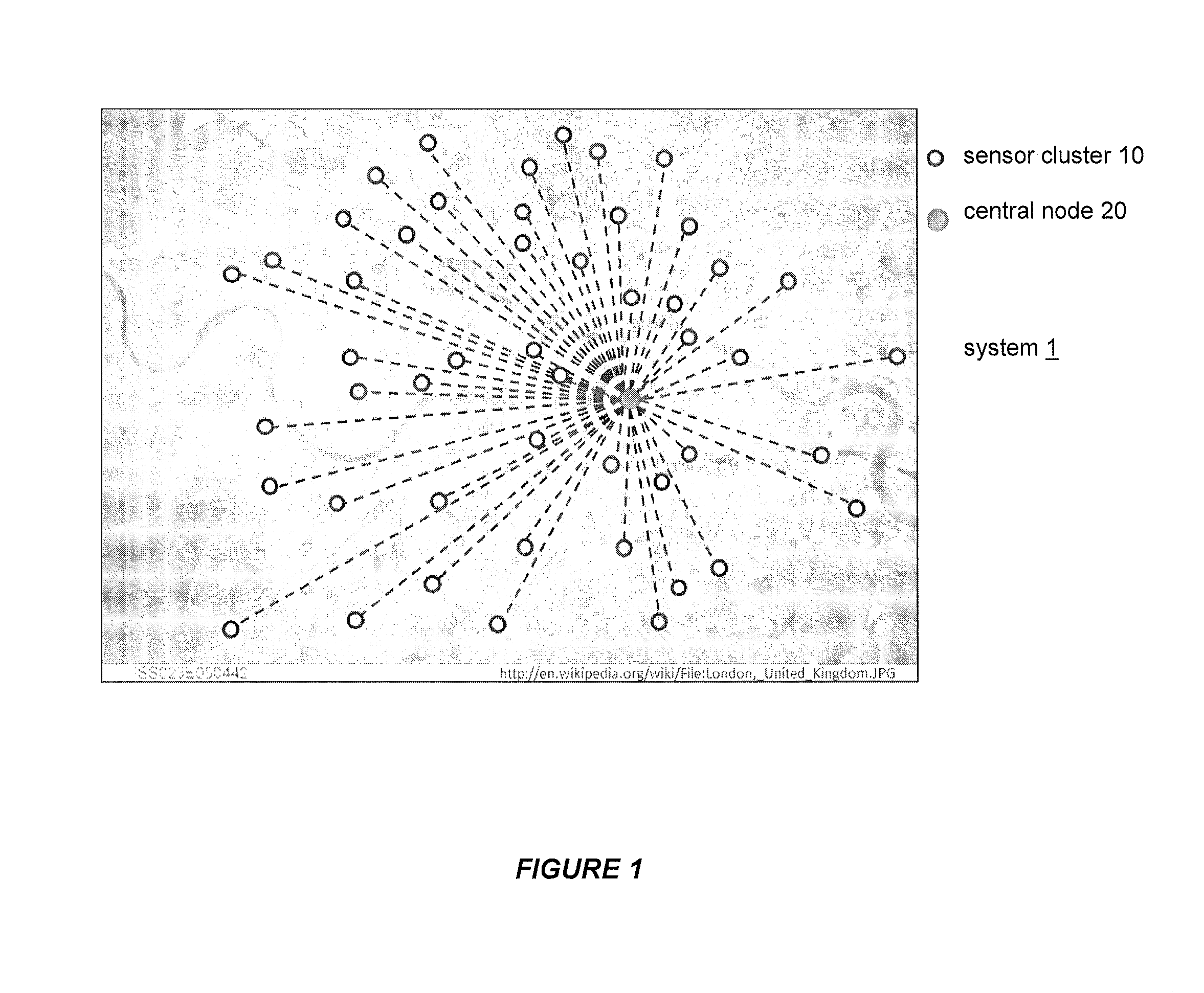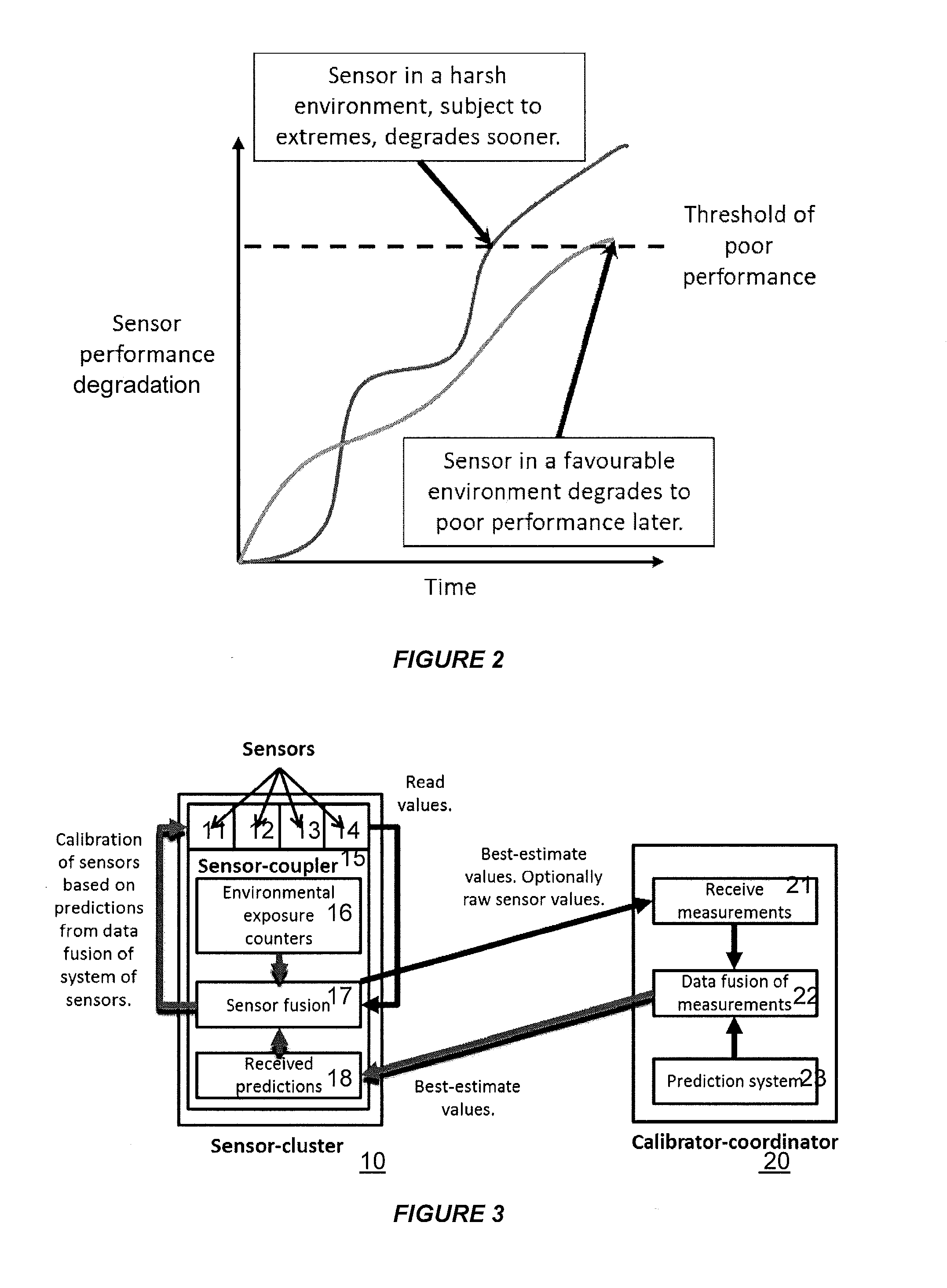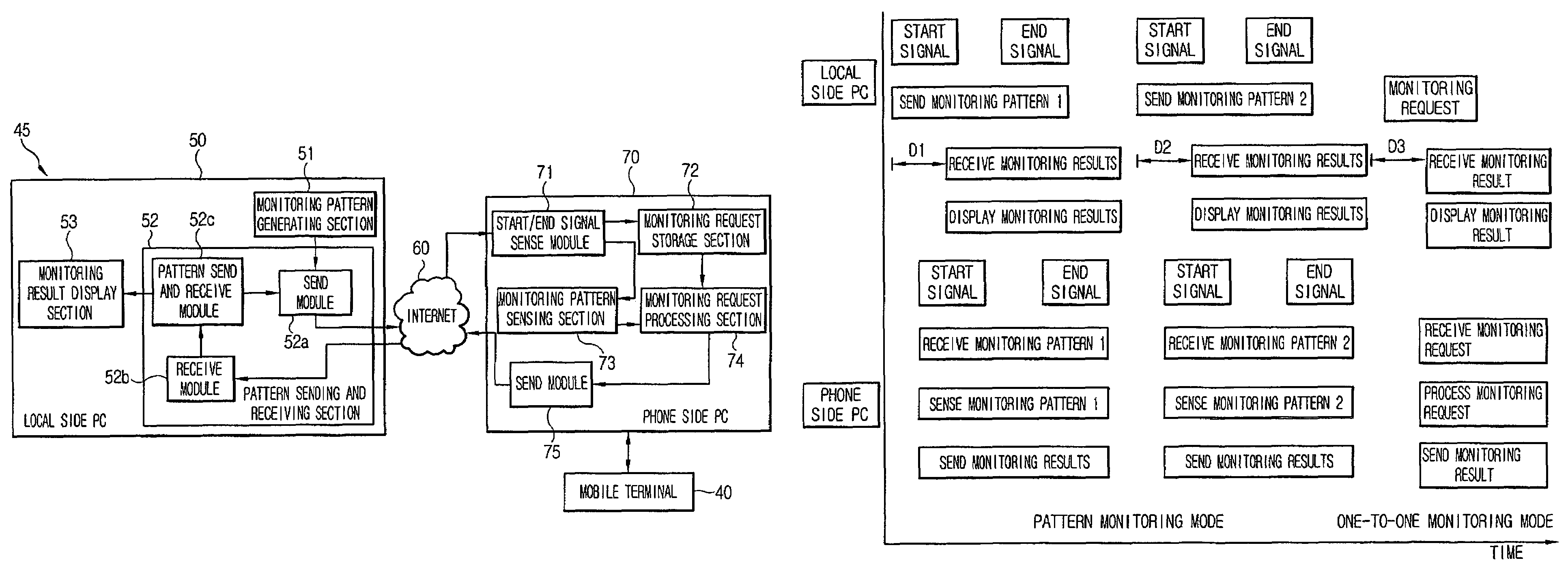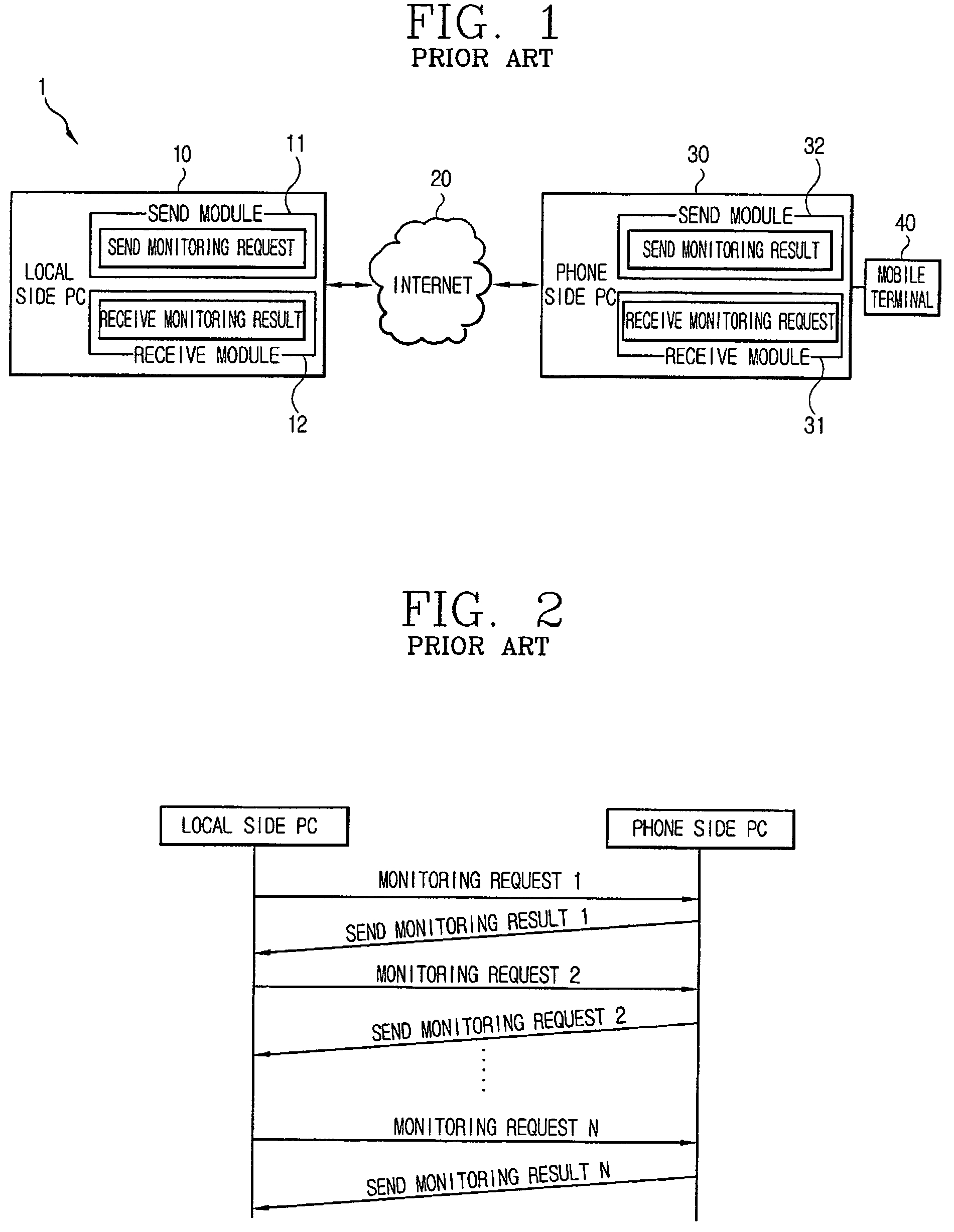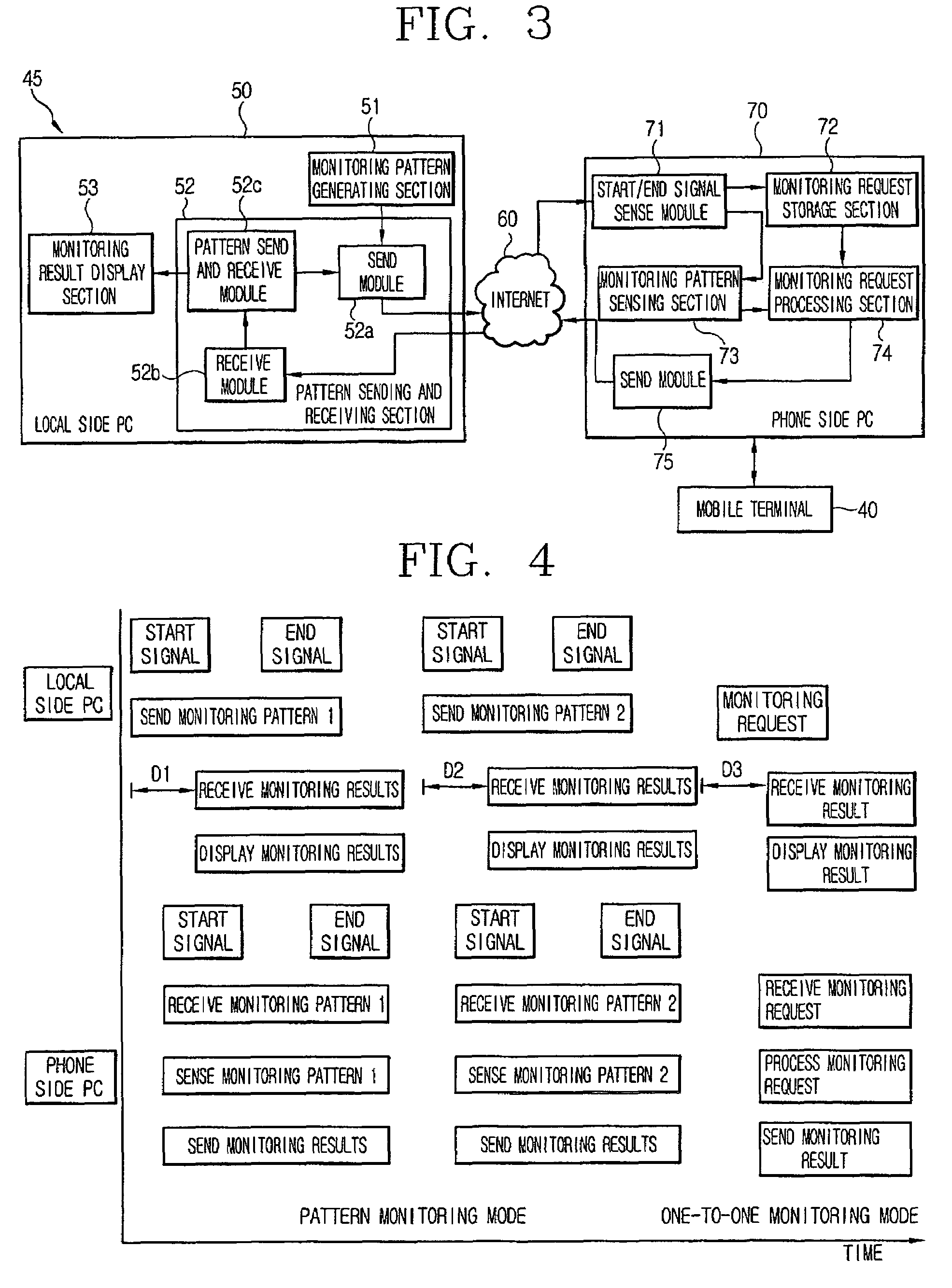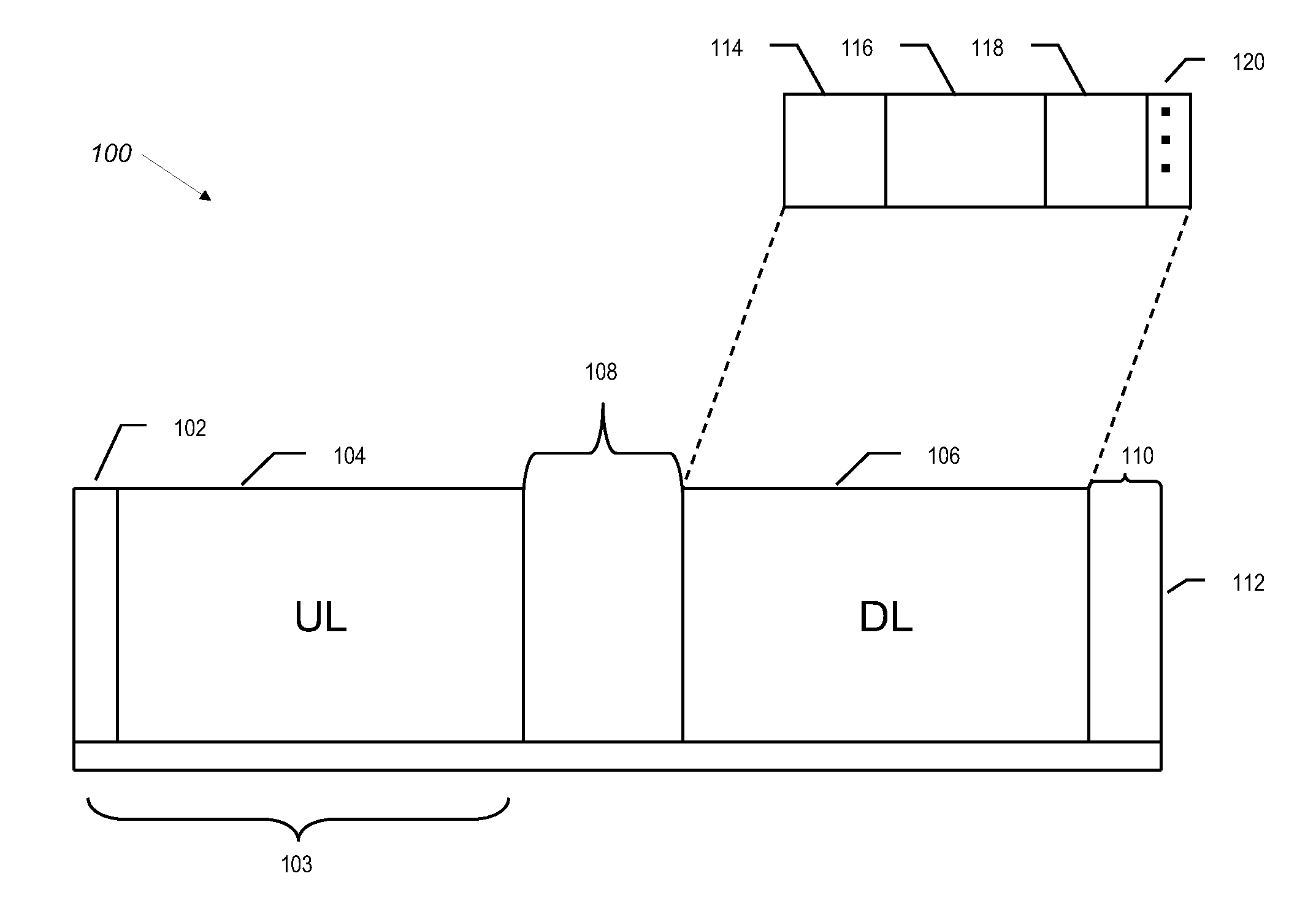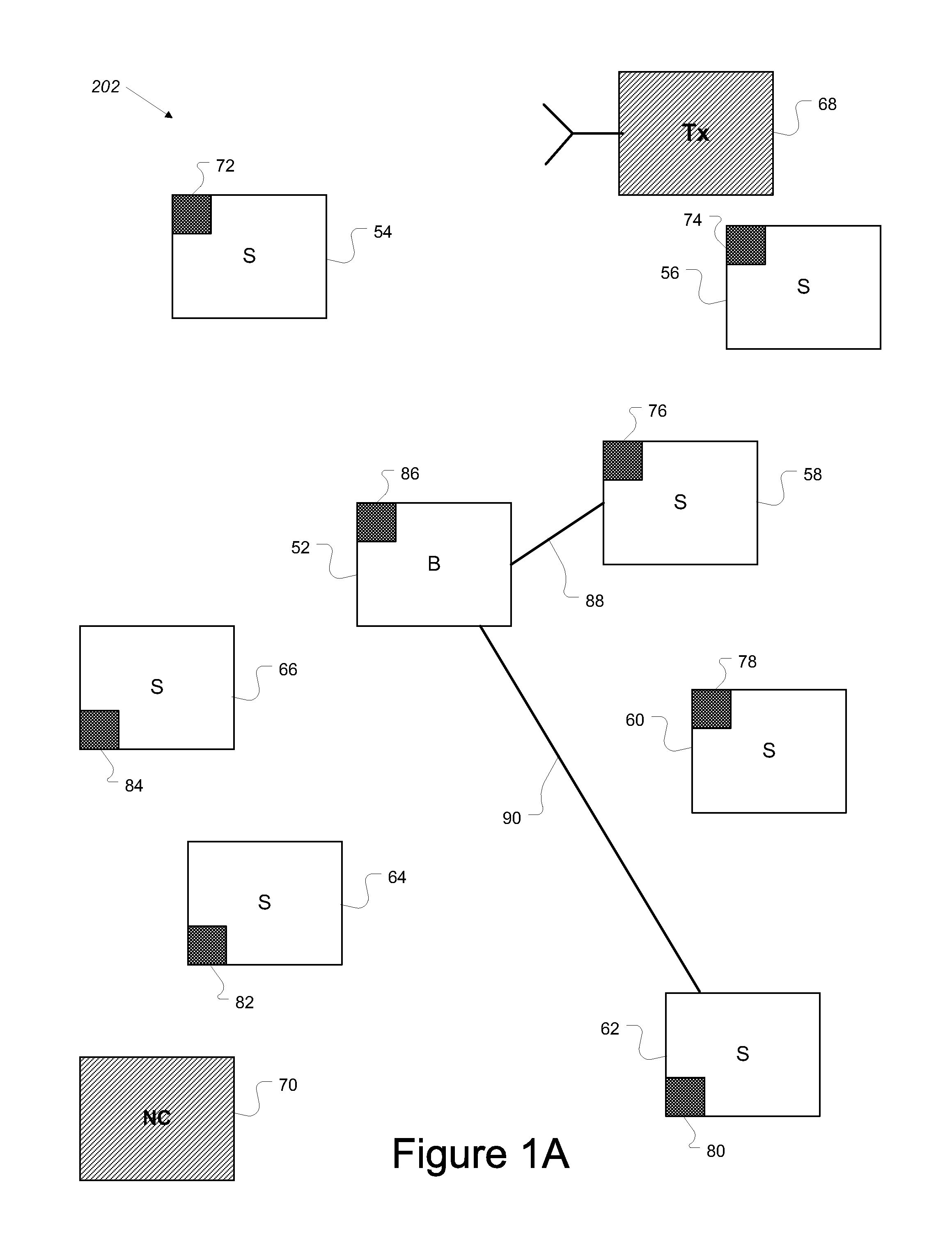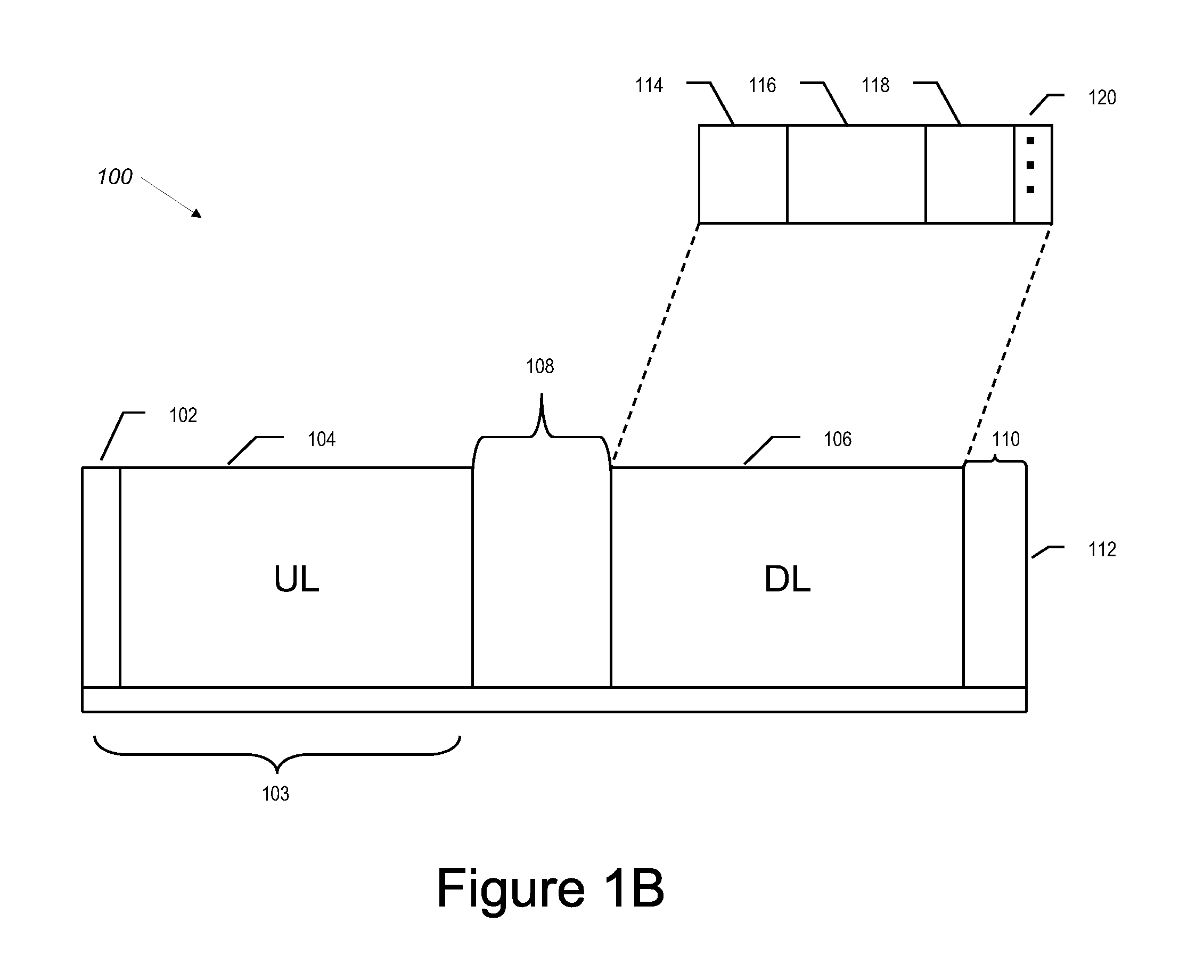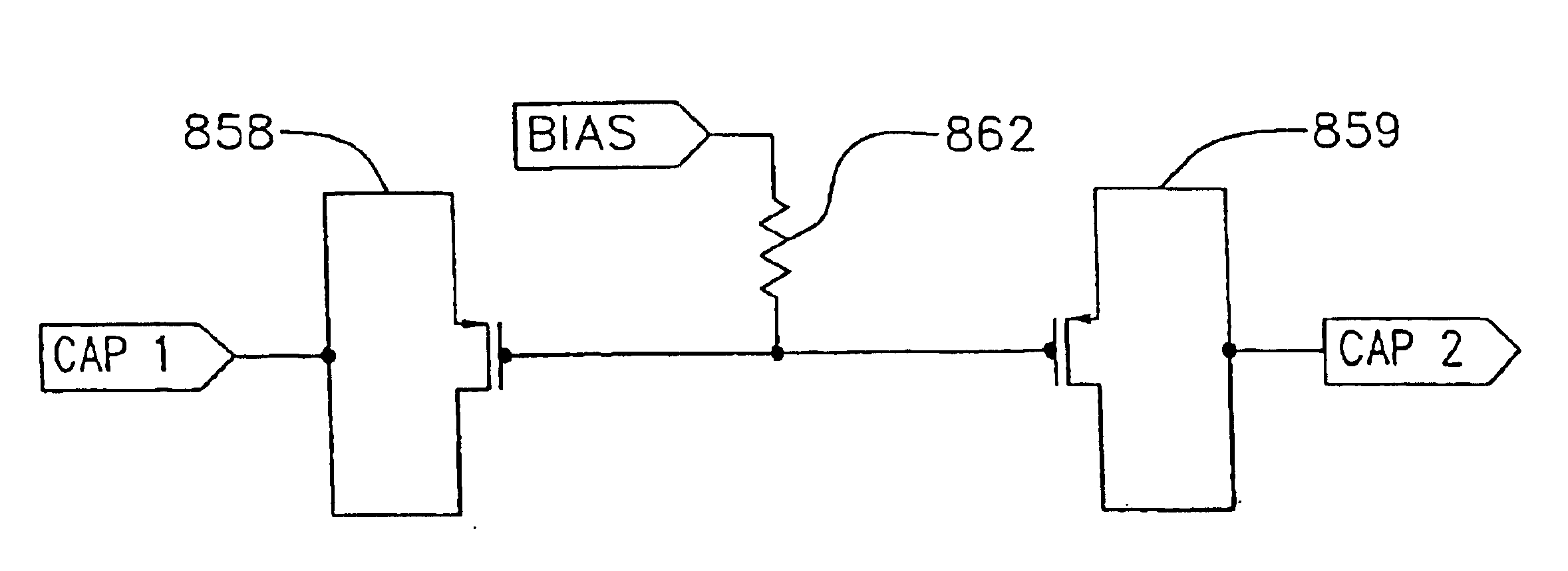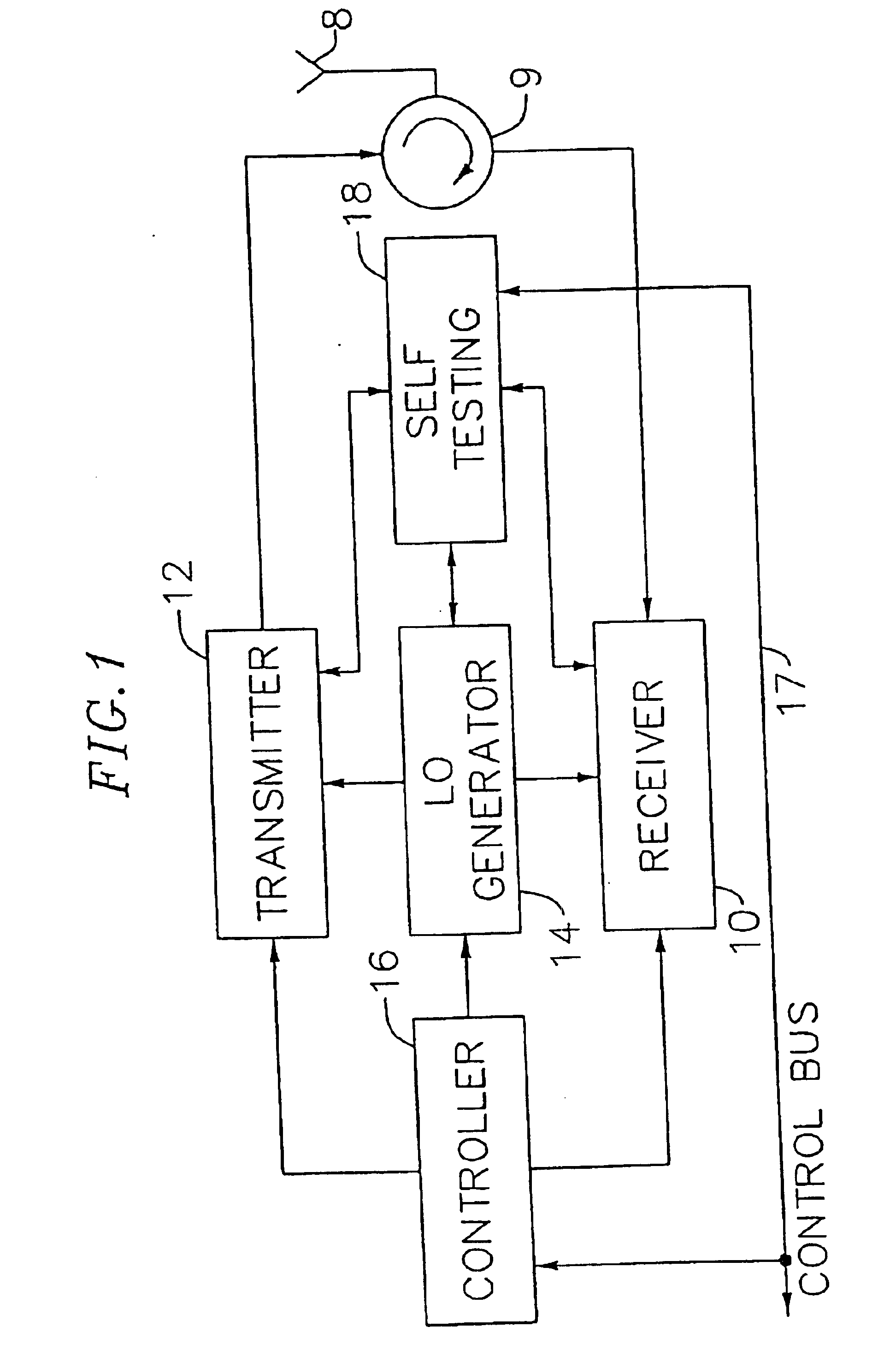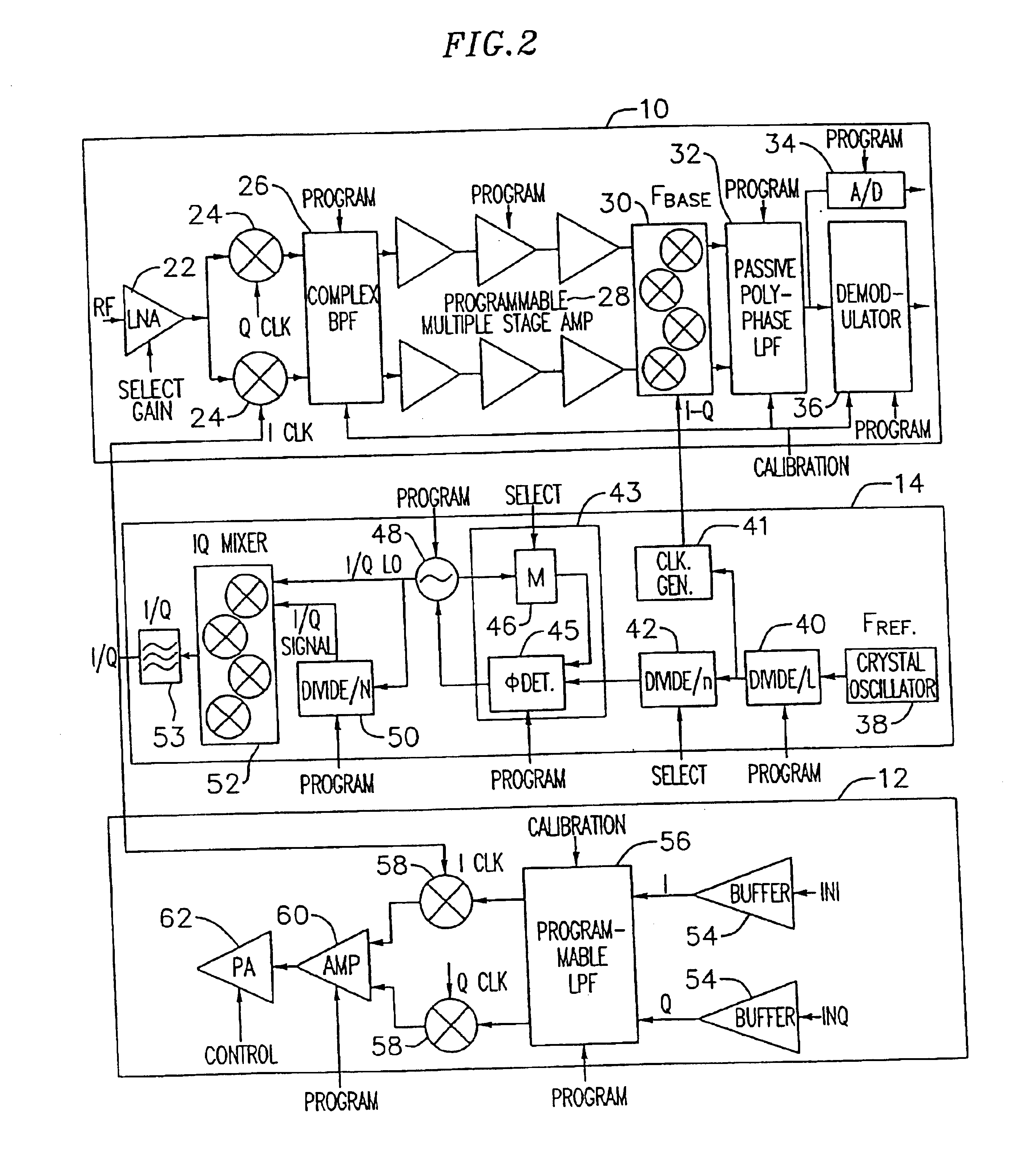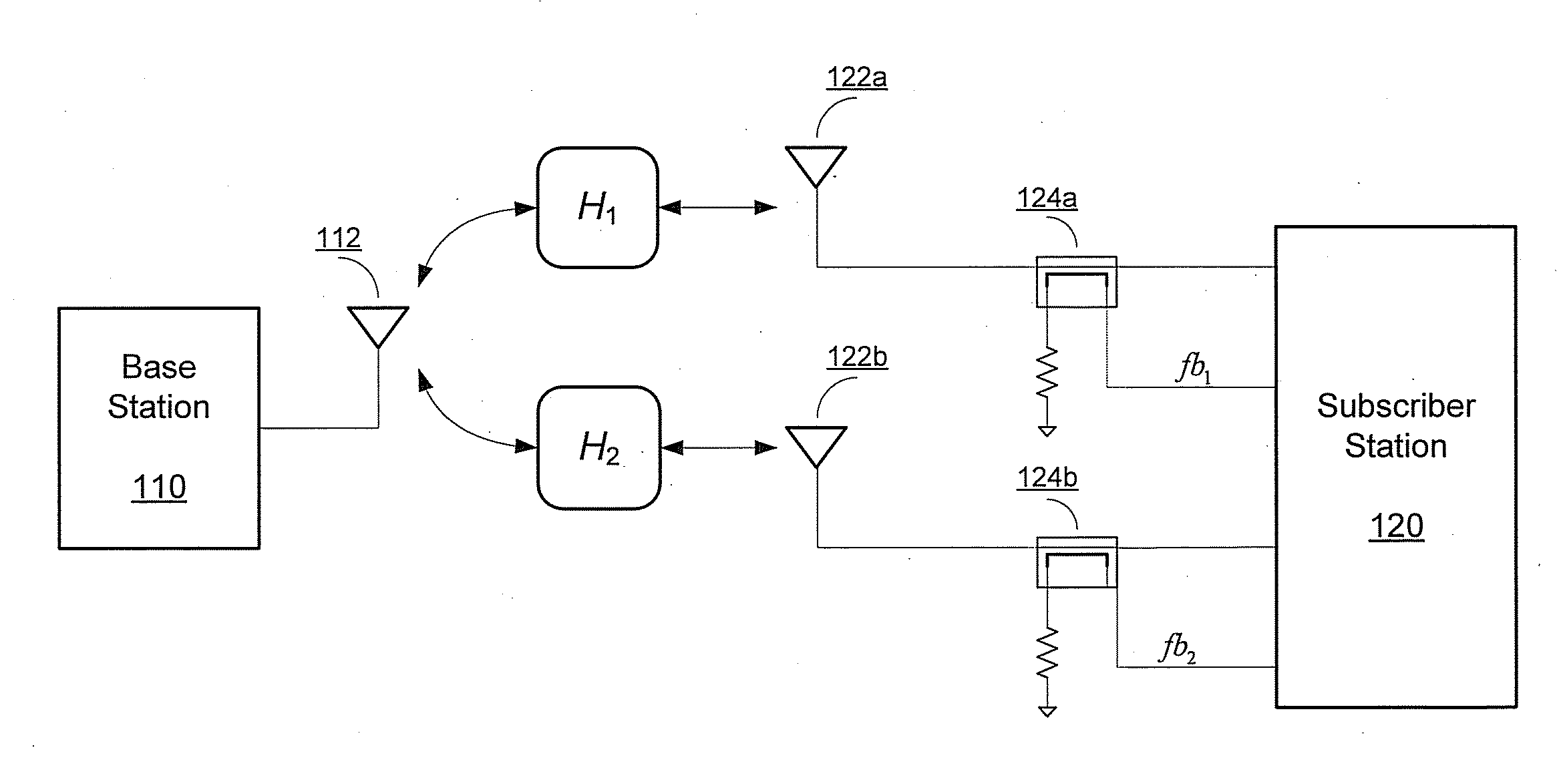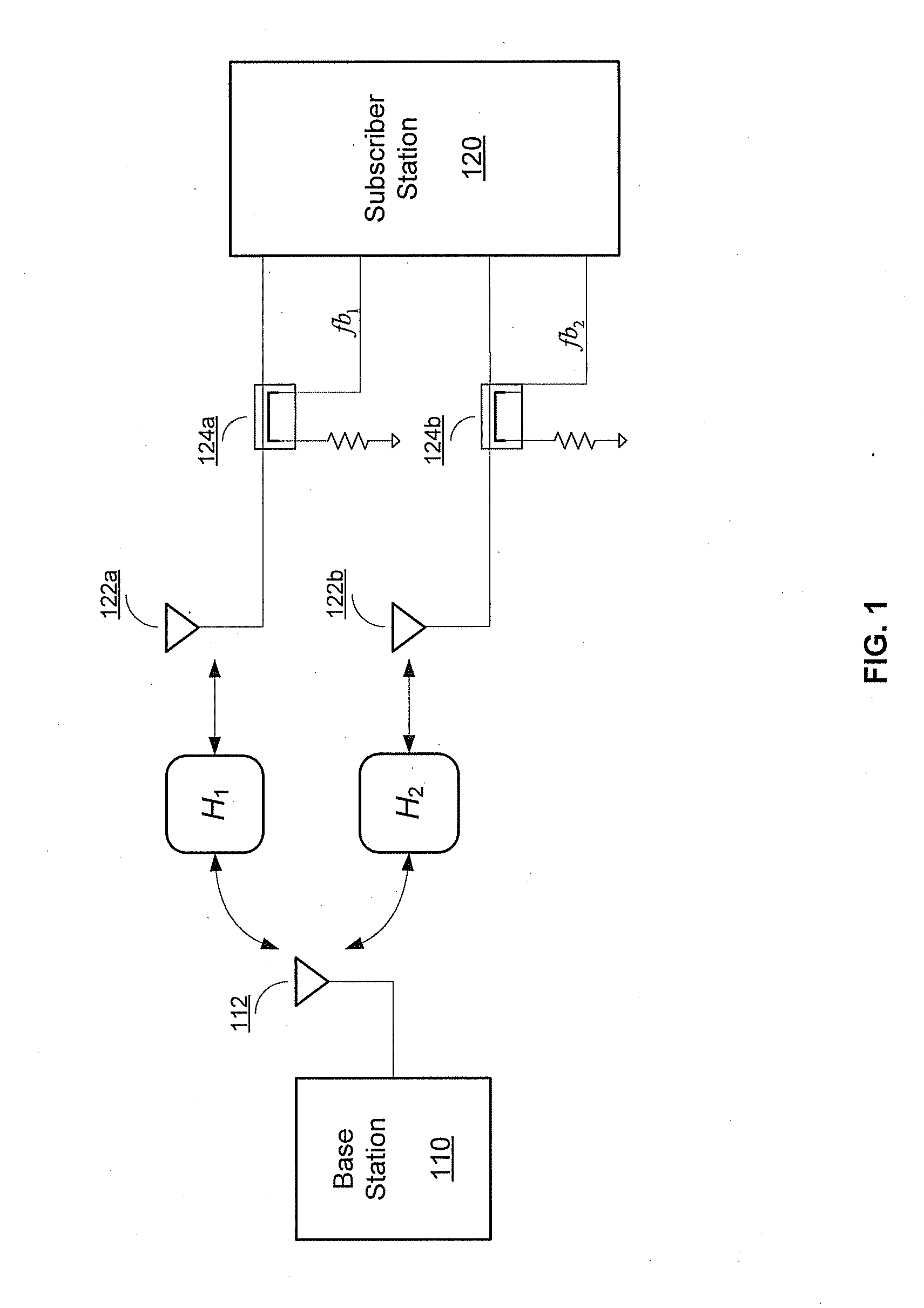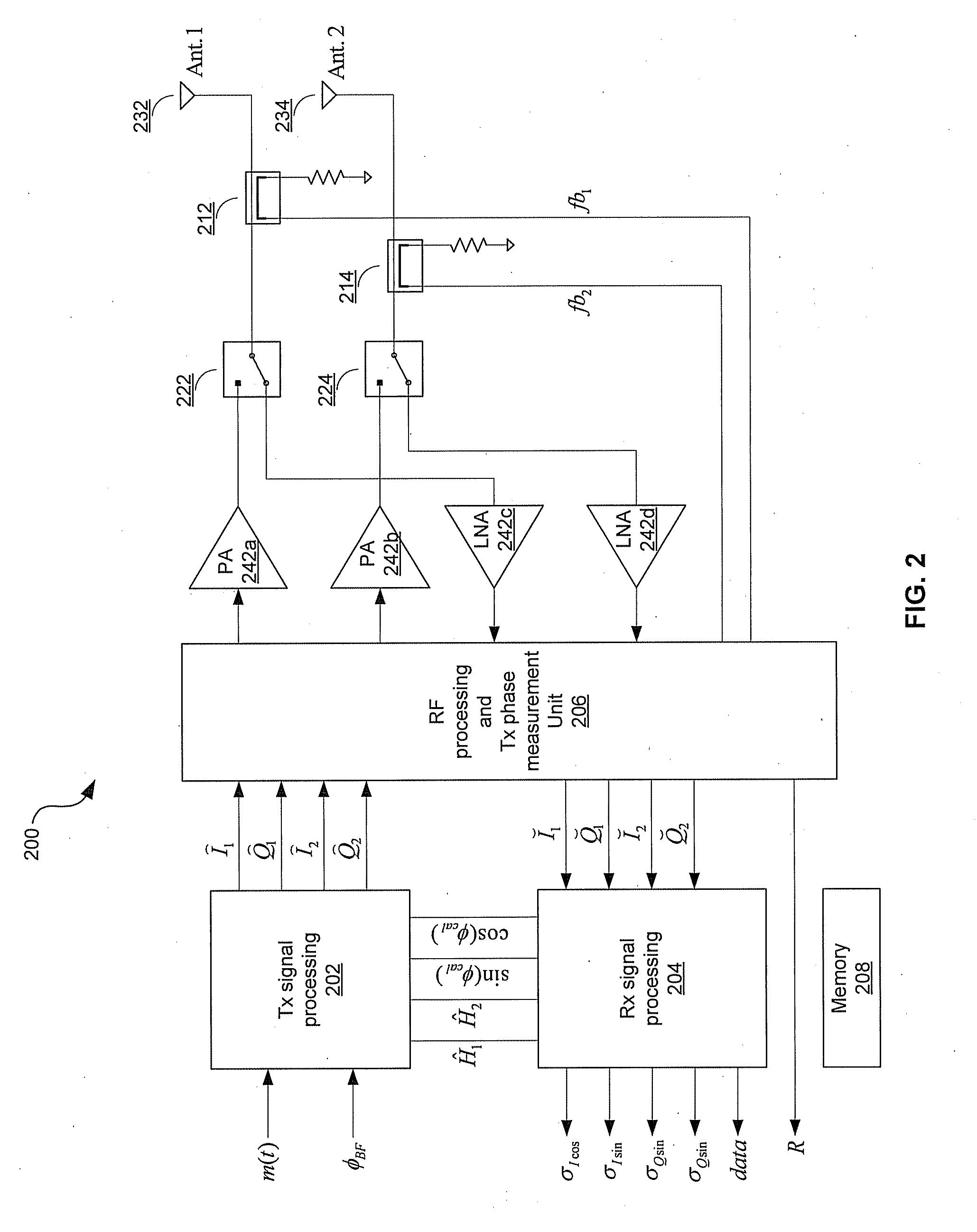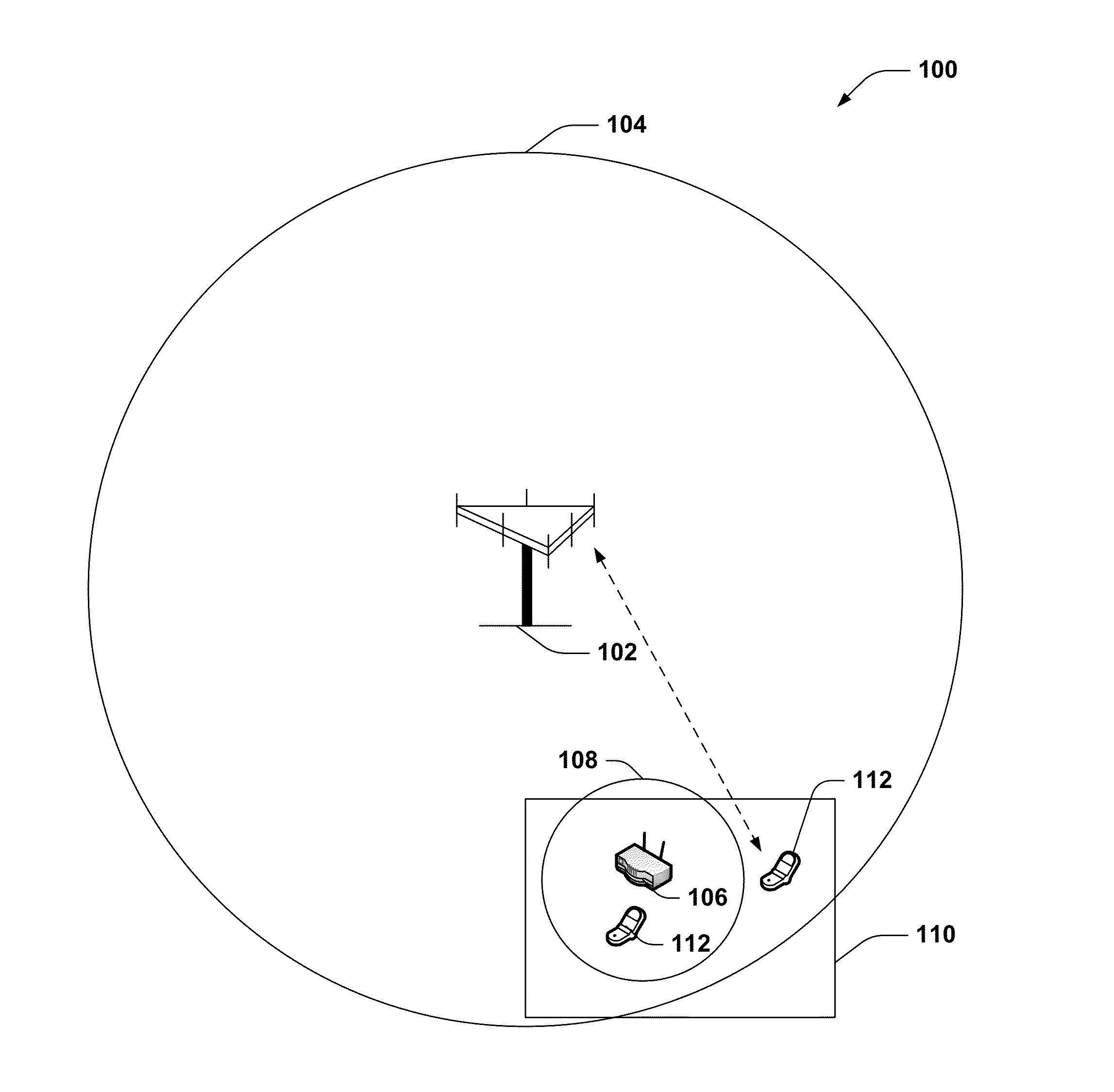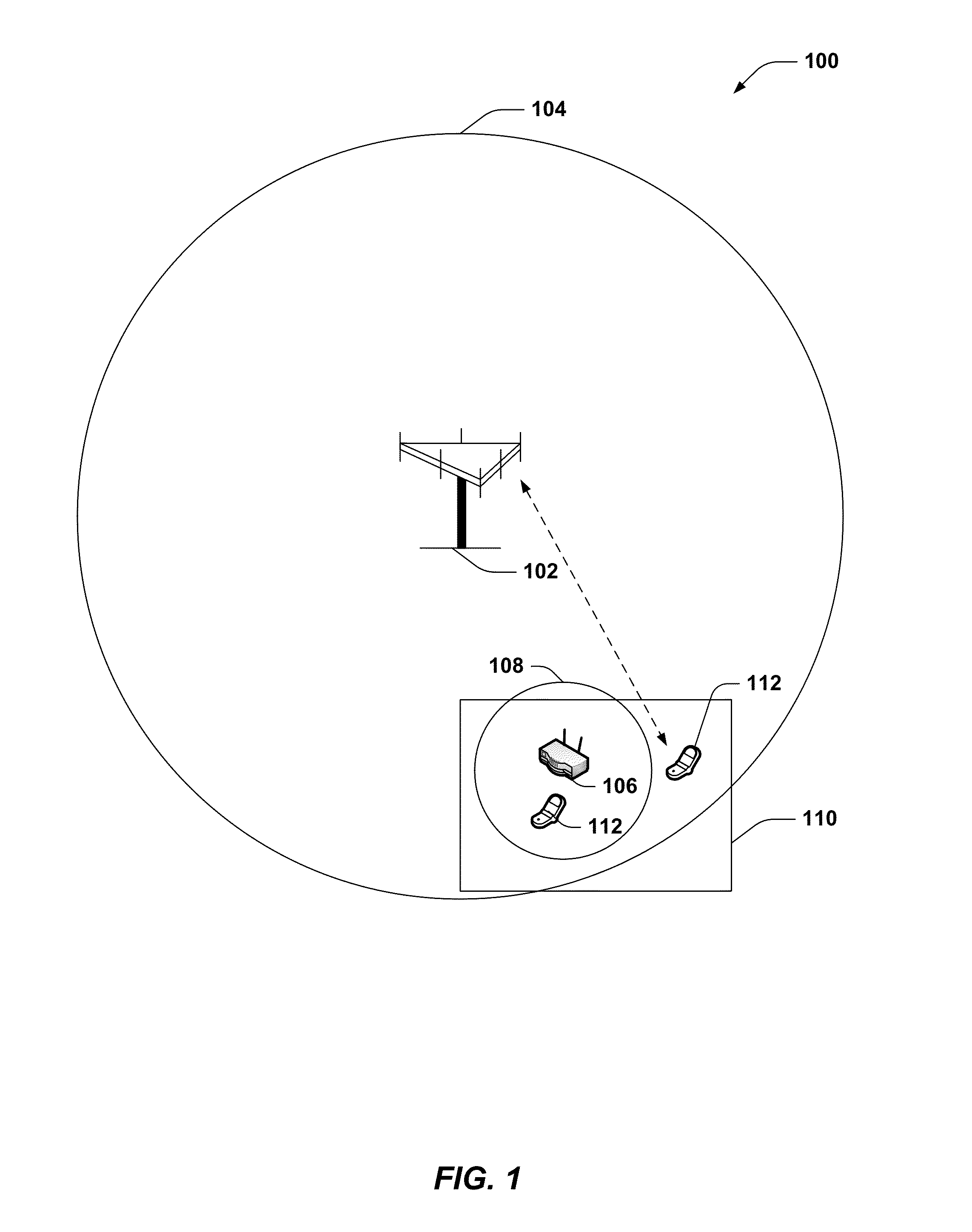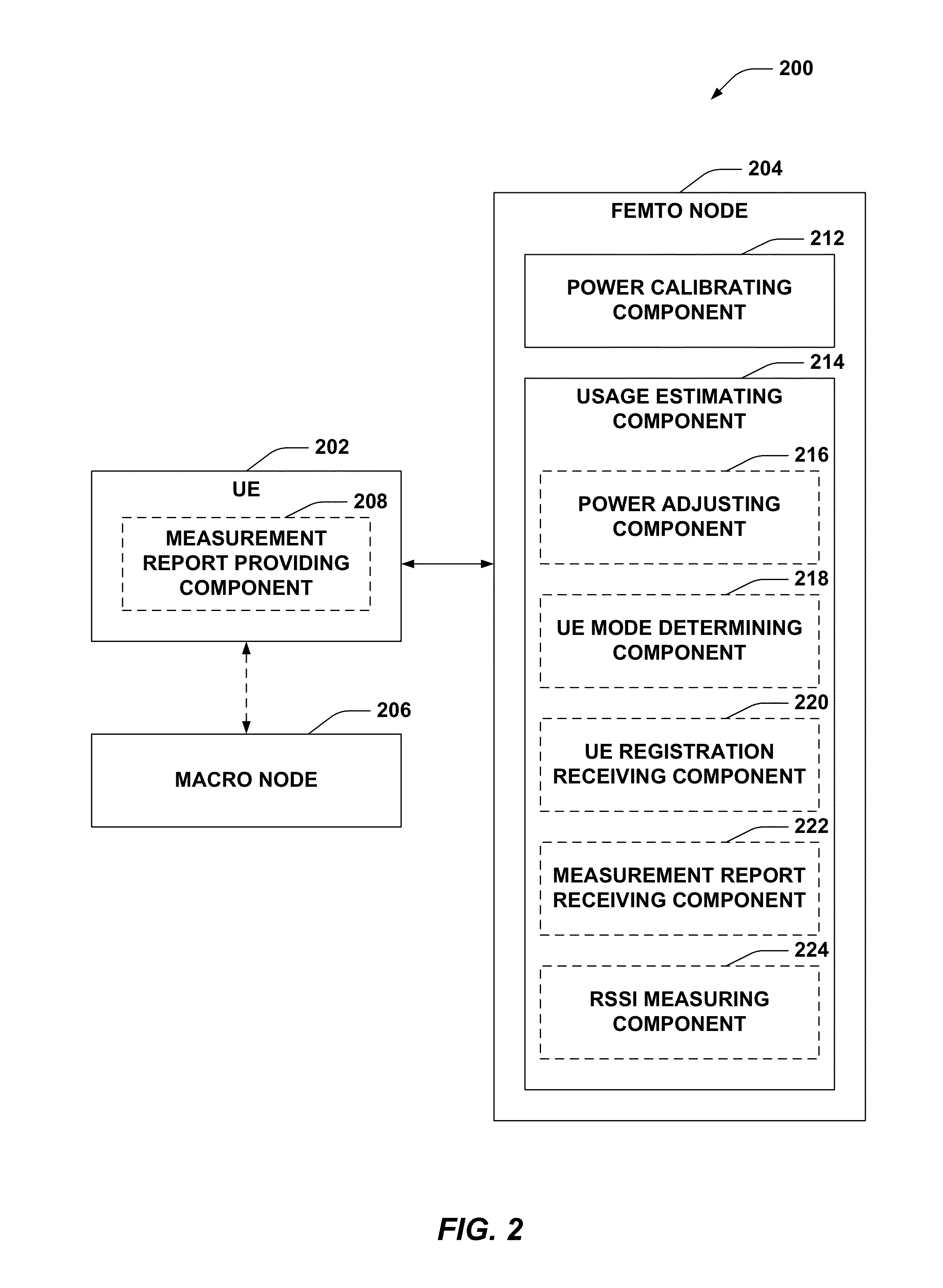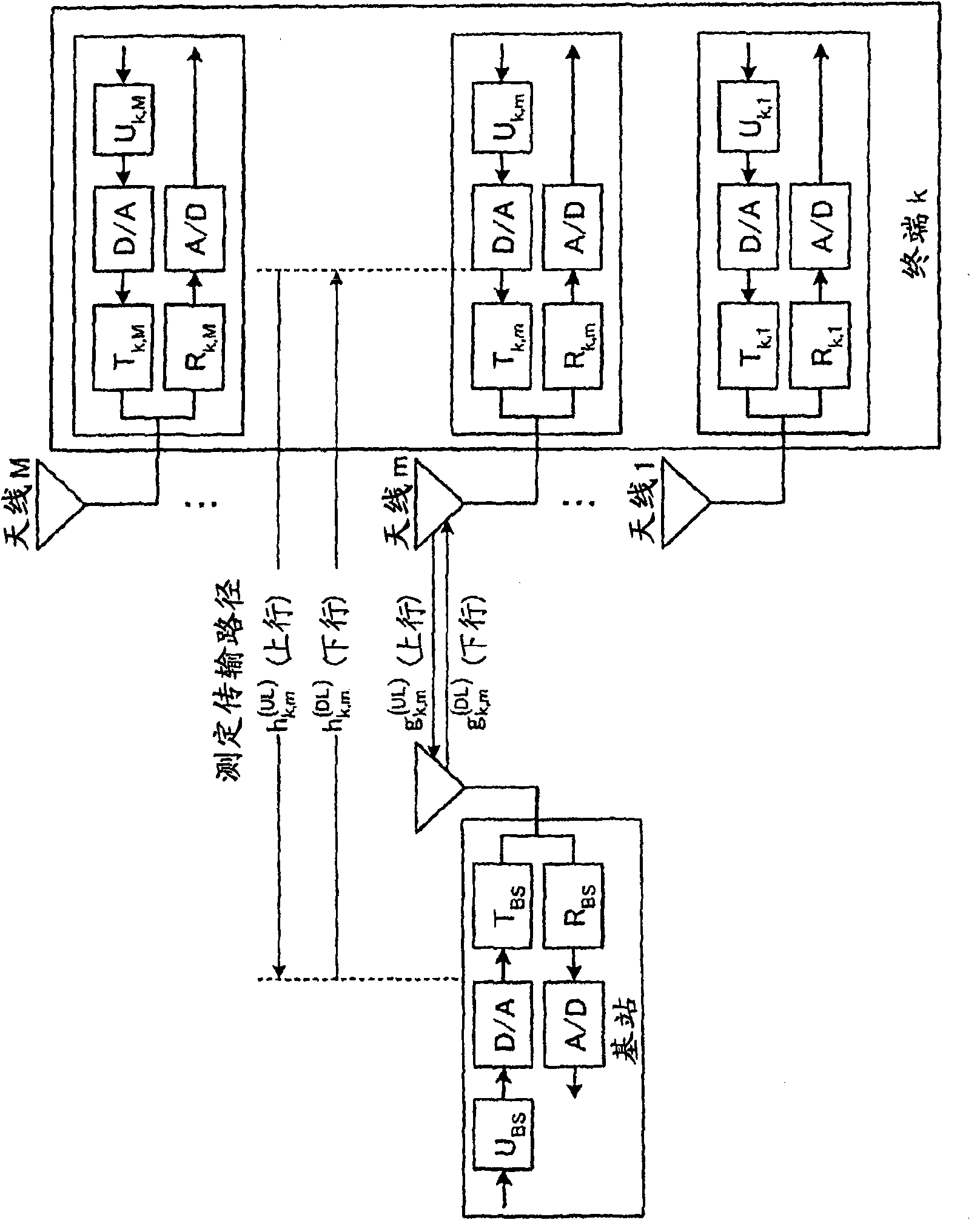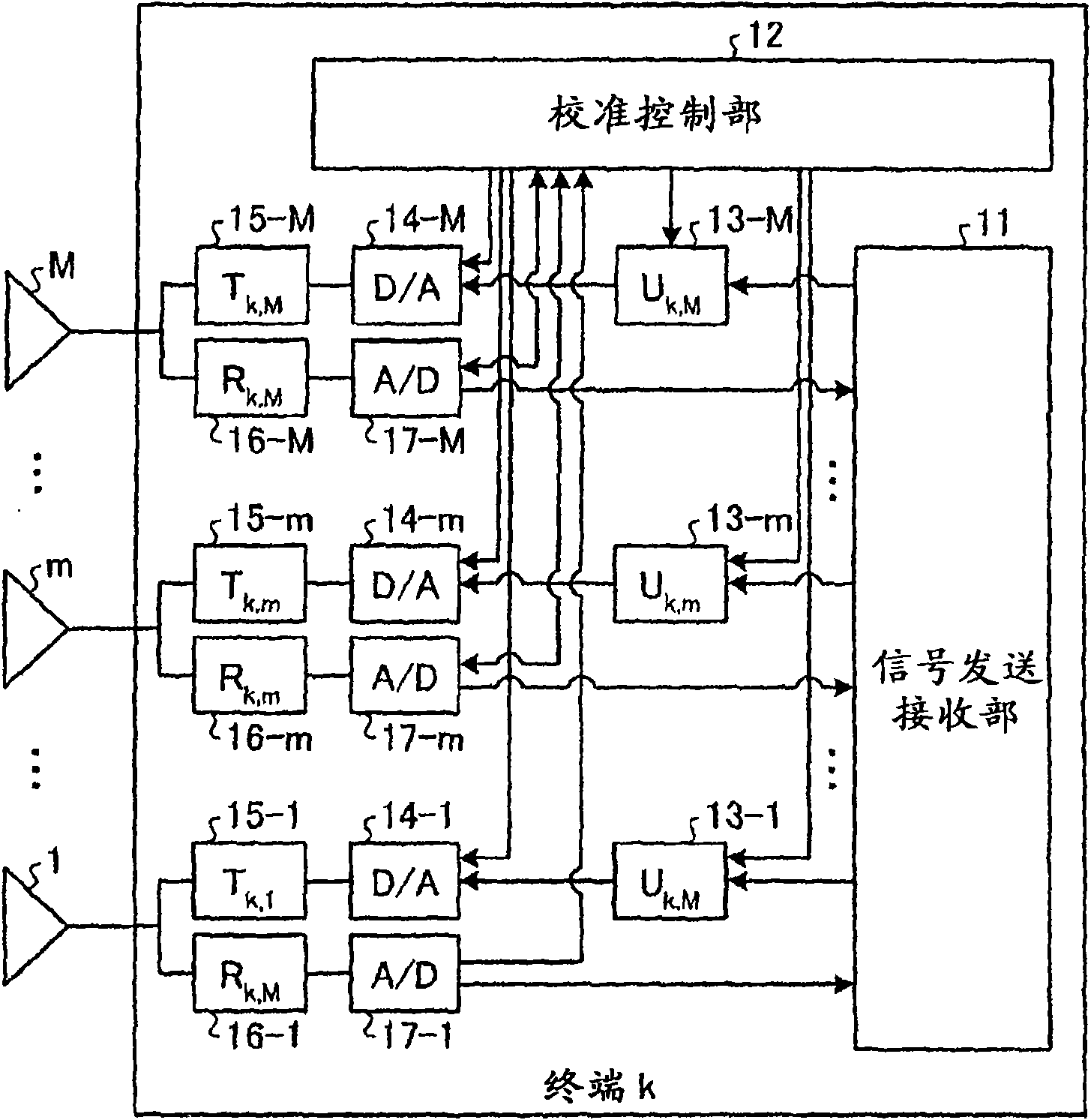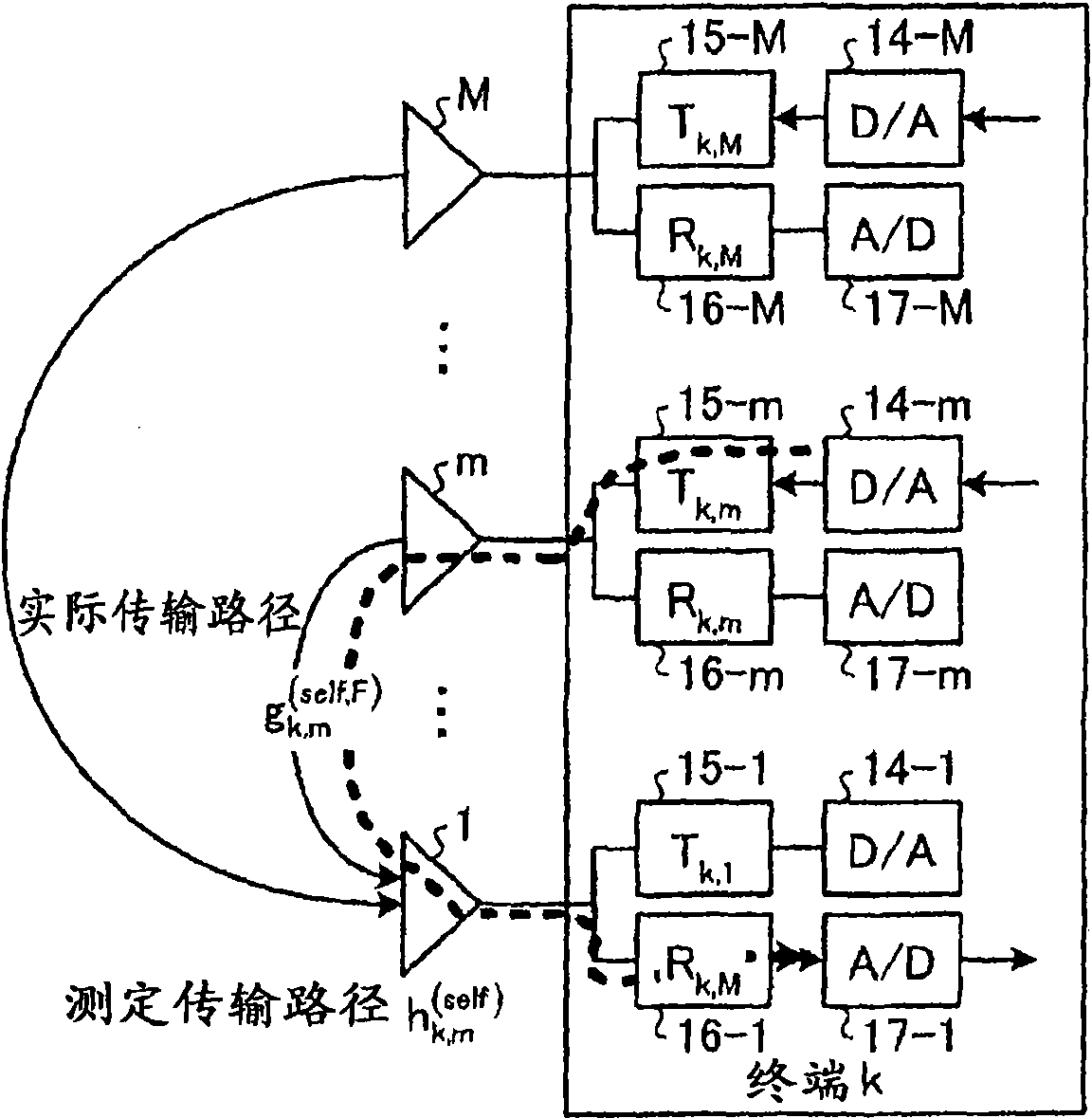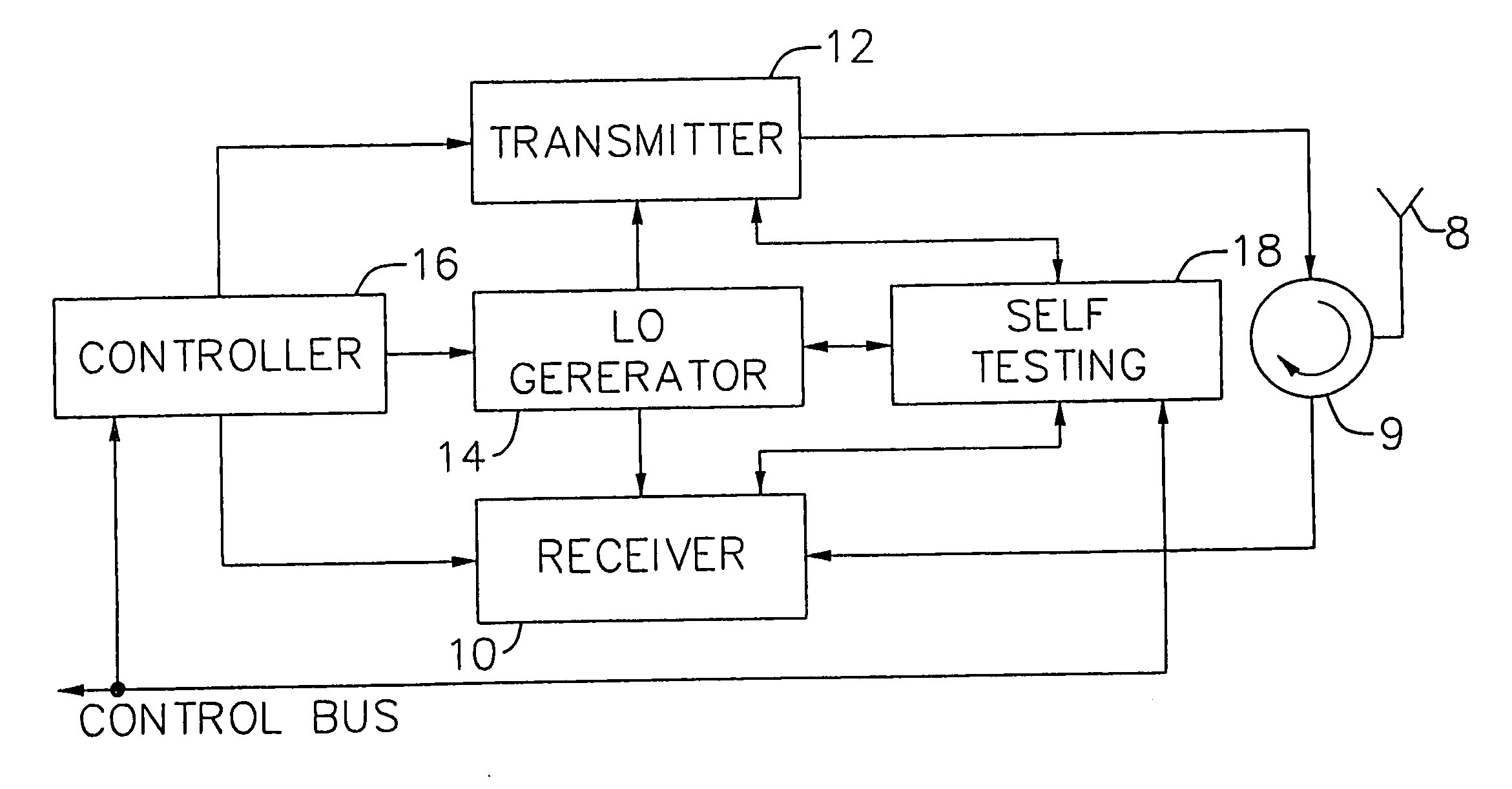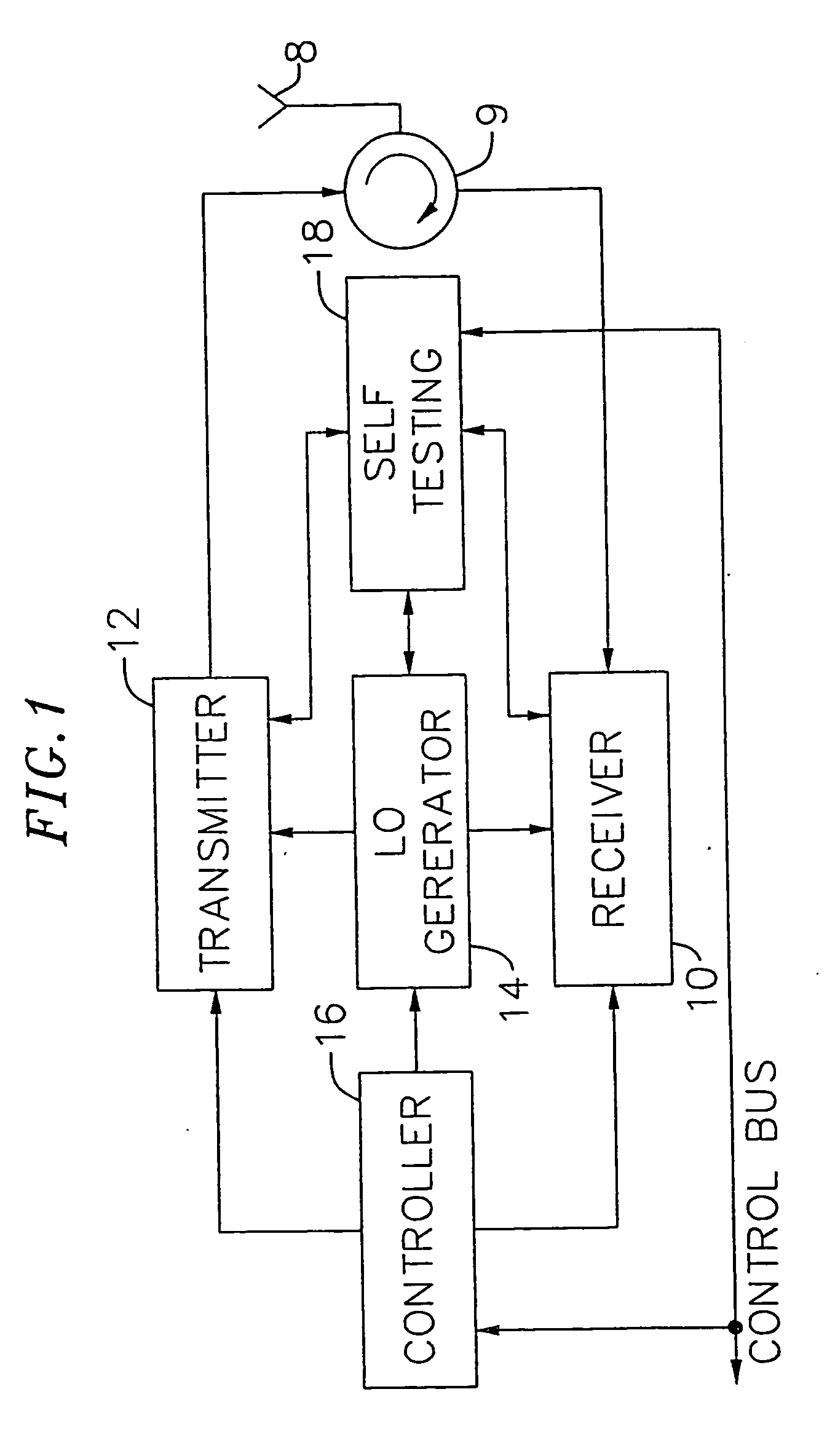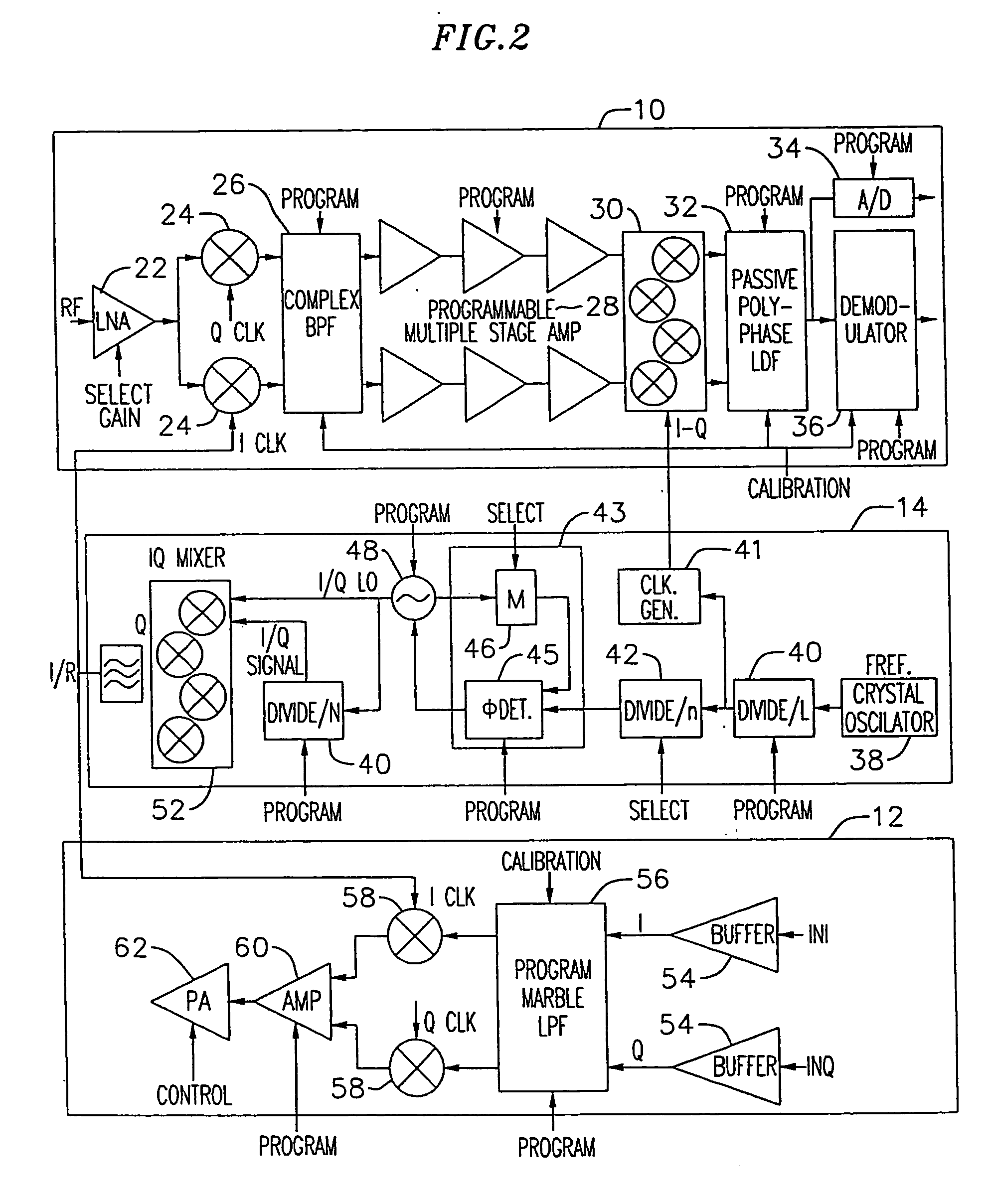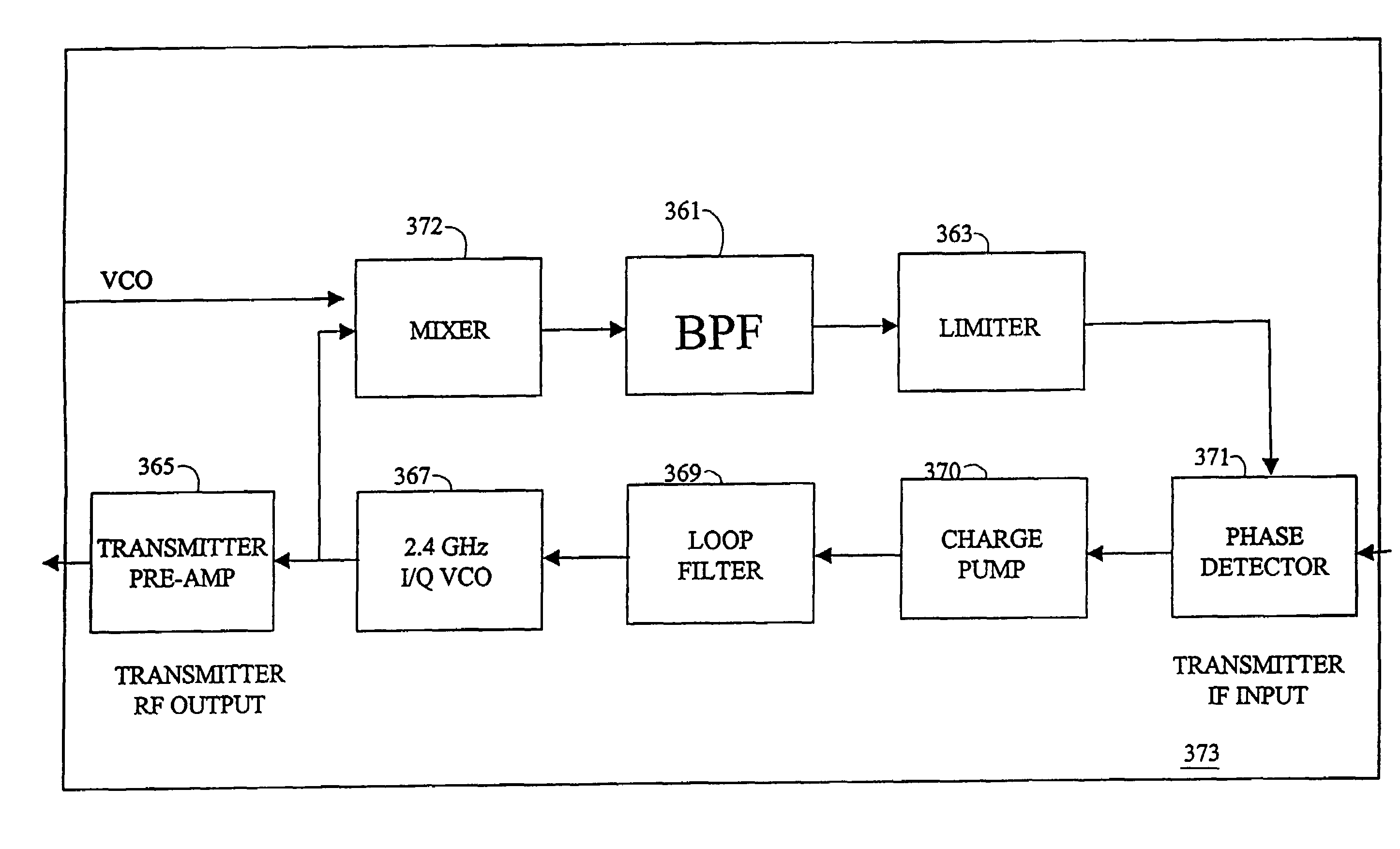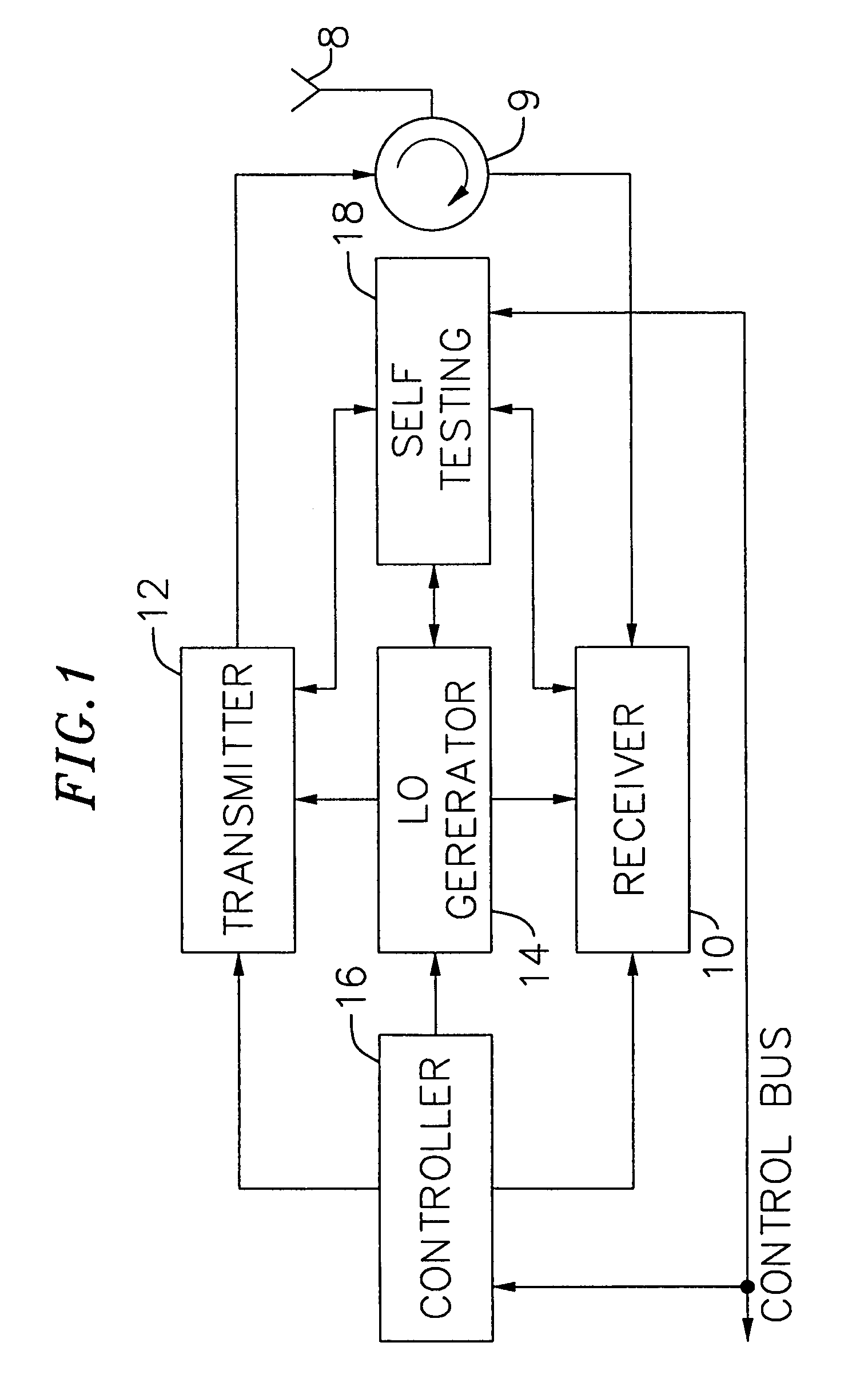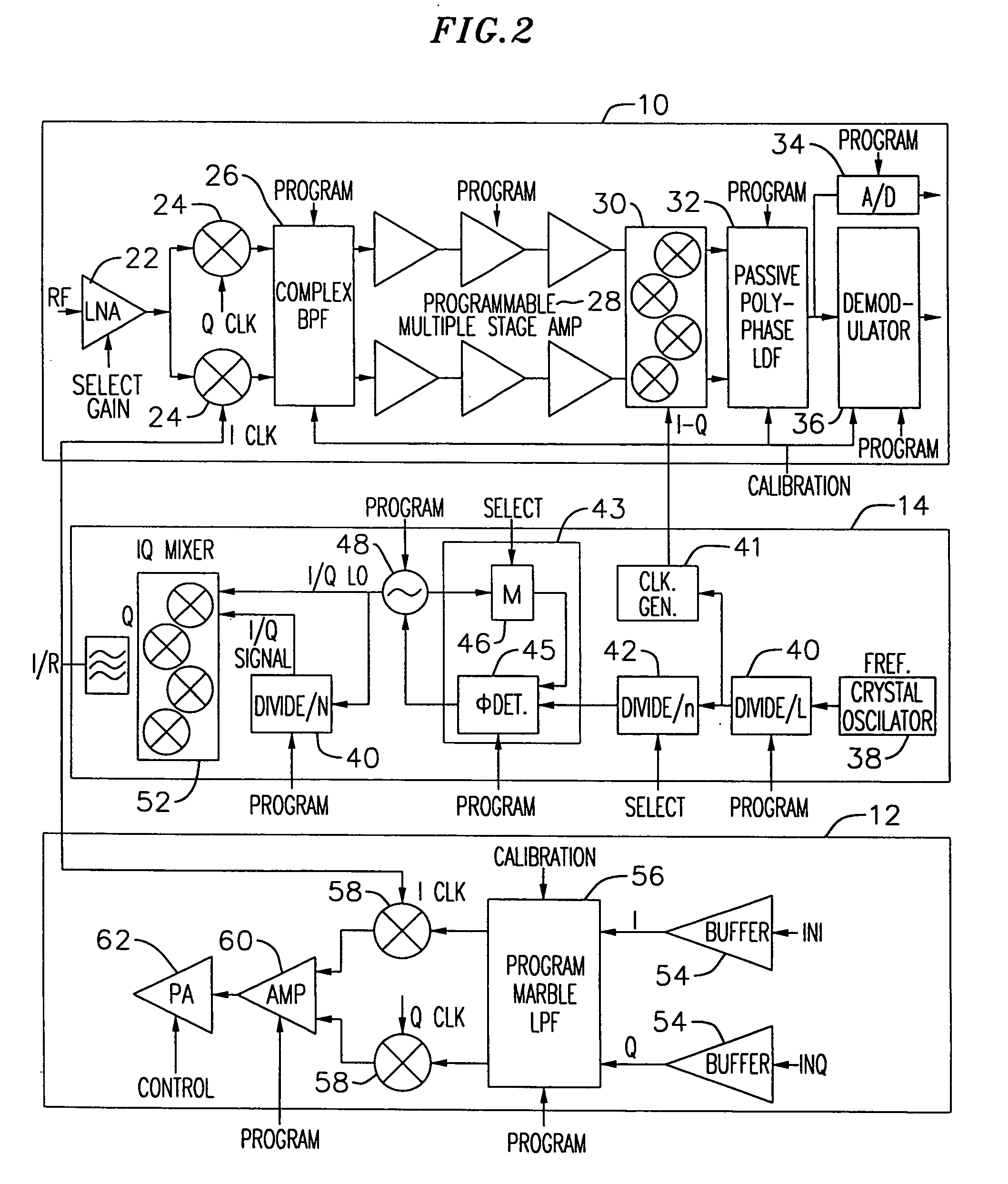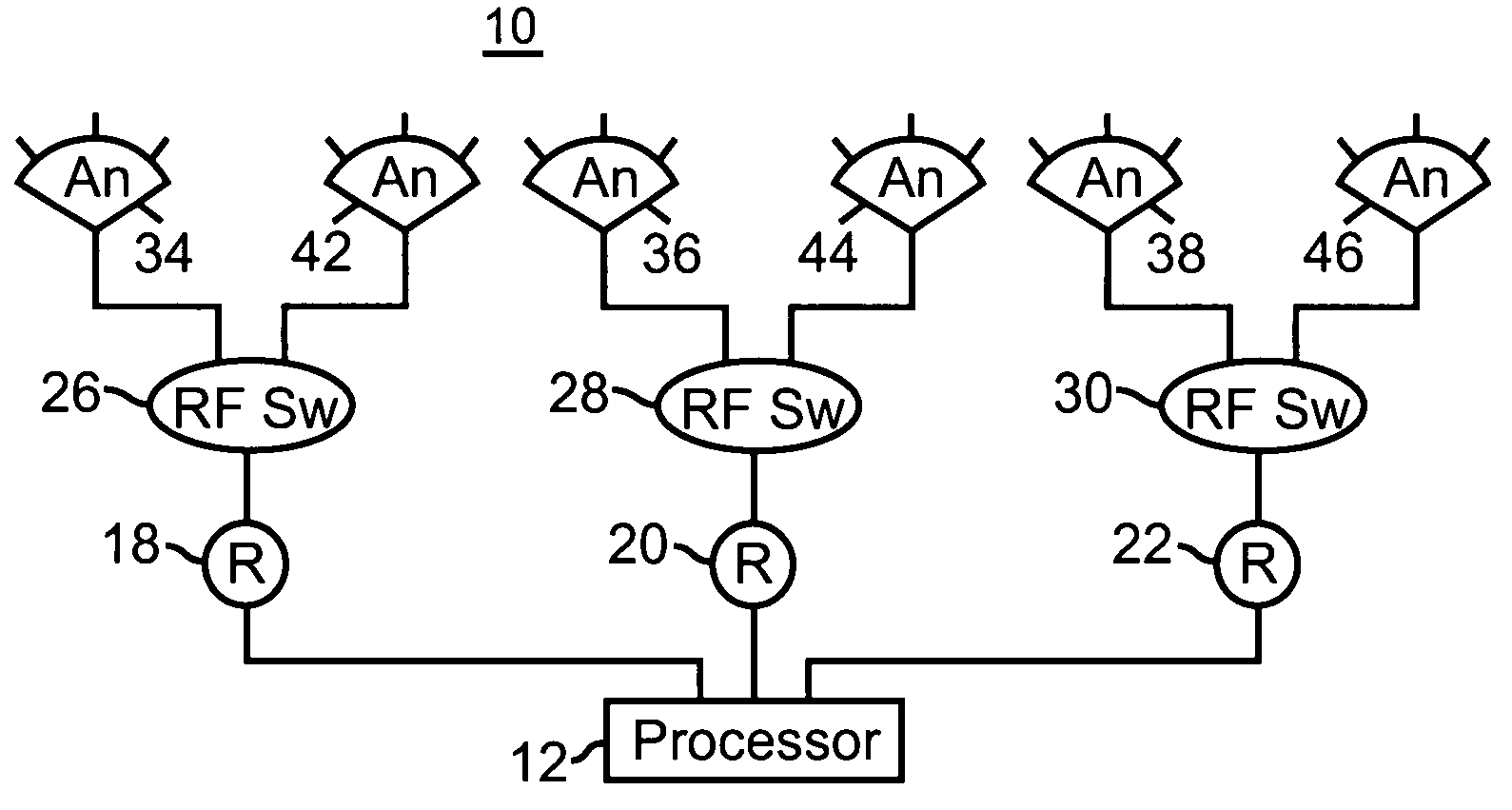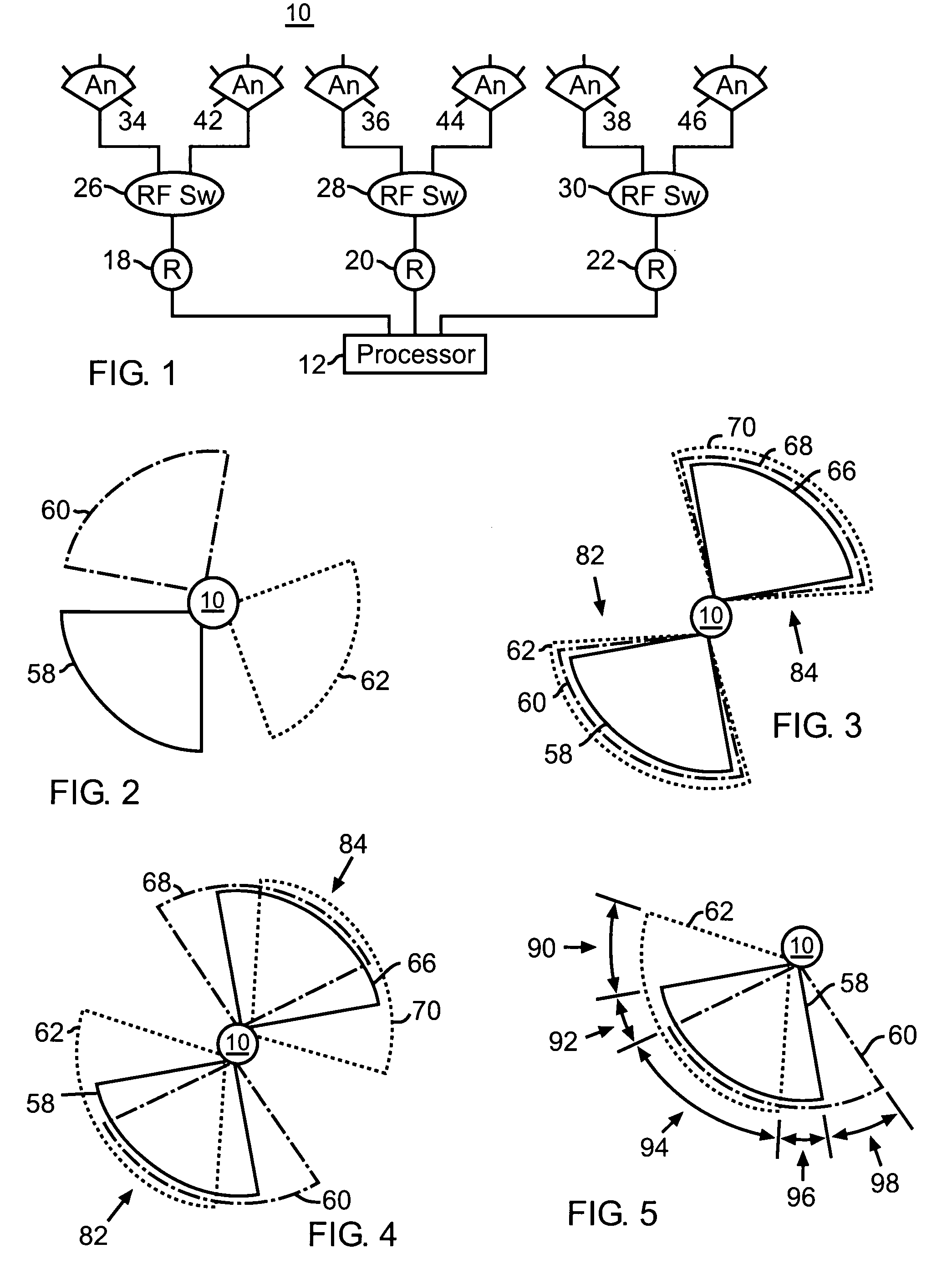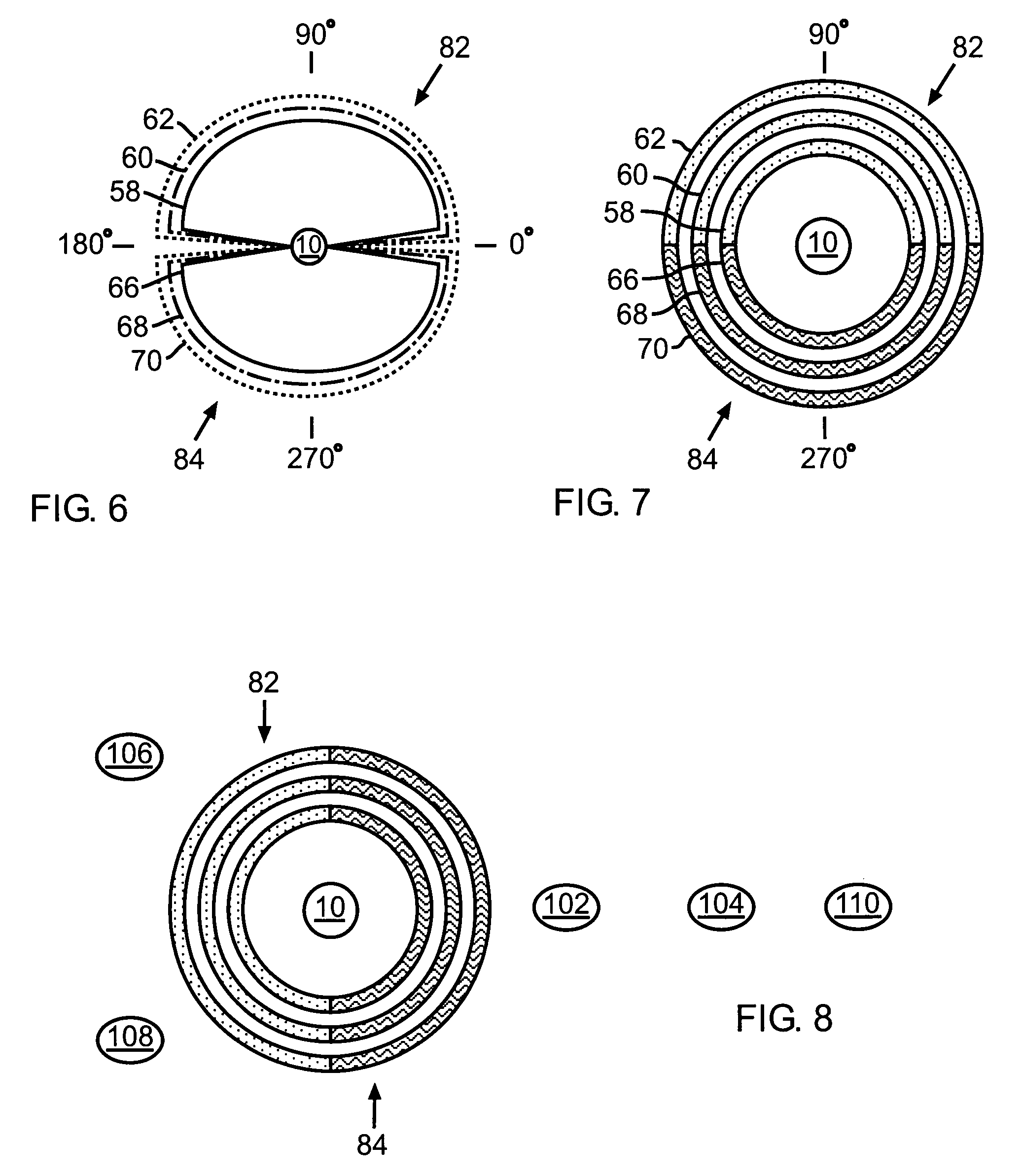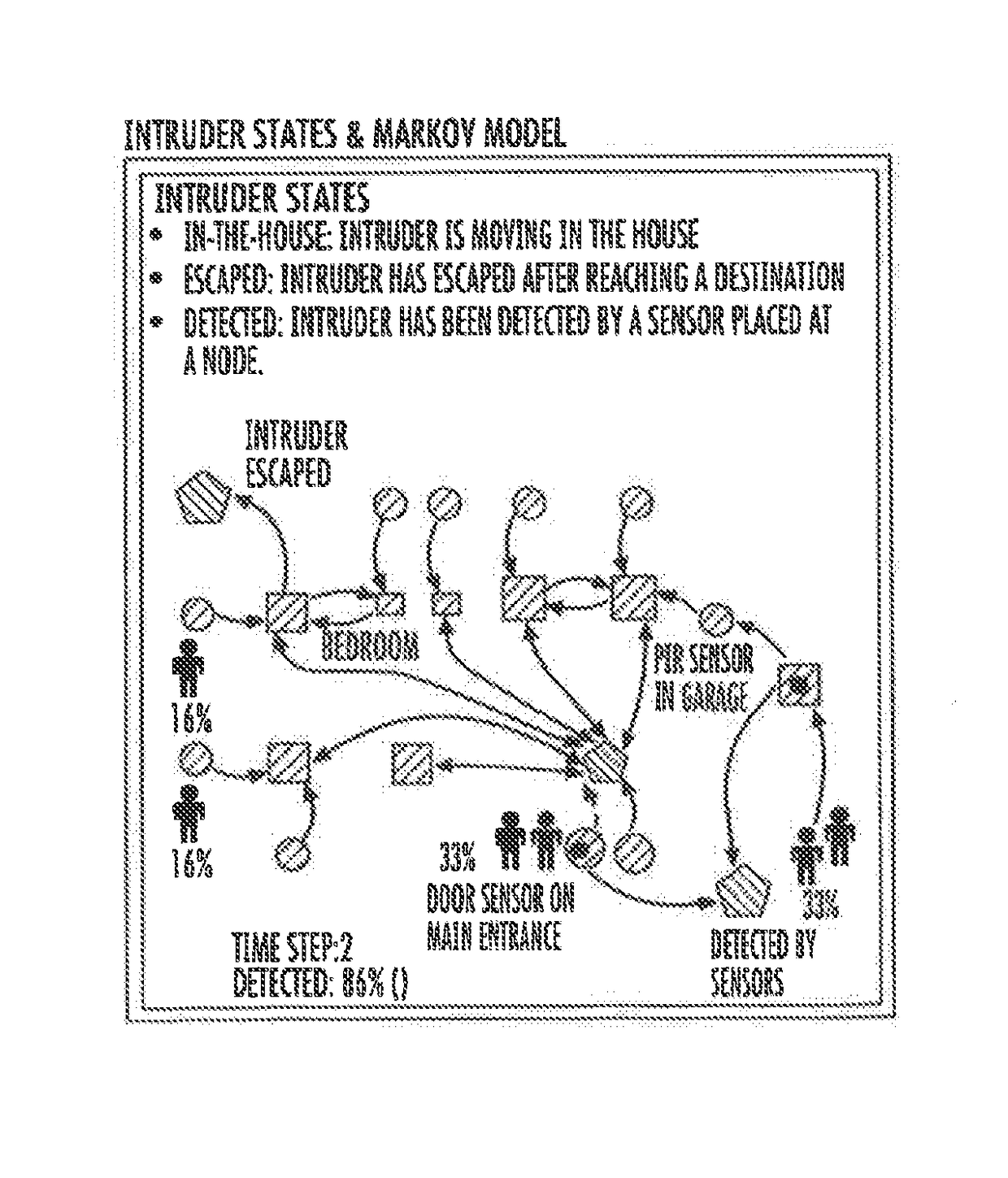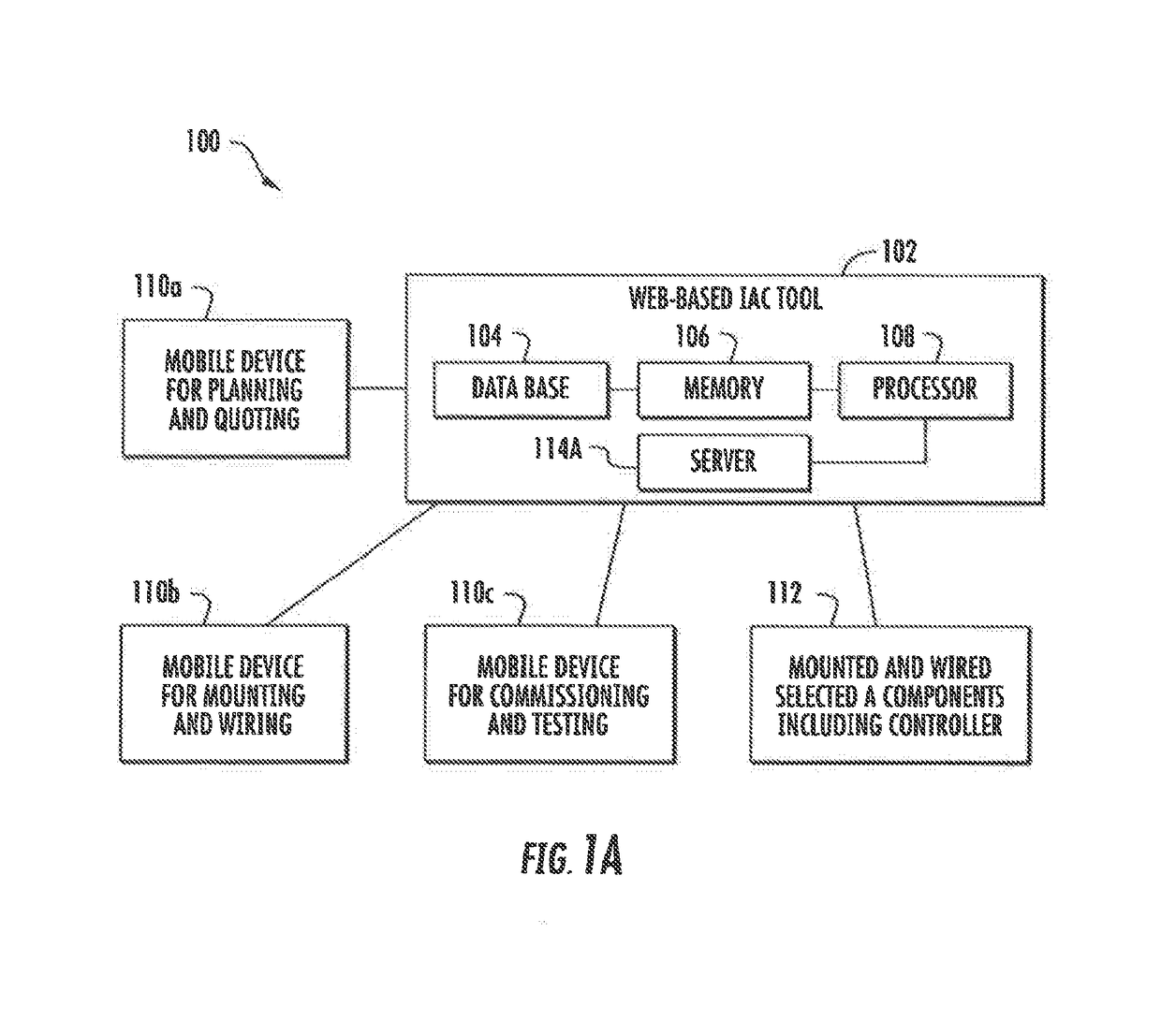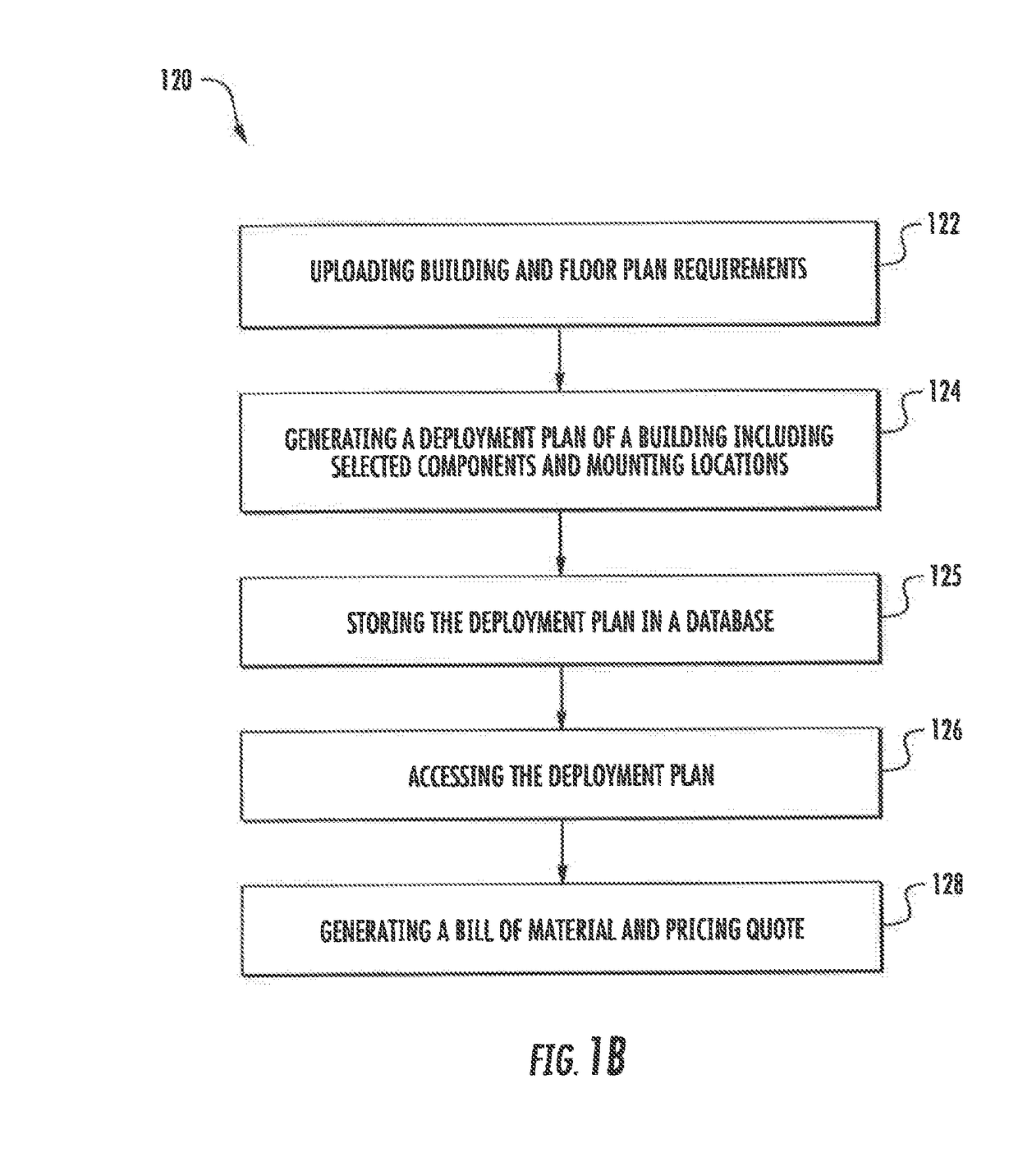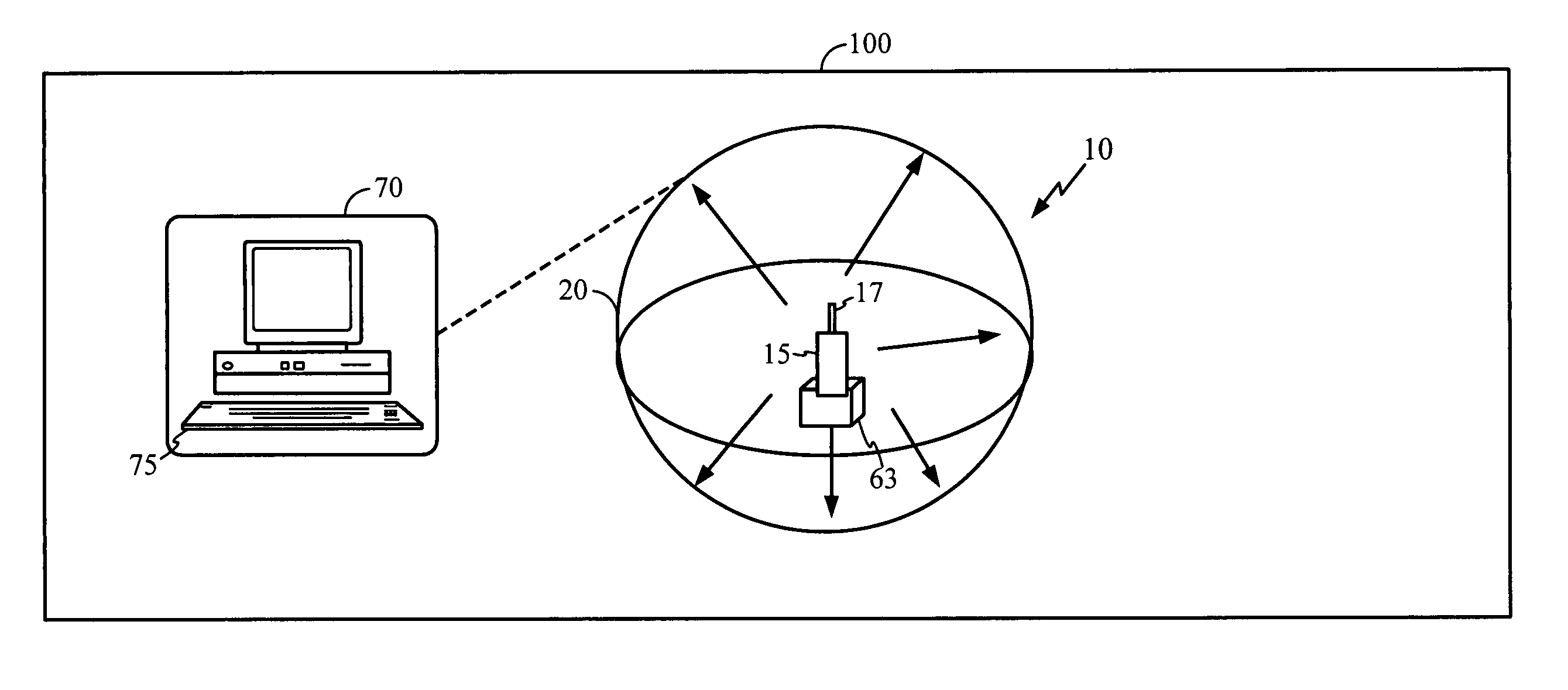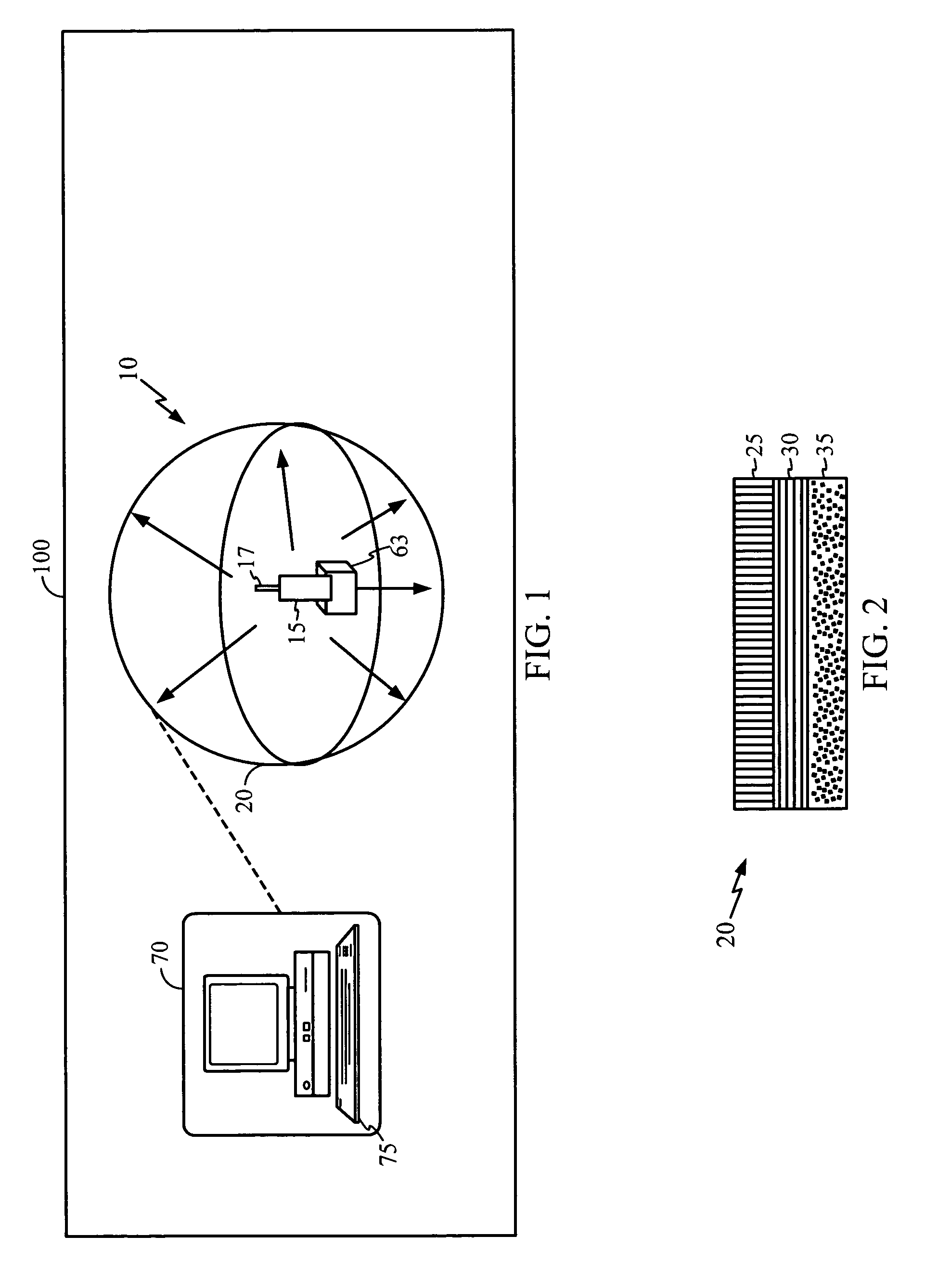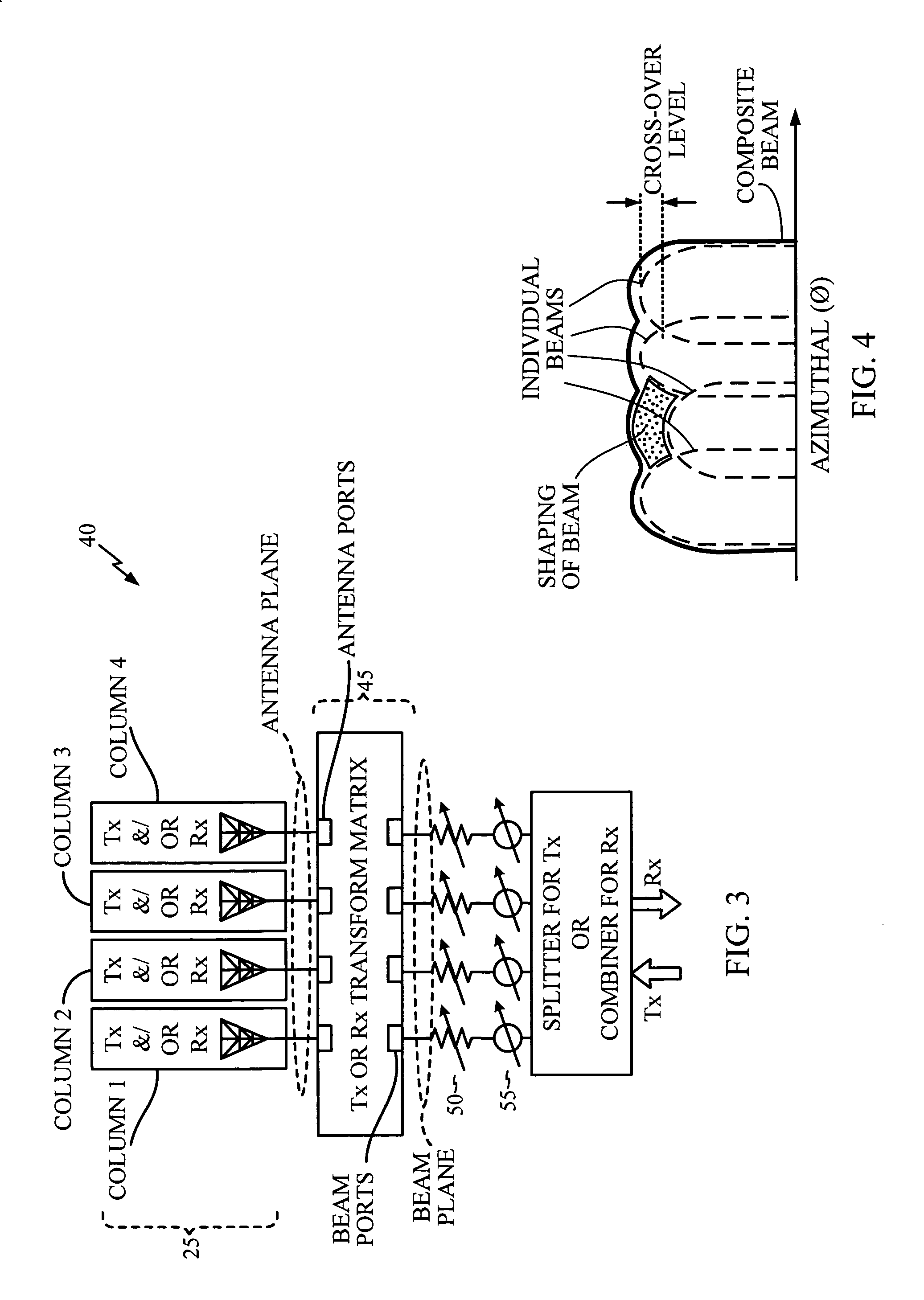Patents
Literature
5877results about "Transmitters monitoring" patented technology
Efficacy Topic
Property
Owner
Technical Advancement
Application Domain
Technology Topic
Technology Field Word
Patent Country/Region
Patent Type
Patent Status
Application Year
Inventor
Radio communication system
InactiveUS7043271B1Reduce in quantityReduces constitutionTransmitters monitoringSpatial transmit diversityCarrier signalEngineering
There is disclosed a radio communication system in which a constitution of a base station and further a control station can be simplified. A radio communication system according to the present invention converts a received signal received by a plurality of antenna elements in a base station to a signal of different frequency band, and then conflates the converted signal in order to generate sub-carrier wave multiplex signal. The signal is converted to an optical signal, and then the optical signal is transmitted to a control station via an optical fiber. Or the control station performs weighting to phase of the transmitted signal transmitted from a plurality of antennas of a base station, and then performs frequency conversion to different frequency band, and then conflates the converted signal in order to generate the sub-carrier wave multiplex signal. The signal is converted to an optical signal, and then an optical signal is transmitted to the base station side via the optical fiber. The control station and the base station divides the received sub-carrier wave multiplex signal by each frequency band, and then the frequency of the divided signals are converted to the same frequency band in order to generate the transmitted / received signal of each antenna element. By such a constitution, it is possible to reduce constituent of the optical transmission components to the minimum and to simplify the constitution of the base station. Furthermore, it is possible to maintain the relative phase difference and the relative intensity of the transmitted / received signal of each antenna element. Because of this, it is possible to estimate an arrival direction of the received signal and to control radiation beam pattern of the transmitted signal.
Owner:KK TOSHIBA
Fault monitoring in a distributed antenna system
InactiveUS7224170B2Transmitters monitoringCurrent/voltage measurementDistributed antenna systemEngineering
A method and system for detecting whether an antenna is property connected to a distributed antenna network. The current drawn by the antenna is measured and compared against an expected current draw or reference level. The measured level of current drawn by the antenna is indicative of whether the antenna is properly connected or is disconnected. The comparison results may be used as the basis for creating a status message, which is then communicated to a central monitoring unit for each antenna. The central monitoring unit may generate appropriate alarms in response to a status message indicating a fault condition at a particular antenna.
Owner:P G ELECTRONICS
Method and system for multiple channel wireless transmitter and receiver phase and amplitude calibration
InactiveUS6862440B2Low costTransmitters monitoringReceivers monitoringTransmission channelEngineering
The present invention provides a method and system for estimating common amplitude and phase errors of a multiple channel wireless system. The multiple channel wireless system includes a plurality of transmission channels formed between a plurality of transmission antennas and a plurality of receiver antennas. The method includes estimating transmission channel elements between each transmission antenna and receiver antenna pair of the multiple channel wireless system. Calibration symbols are transmitted from each transmit antenna. Signals are received that correspond to the calibration symbols having traveled through the transmission channels. Received calibration symbols are estimated based upon spatial processing of the received signals and the estimated transmission channel elements. Common amplitude and phase errors are estimated for each transmit and receive antenna pair by comparing the transmitted calibration symbols with the received calibration symbols.
Owner:TAHOE RES LTD
Calibration method, communication system, frequency control method, and communication device
InactiveUS20100150013A1Simple digital processingSimple processTransmitters monitoringPower managementCommunications systemCommunication device
A calibration method according to the present invention includes a step of first channel estimating for transmitting a pilot signal from a first antenna and receiving the pilot signal at a second antenna different from the first antenna to calculate a first channel estimation value; a step of second channel estimating for transmitting a plot signal from the second antenna and receiving the pilot signal at the first antenna to calculate a second channel estimation value; and a step of correction coefficient calculating for calculating, by using the first and second channel estimation values, a correction coefficient.
Owner:MITSUBISHI ELECTRIC CORP
MULTI-TRANSCEIVER ARCHITECTURE FOR ADVANCED Tx ANTENNA MONITORING AND CALIBRATION IN MIMO AND SMART ANTENNA COMMUNICATION SYSTEMS
ActiveUS20100093282A1Lower performance requirementsTransmitters monitoringReceivers monitoringWireless transceiverAir interface
Exemplary embodiments of system and method are provided for measuring signal amplitude, phase and / or delay offsets between multiple transmit signals fed through the transmit signal processing chains and wirelessly transmitted over the transceive antennas of separate transceiver modules, wherein transmit signal coupling between the transmit antennas of said transceiver modules' transmit signal processing chains may be used for synchronizing the transmit signals and calibrating their amplitude, phase and / or delay parameters. The exemplary embodiments further provide a front end arrangement of a wireless transceiver device which can comprise at least two independently controllable transceiver modules, each connected to an associated spatial diversity transceive antenna and comprising at least one associated transmit signal processing chain and at least one associated receive signal processing chain coupled to a common baseband processing unit. The exemplary transceiver architecture can be executed on an antenna loop between the transmit signal processing chain of a first transceiver module and the transmit signal processing chain of a second transceiver over the air interface and relies on an adaptive antenna concept which facilitates a wireless transmission of data via a plurality of wireless communication channels utilizing an array of transceive antennas, receiving feedback information via at least one of said communication channels using such antenna loop and modifying a transmission mode based on the received feedback information.
Owner:RPX CORP
Apparatus and method for adjusting beam pattern in communication system supporting beam division multipile access scheme
ActiveUS20150318610A1Reduce degradationImprove communication system performanceTransmitters monitoringSpatial transmit diversityCommunications systemBeam pattern
A method for adjusting a beam pattern in a beam pattern adjusting apparatus in a communication system supporting a Beam Division Multiple Access (BDMA) scheme is provided. The method includes determining whether a Voltage Standing Wave Ratio (VSWR) value for each antenna included in an antenna array included in the beam pattern adjusting apparatus is greater than or equal to a threshold VSWR value, if it is determined that an antenna of the antenna array has a VSWR value that is greater than or equal to the threshold VSWR, detecting whether each of the antenna elements is operable, and if it is determined that at least one of the antennas is inoperable, adjusting a beam pattern of at least one of the antennas that is operable.
Owner:SAMSUNG ELECTRONICS CO LTD +1
Protable radio terminal testing apparatus using single self-complementary antenna
InactiveUS6839032B2Simple structureEasy to operateTransmitters monitoringPower managementCouplingImpedance transformer
Owner:ANRITSU CORP
Radio system and method for relaying radio signals with a power calibration of transmit radio signals
ActiveUS20100255774A1Easy to measureReduce manufacturing costTransmitters monitoringRadio transmissionPower sensorTransmitted power
The present invention provides a radio system and a method for relaying radio signals, providing a power calibration of transmit radio signals. With the radio system and the method no dedicated calibration signal generator is required for providing the power calibration of the transmit radio signals. The radio system comprises at least one transmit path, a calibration unit at the least one link and a power sensor. A selected one of coupled transmit signals is forwarded to a power sensor for measuring a power level of a portion of the selected one of the coupled transmit signals, wherein the calibration unit is adapted to update a power rating of the at least one transmit path in response to the transmit power level of the selected one of the coupled transmit signals.
Owner:TELEFON AB LM ERICSSON (PUBL)
Radio communication system
InactiveUS20060079290A1Reduce in quantityReduces constitutionTransmitters monitoringReceivers monitoringCarrier signalEngineering
There is disclosed a radio communication system in which a constitution of a base station and further a control station can be simplified. A radio communication system according to the present invention converts a received signal received by a plurality of antenna elements in a base station to a signal of different frequency band, and then conflates the converted signal in order to generate sub-carrier wavemultiplex signal. The signal is converted to an optical signal, and then the optical signal is transmitted to a control station via an optical fiber. Or the control station performs weighting to phase of the transmitted signal transmitted from a plurality of antennas of a base station, and then performs frequency conversion to different frequency band, and then conflates the converted signal in order to generate the sub-carrier wave multiplex signal. The signal is converted to an optical signal, and then an optical signal is transmitted to the base station side via the optical fiber. The control station and the base station divides the received sub-carrier wave multiplex signal by each frequency band, and then the frequency of the divided signals are converted to the same frequency band in order to generate the transmitted / received signal of each antenna element. By such a constitution, it is possible to reduce constituent of the optical transmission components to the minimum and to simplify the constitution of the base station. Furthermore, it is possible to maintain the relative phase difference and the relative intensity of the transmitted / received signal of each antenna element. Because of this, it is possible to estimate an arrival direction of the received signal and to control radiation beam pattern of the transmitted signal.
Owner:KK TOSHIBA
Wireless signal tester calibration device and method, and automatic testing system and method
InactiveCN105262551ARealize fully automatic calibrationGuaranteed reliabilityTransmitters monitoringReceivers monitoringTester deviceEngineering
The invention provides a wireless signal tester calibration device and a method. A frequency meter is used for calibration of an output frequency of output signals of the wireless signal tester; a microwave power meter is used for calibration of output power of output signals of the wireless signal tester; a vector signal analyzer is used for EVM calibration of output signals of the wireless signal tester; a vector signal transmitter and the microwave power meter are used for calibration of power measurement of the wireless signal tester; the vector signal transmitter and the vector signal analyzer are used for calibration of EVM measurement of the wireless signal tester; and thus, reliability of performance test on the corresponding wireless transmitting and receiving equipment by using the wireless signal tester can be ensured. The invention also provides an automatic testing system and a method. The calibration device of the invention can be used for carrying out automatic calibration on the wireless signal tester, and the wireless signal tester after calibration is used for automatically testing to-be-tested wireless equipment.
Owner:SHANGHAI INST OF MEASUREMENT & TESTING TECH
Optical fiber coupling configurations for a main-remote radio base station and a hybrid radio base station
InactiveUS7047028B2Easy on receiverLow costTransmitters monitoringSubstation equipmentSingle fiberEngineering
A main-remote radio base station system includes plural remote radio units. Fiber costs are significantly reduced using a single optical fiber that communicates information between the main unit and the remote units connected in a series configuration. Information from the main unit is sent over a first fiber path to the remote units so that the same information is transmitted over the radio interface by the remote units at substantially the same time. The main unit receives the same information from each of the remote units over a second fiber path at substantially the same time. Delay associated with each remote unit is compensated for by advancing a time when information is sent to each remote unit. A data distribution approach over a single fiber avoids the expense of separate fiber couplings between the main unit and each RRU. That approach also avoids the expense of WDM technology including lasers, filters, and OADMs as well as the logistical overhead needed to keep track of different wavelength dependent devices.
Owner:TELEFON AB LM ERICSSON (PUBL)
Digital integrated antenna array for enhancing coverage and capacity of a wireless network
InactiveUS20110150050A1Increase freedomReduced flexibilityTransmitters monitoringSecret communicationTransceiverWireless mesh network
An embodiment of the invention relates to a digital integrated antenna array system having one or more antenna modules, one or more transceiver modules each having one or more signal processing paths for transmitting data to or receiving data from the one or more antenna modules, a signal processing unit able to process data for each the one or more signal processing paths of the one or more transceiver modules such that the data transmitted from the one or more transceiver modules to the one or more antenna modules is radiated by the one or more antenna modules into one or more radiation patterns.
Owner:VIAVI SOLUTIONS INC
Periodic calibration on a communications channel
InactiveUS6963742B2Easy CalibrationImprove accuracyTransmitters monitoringReceivers monitoringRadio equipmentTraffic signal
Calibration signals can be sent on a traffic channel without interrupting a connection between two radios. In one embodiment, the present invention includes receiving, at a second radio, a first traffic signal transmitted on a traffic channel by a first radio during a first time interval, receiving, at the second radio, a calibration signal transmitted on the traffic channel by the first radio during a second time interval, and receiving, at the second radio, a second traffic signal transmitted on the traffic channel by the first radio during a third time interval, wherein the traffic channel supports a connection between the first and second radios.
Owner:INTEL CORP
Self-test method for antennas
InactiveUS20060197538A1Reliable detectionExtra componentTransmitters monitoringReceivers monitoringCommunication deviceMobile telephony
The present invention relates to a radio communication apparatus for checking antenna interface connections of first antenna means of the radio communication apparatus, wherein a predetermined signal is transmitted at a frequency within a reception band of the first antenna means by using a second antenna means of the radio communication apparatus. The transmitted predetermined signal is received through the first antenna means to obtain a reception output which is compared with the predetermined signal. Thereby, a self-test option can be provided in the communication apparatus, e.g. mobile phone, so that no extra components are required during manufacturing and antenna operation can be continuously monitored during usage.
Owner:NOKIA CORP
Vector network analyzer applique for adaptive communications in wireless networks
A test signal generator at a transmitter station and a facsimile generator at a receiver station go through an acquisition and tracking process which aligns the two signals so that a logical processor can compute the frequency transfer function of the entire propagation path for use in an adaptive, concurrently sent communication signal. The frequency transfer function is conveyed back to the transmit end via a control channel permitting an adaptivity function at the transmit end to influence subsequent selection of communication parameters, among which are typically transmitted data rate, selection of modulation, selection of forward error correcting coding, and selection of frequency band for transmission. The same measurement is conveyed to an adaptivity function at the receive end for use in the communications receiver to select demodulator variables such as gain control, and equalization of amplitude and phase, versus frequency. The adaptivity function also permits interspersing of reverse-direction communications over the same frequency bands in a time-share mode between forward-direction and reverse-direction communication with the measurement signals having to be transmitted in only one direction. An alternate embodiment invention of this type is described which is additionally useful for mobile communications channels. Another variation embodiment is described for pure propagation measurements only, absent conveyance of end-user information.
Owner:SARABAND WIRELESS
Method and apparatus for adjusting the voltage and frequency to minimize power dissipation in a multiprocessor system
InactiveUS7111178B2Minimize power consumptionIncreasing processor densityTransmitters monitoringEnergy efficient ICTOperating pointMulti processor
A method for adjusting the voltage and frequency to minimize power dissipation in a processor. The method of one embodiment comprises determining a power consumption value. The power consumption value is evaluated to obtain a new operating point. The new operating point is compared with a present operating point. A frequency setting and a voltage setting are adjusted to correspond to the new operating point if the new operating point is different from the present operating point.
Owner:SONY CORP OF AMERICA
Predistortion calibration and built in self testing of a radio frequency power amplifier using subharmonic mixing
ActiveUS20120252382A1No significant hardware overheadStrain is placedTransmitters monitoringPower amplifiersHarmonicTested time
A novel and useful apparatus for and method of predistortion calibration and built-in self testing (BIST) of a nonlinear digitally-controlled radio frequency (RF) power amplifier (DPA) using subharmonic mixing. The RF power amplifier output is temporarily coupled into the frequency reference (FREF) input and the phase error samples generated in the phase locked loop (PLL) are then observed and analyzed. The digital predistortion and BIST mechanisms process the phase error samples to calibrate and test the DPA in the transmitter of the Digital RF Processor (DRP). The invention enables the characterization of nonlinearities, the configuration of internal predistortion, as well as the testing of the transmitter's analog / RF circuitry, thereby eliminating commonly employed RF performance testing using high-cost test equipment and associated extended test times.
Owner:TEXAS INSTR INC
Antenna coupling for sensing and dynamic transmission
ActiveUS20150201385A1Reduce signal strengthTransmitters monitoringPower managementWireless transmissionCarrier signal
A wireless transmission system disclosed herein includes a transmitter-receiver pair. When a dielectric object approaches the transmitter-receiver pair, a signal strength of a transmitted carrier wave increases at the receiver. In response, transmission power of the transmitter can be dynamically reduced. When the dielectric object moves away from the transmitter-receiver pair, a signal strength of the carrier wave decreases at the receiver. In response, the transmission power of the transmitter can be dynamically increased.
Owner:MICROSOFT TECH LICENSING LLC
Method of managing sensor network
InactiveUS20160142160A1Avoid confusionAccurate estimateTransmitters monitoringTesting/calibration apparatusSensor clusterComputer science
An environmental sensor system comprises a plurality of sensor clusters. The sensor coupler of each sensor cluster obtains measurements parameters from the sensors, performs processing on the measurements to obtain at least one result, and forwards information from the measurements to the calibrator coordinator. The calibrator coordinator performs processing on the information received from all of the sensor clusters to obtain at least one result, and feeds back the result to the sensor clusters which then assess sensor reliability and accuracy. The first and second results indicate expected parameter values, and each sensor coupler decides whether, and how, to incorporate the measurements of sensors into the first processing based on the expected values. The sensor coupler may calibrate, decommission or replace sensors determined to be unreliable based on the expected values.
Owner:FUJITSU LTD
Monitoring control system and method
InactiveUS7688813B2Minimize delayTransmitters monitoringReceivers monitoringControl systemThe Internet
Disclosed is a monitoring control system and method that can minimize network delay between a local side PC and a phone side PC when monitoring a mobile communication device in real time. By consecutively sending a plurality of monitoring requests for monitoring the mobile communication device via the Internet, monitoring the mobile communication device and consecutively receiving a plurality of monitoring results corresponding to the plurality of monitoring requests via the Internet, real time monitoring of the mobile communication device is facilitated with minimized delay.
Owner:LG ELECTRONICS INC
Methods for using a detector to monitor and detect channel occupancy
InactiveUS8027249B2Avoid interferenceTransmitters monitoringSite diversityTime structureCurrent channel
Methods for using a detector to monitor and detect channel occupancy are disclosed. The detector resides on a station within a network using a framed format having a periodic time structure. When non-cooperative transmissions are detected by the network, the detector assesses the availability of a backup channel enabling migration of the network. The backup channel serves to allow the network to migrate transparently when the current channel becomes unavailable. The backup channel, however, could be occupied by another network that results in the migrating network interfering with the network already using the backup channel. Thus, the detector detects active transmission sources on the backup channel to determine whether the backup channel is occupied. Methods for using the detector include scheduling detection intervals asynchronously. The asynchronous detection uses offsets from a reference point within a frame.
Owner:SHARED SPECTRUM
Adaptive radio transceiver with floating MOSFET capacitors
An exemplary embodiment of the present invention described and shown in the specification and drawings is a transceiver with a receiver, a transmitter, a local oscillator (LO) generator, a controller, and a self-testing unit. All of these components can be packaged for integration into a single IC including components such as filters and inductors. The controller for adaptive programming and calibration of the receiver, transmitter and LO generator. The self-testing unit generates is used to determine the gain, frequency characteristics, selectivity, noise floor, and distortion behavior of the receiver, transmitter and LO generator. It is emphasized that this abstract is provided to comply with the rules requiring an abstract which will allow a searcher or other reader to quickly ascertain the subject matter of the technical disclosure. It is submitted with the understanding that it will not be used to interpret or limit the scope or the meaning of the claims.
Owner:AVAGO TECH INT SALES PTE LTD
Method and system for uplink beamforming calibration in a multi-antenna wireless communication system
ActiveUS20110195670A1Transmitters monitoringReceivers monitoringCommunications systemWireless transceiver
A wireless transceiver, comprising a transmitter, a receiver and a plurality of antennas, determines transmit phase relationship between at least two of antennas based on radio frequency (RF) signals received via the at least two antennas from one or more antennas of a base station. RF signals are transmitted via the at least two antennas utilizing the determined transmit phase relationship. The receiver is calibrated based on receiver performance determined from the received RF signals for subsequent reception of RF signals. The transmit phase relationship is dynamically adjusted based on the transmit RF measurements and the determined receiver performance. Transmit channel qualities are determined for each transmit antenna based on the transmit RF measurements and the dynamically adjusted transmit phase relationship. Transmit antennas are dynamically selected based on the adjusted transmit phase relationship, the characterized transmit channel qualities and the determined receiver performance for subsequent transmission to the base station.
Owner:AVAGO TECH INT SALES PTE LTD
Method and apparatus for calibrating transmit power of a femto node
ActiveUS20130102309A1Increase coverageInterference minimizationTransmitters monitoringPower managementTransmitted powerReceived signal strength indication
Methods and apparatuses are provided that include calibrating transmit power of a femto node based on measuring one or more parameters related to usage of the femto node. The femto node can temporarily increase transmit power and analyze received measurement reports to determine a transmit power calibration. The femto node can additionally measure uplink received signal strength indicators over multiple time periods following handover of a user equipment (UE) to determine whether to increase transmit power to cover the UE.
Owner:QUALCOMM INC
Calibration method, communication system, frequency control method, and communication device
A calibration method comprising a first channel estimation step in which a pilot signal is transmitted from a first antenna and it is received by a second antenna that is different from the first antenna to calculate a first channel estimation value; a second channel estimation step in which the pilot signal is transmitted from the second antenna and the pilot signal is received by the first antenna to calculate a second channel estimation value; and a correction coefficient calculation step in which a correction coefficient is calculated by using the first and the second channel estimation values.
Owner:MITSUBISHI ELECTRIC CORP
Adaptive radio transceiver with offset PLL with subsampling mixers
InactiveUS20050186930A1Minimize adverse effectsReduce power consumptionTransmitters monitoringResonant long antennasTransceiverAdaptive programming
An exemplary embodiment of the present invention described and shown in the specification and drawings is a transceiver with a receiver, a transmitter, a local oscillator (LO) generator, a controller, and a self-testing unit. All of these components can be packaged for integration into a single IC including components such as filters and inductors. The controller for adaptive programming and calibration of the receiver, transmitter and LO generator. The self-testing unit generates is used to determine the gain, frequency characteristics, selectivity, noise floor, and distortion behavior of the receiver, transmitter and LO generator. It is emphasized that this abstract is provided to comply with the rules requiring an abstract which will allow a searcher or other reader to quickly ascertain the subject matter of the technical disclosure. It is submitted with the understanding that it will not be used to interpret or limit the scope or the meaning of the claims.
Owner:AVAGO TECH INT SALES PTE LTD
Adaptive radio transceiver with CMOS offset PLL
InactiveUS7082293B1Minimize adverse effectsReduce power consumptionTransmitters monitoringReceivers monitoringCMOSAdaptive programming
An exemplary embodiment of the present invention described and shown in the specification and drawings is a transceiver with a receiver, a transmitter, a local oscillator (LO) generator, a controller, and a self-testing unit. All of these components can be packaged for integration into a single IC including components such as filters and inductors. The controller for adaptive programming and calibration of the receiver, transmitter and LO generator. The self-testing unit generates is used to determine the gain, frequency characteristics, selectivity, noise floor, and distortion behavior of the receiver, transmitter and LO generator. It is emphasized that this abstract is provided to comply with the rules requiring an abstract which will allow a searcher or other reader to quickly ascertain the subject matter of the technical disclosure. It is submitted with the understanding that it will not be used to interpret or limit the scope or the meaning of the claims.
Owner:AVAGO TECH WIRELESS IP SINGAPORE PTE
Methods and apparatus for overlapping MIMO antenna physical sectors
InactiveUS8009646B2Reduce distractionsImprove performanceTransmitters monitoringSite diversityMimo antennaEngineering
Methods and apparatus for positioning antennas of a first wireless cell to form MIMO physical sectors and MIMO virtual sectors. Selecting a MIMO virtual sector for communication responsive to throughput, data throughput, signal-to-noise ratio, signal error rate, data error rate, retransmission requests, interference, rejection of multipath signals, transmission rate, and signal strength.
Owner:ROTANI
System and method for determining RF sensor performance relative to a floor plan
ActiveUS20180102858A1Minimize prediction errorConfidenceTransmitters monitoringForecastingGraphicsLink margin
A computer system for graphically indicating quality of Radio Frequency (RF) connection for a floor plan of a building is provided, A computer processor is configured to identify wall types and determine a wall property for a plurality of walls included in the floor plan, predict an RF signal strength from an RF transmitter positioned at a certain location on the floor plan, determine a prediction confidence level based on signal measurements, determine an RF connectivity level for respective RF receivers to be located in different areas of the floor plan based on analysis of the associated predicted RF signal strength, mounting inclination and orientation of the receiver devices, determined wall properties associated with walls located in expected paths of predicted RF signals, and an associated link margin, and provide a GUI on a computer display indicating a visualization of RF connectivity levels on areas of the floor plan.
Owner:CARRIER CORP
Method and apparatus for testing and evaluating wireless communication devices
ActiveUS7035594B2Deleterious effectOffsetting effectTransmitters monitoringReceivers monitoringTelecommunications linkCommunication link
A testing chamber is configured to evaluate the accuracy of a wireless communication device under test in a production environment. The configuration of the testing chamber may resemble an enclosed structure having a wall that includes multiple layers. An array of antennas, which serves as a layer of the wall, is strategically positioned within the testing chamber to receive and transmit signals emitted to / from the wireless communication device. Located within the testing chamber is either a stationary or moveable holder to support the wireless communication device. Furthermore, during testing, the forward link and the reverse communication links are monitored by selectively or alternatively adjusting and shifting the phase / amplitude of the antenna of the wireless communication device to mitigate the effects of multi-path fading.
Owner:QUALCOMM INC
Features
- R&D
- Intellectual Property
- Life Sciences
- Materials
- Tech Scout
Why Patsnap Eureka
- Unparalleled Data Quality
- Higher Quality Content
- 60% Fewer Hallucinations
Social media
Patsnap Eureka Blog
Learn More Browse by: Latest US Patents, China's latest patents, Technical Efficacy Thesaurus, Application Domain, Technology Topic, Popular Technical Reports.
© 2025 PatSnap. All rights reserved.Legal|Privacy policy|Modern Slavery Act Transparency Statement|Sitemap|About US| Contact US: help@patsnap.com
